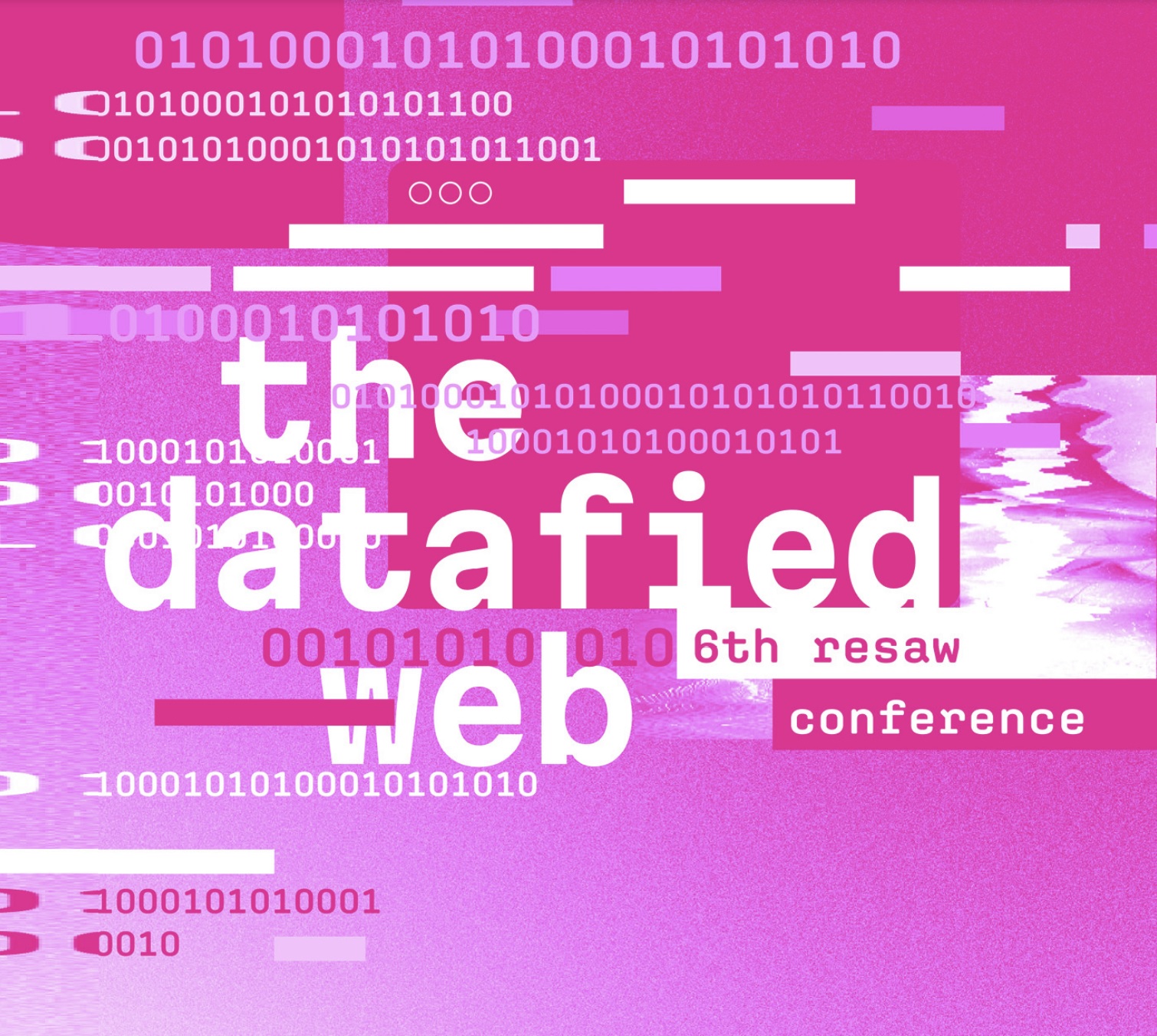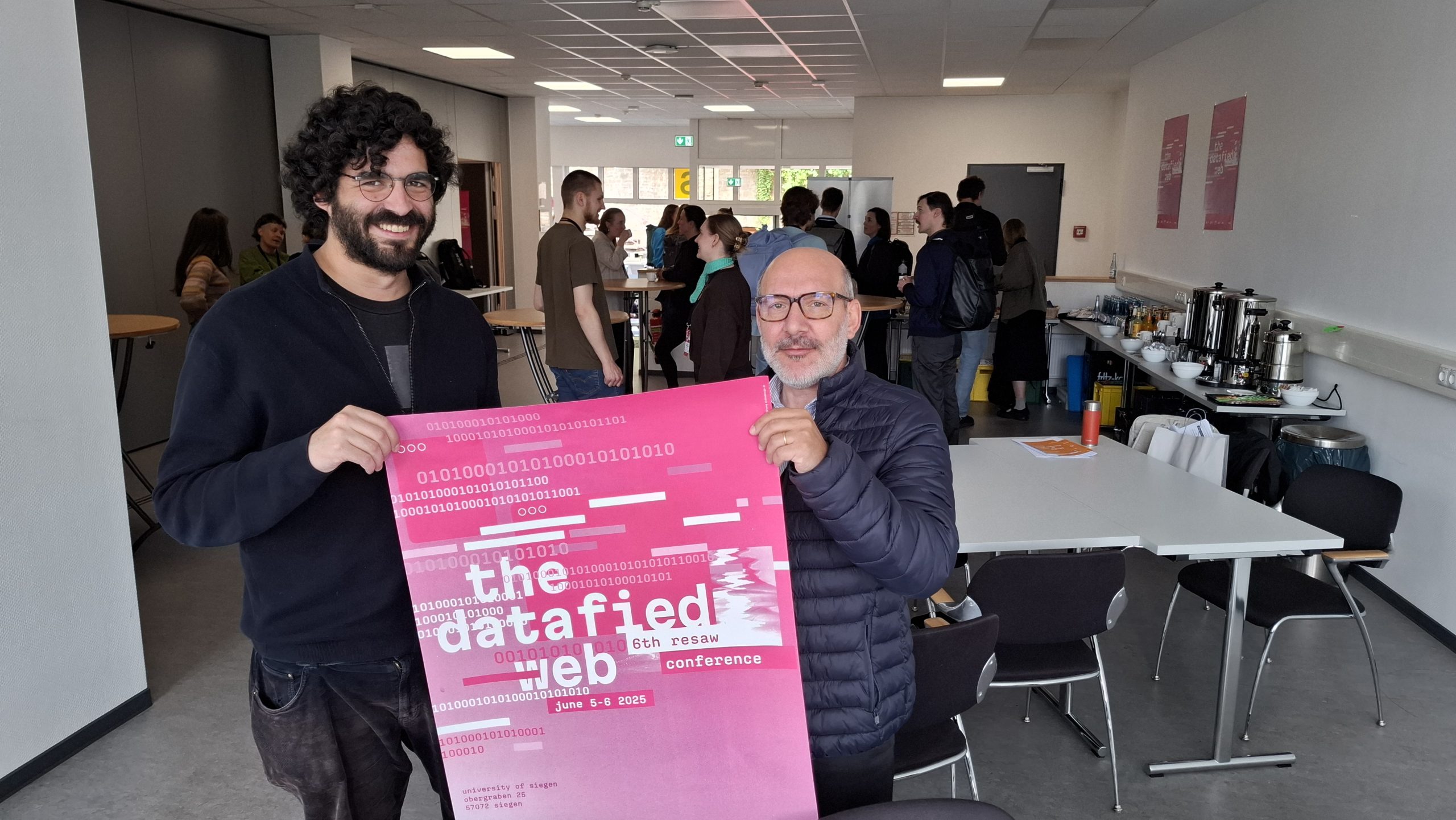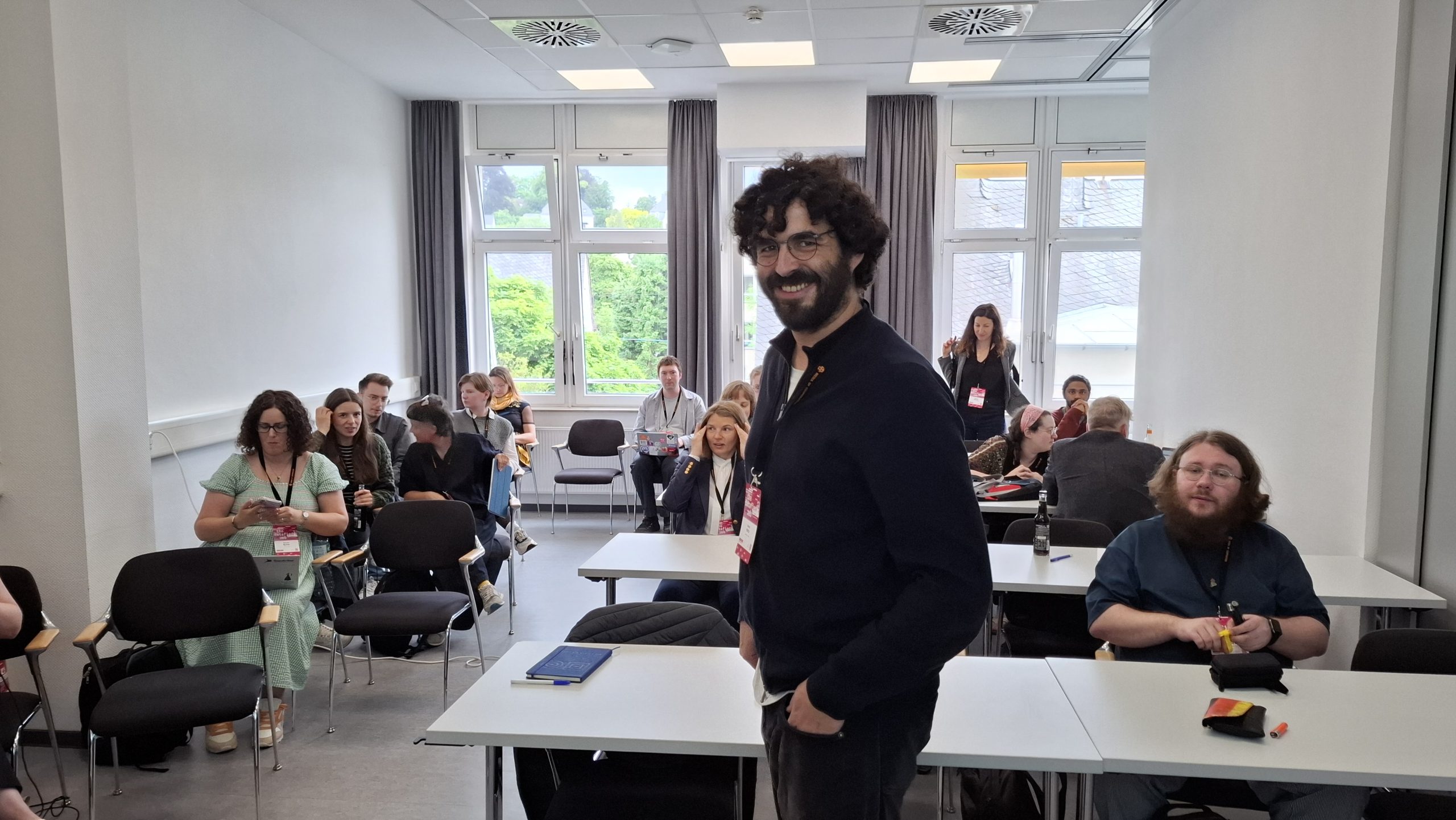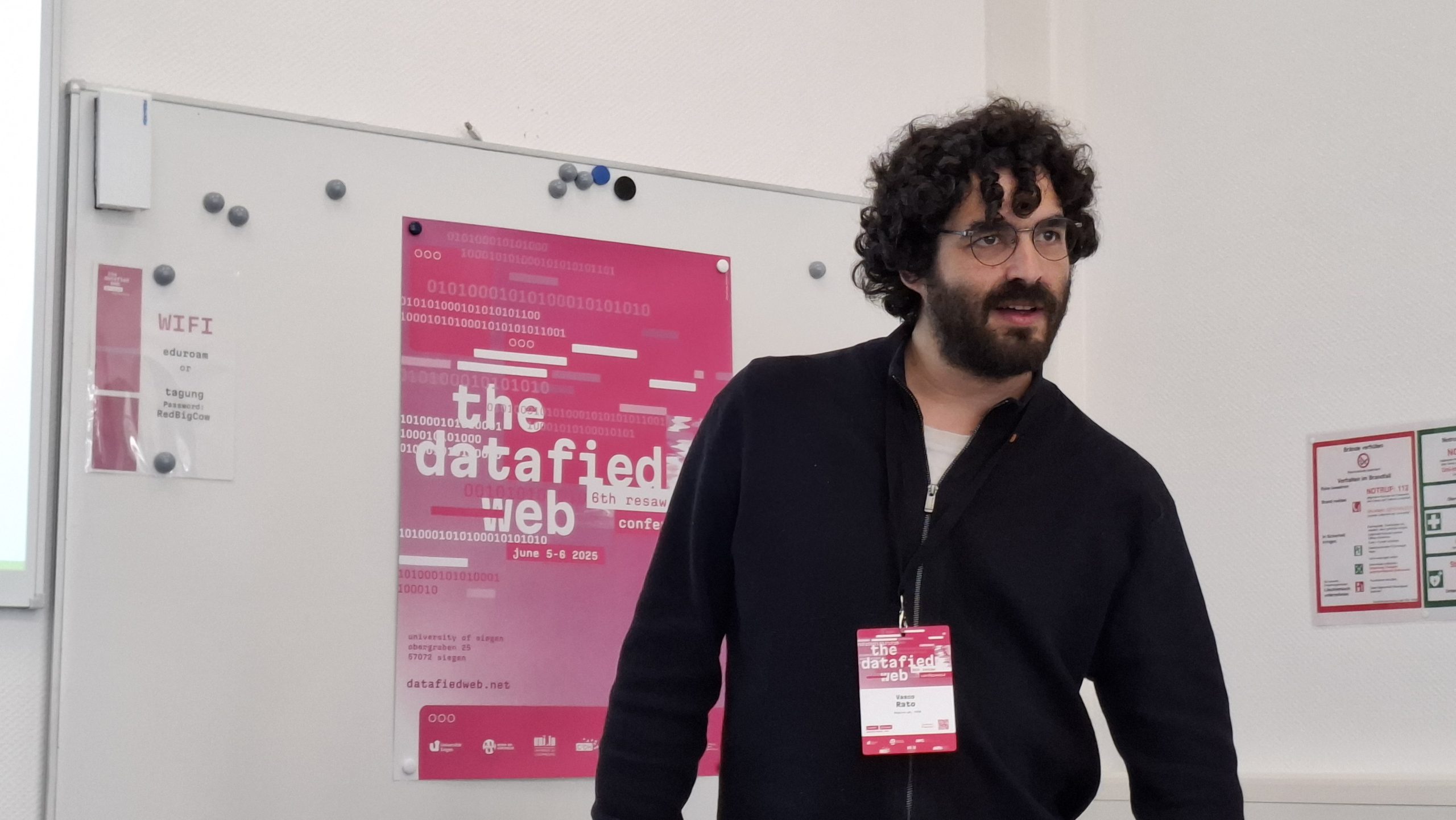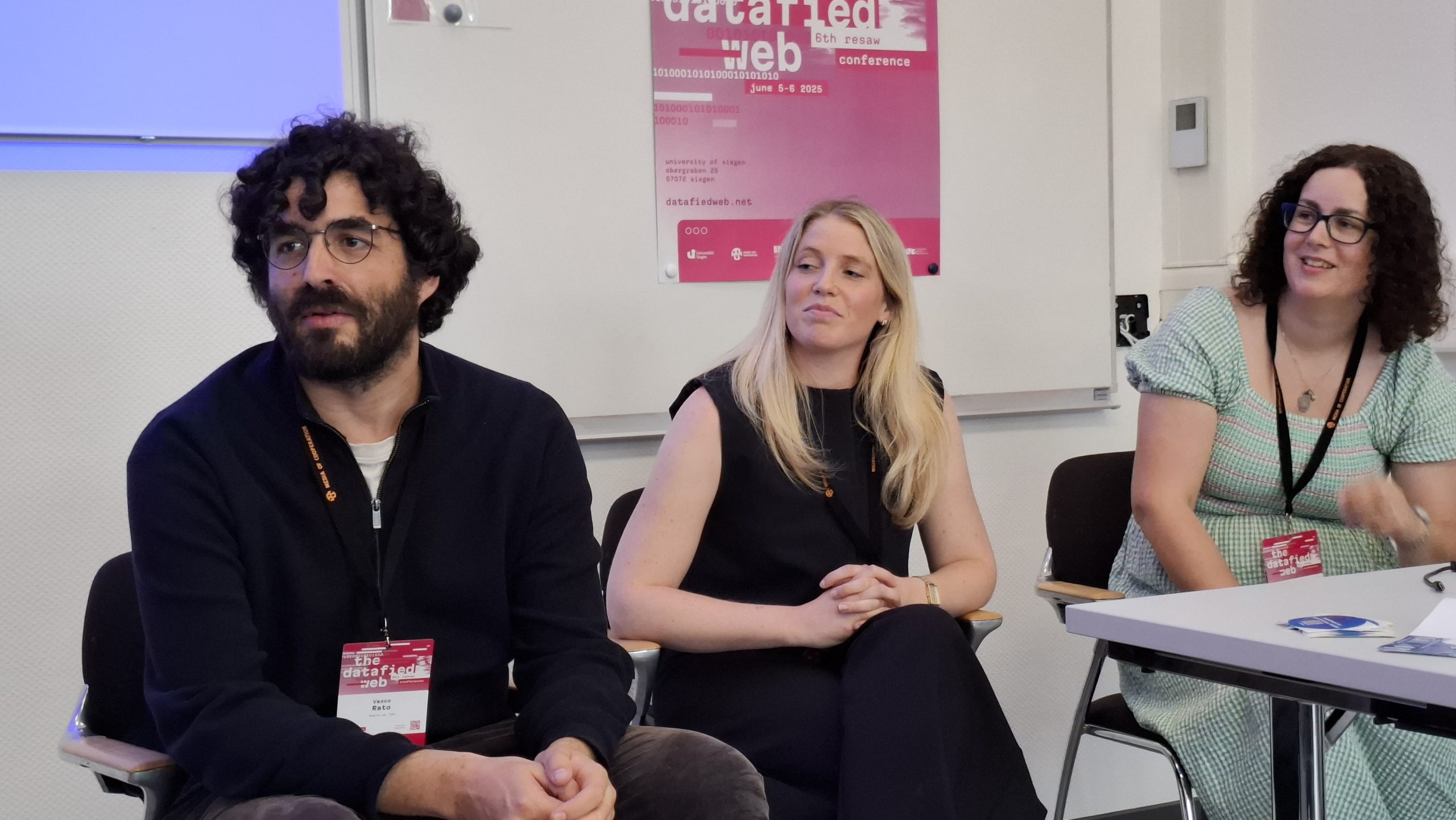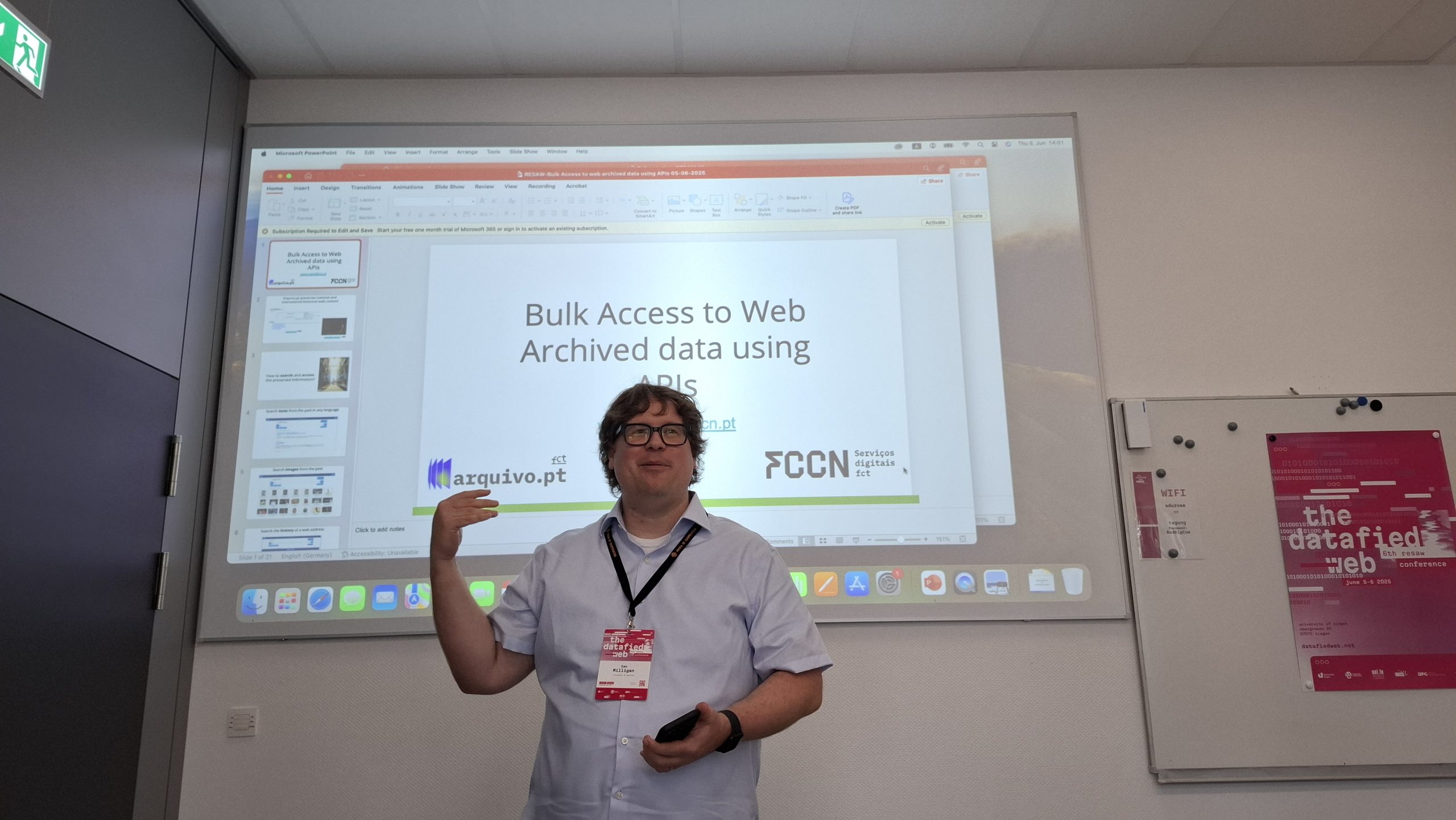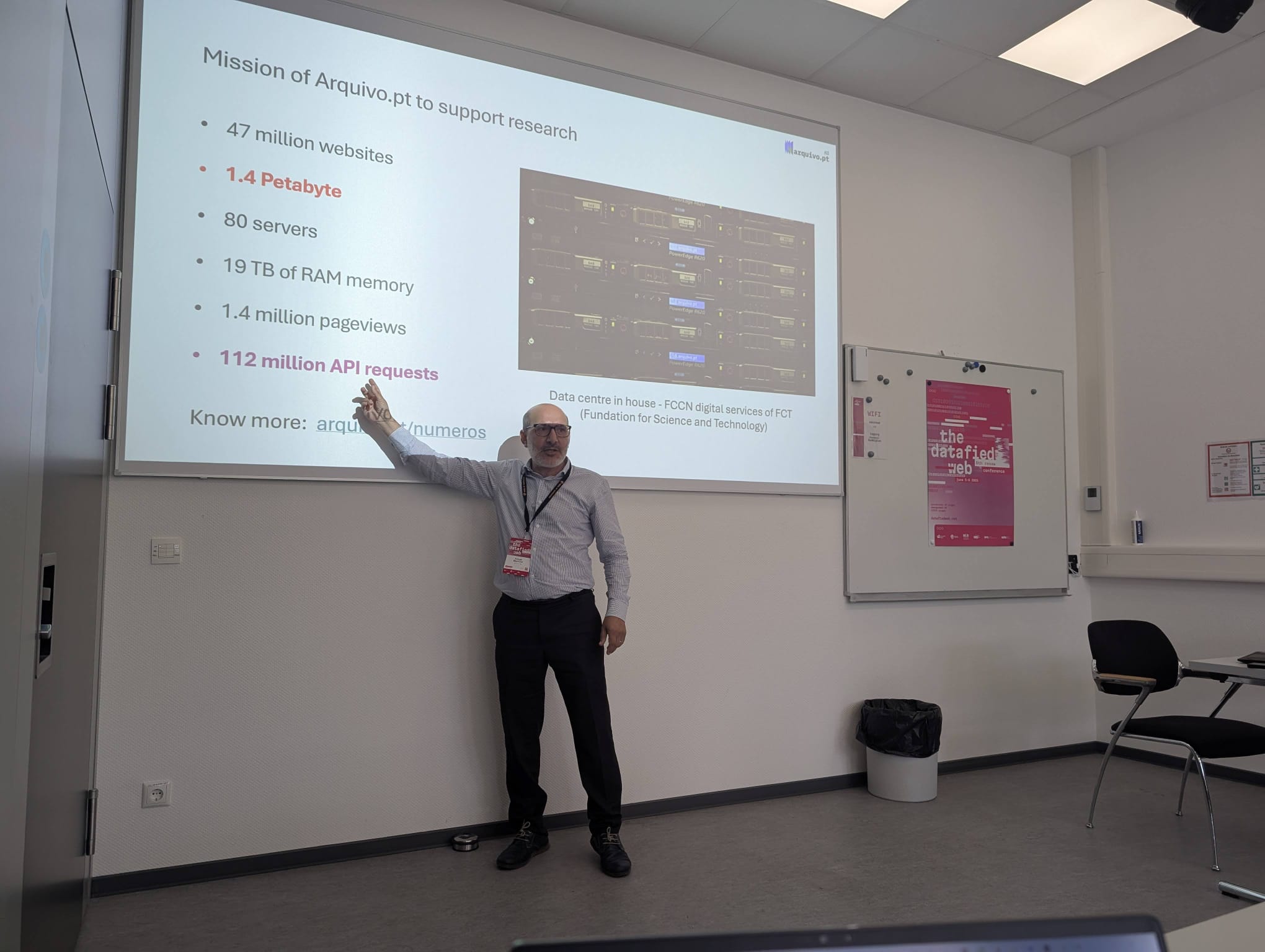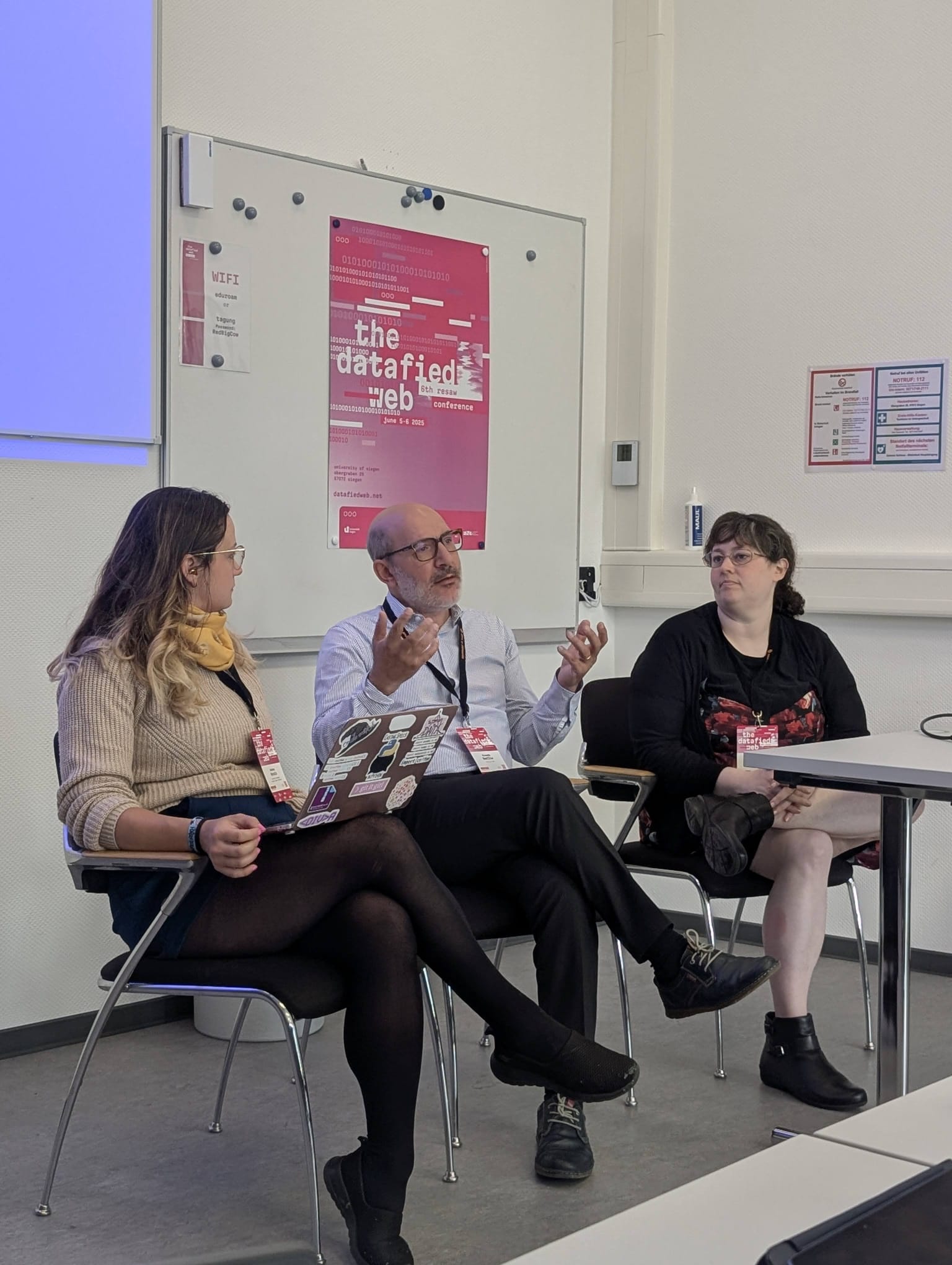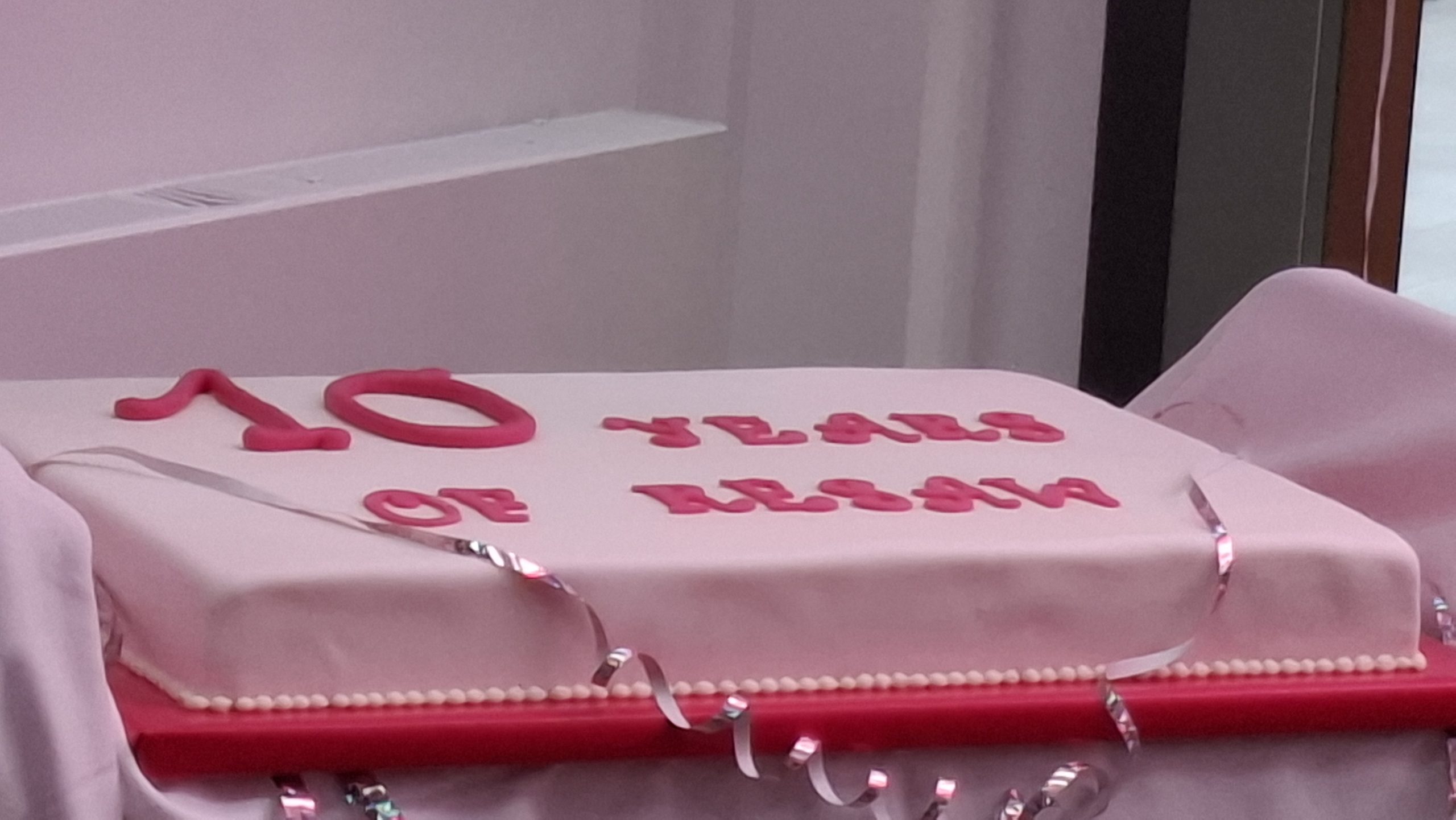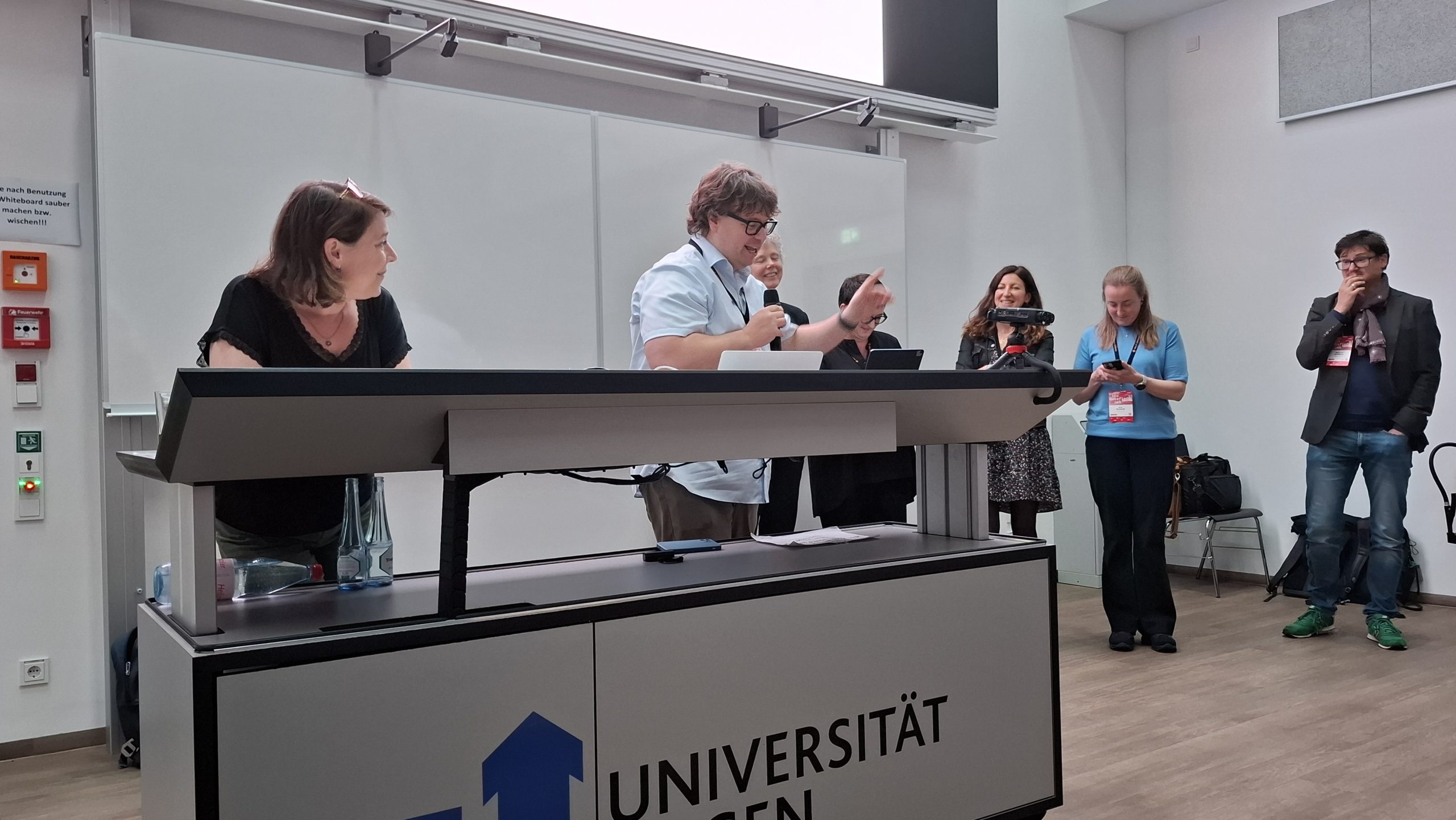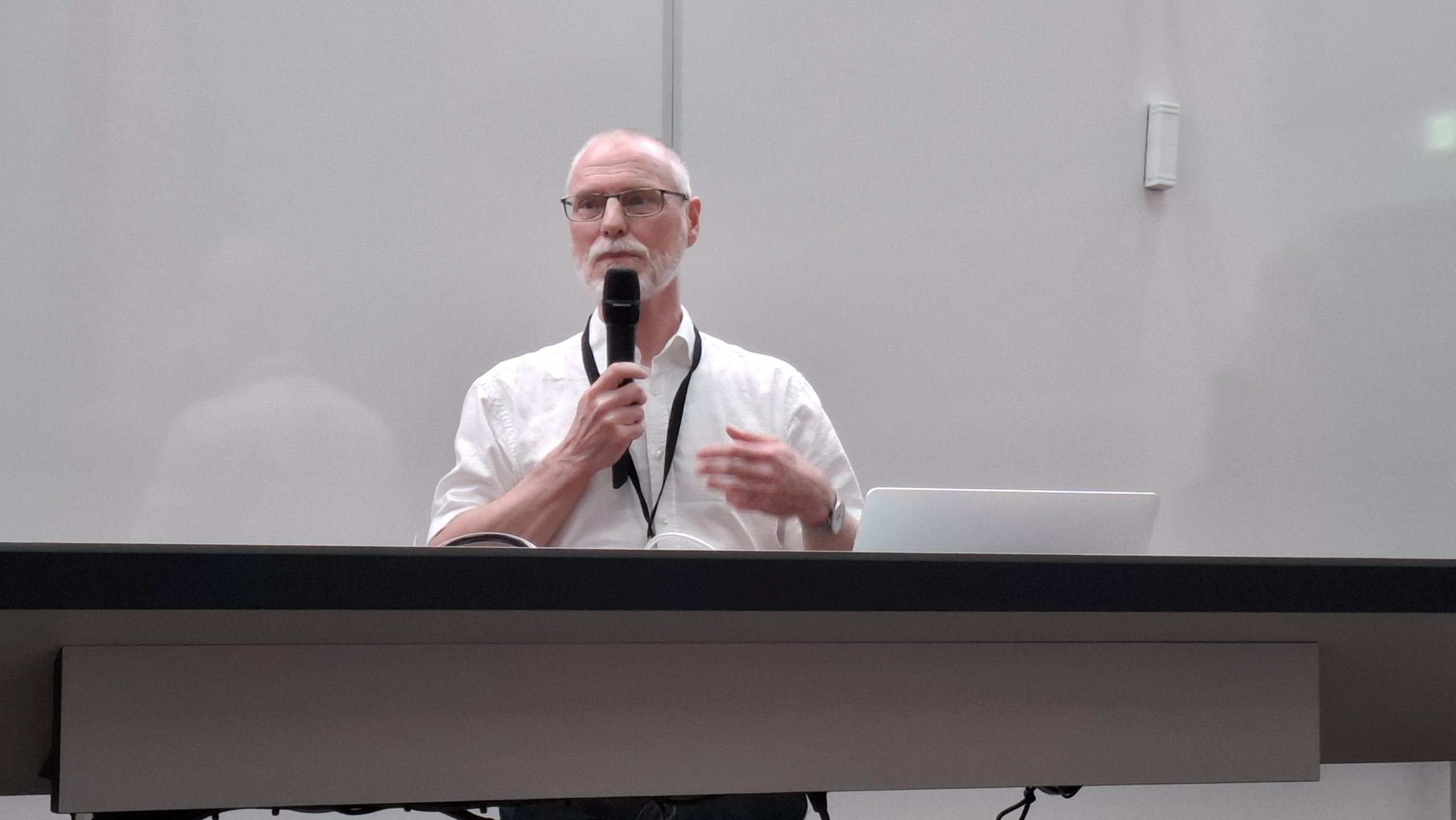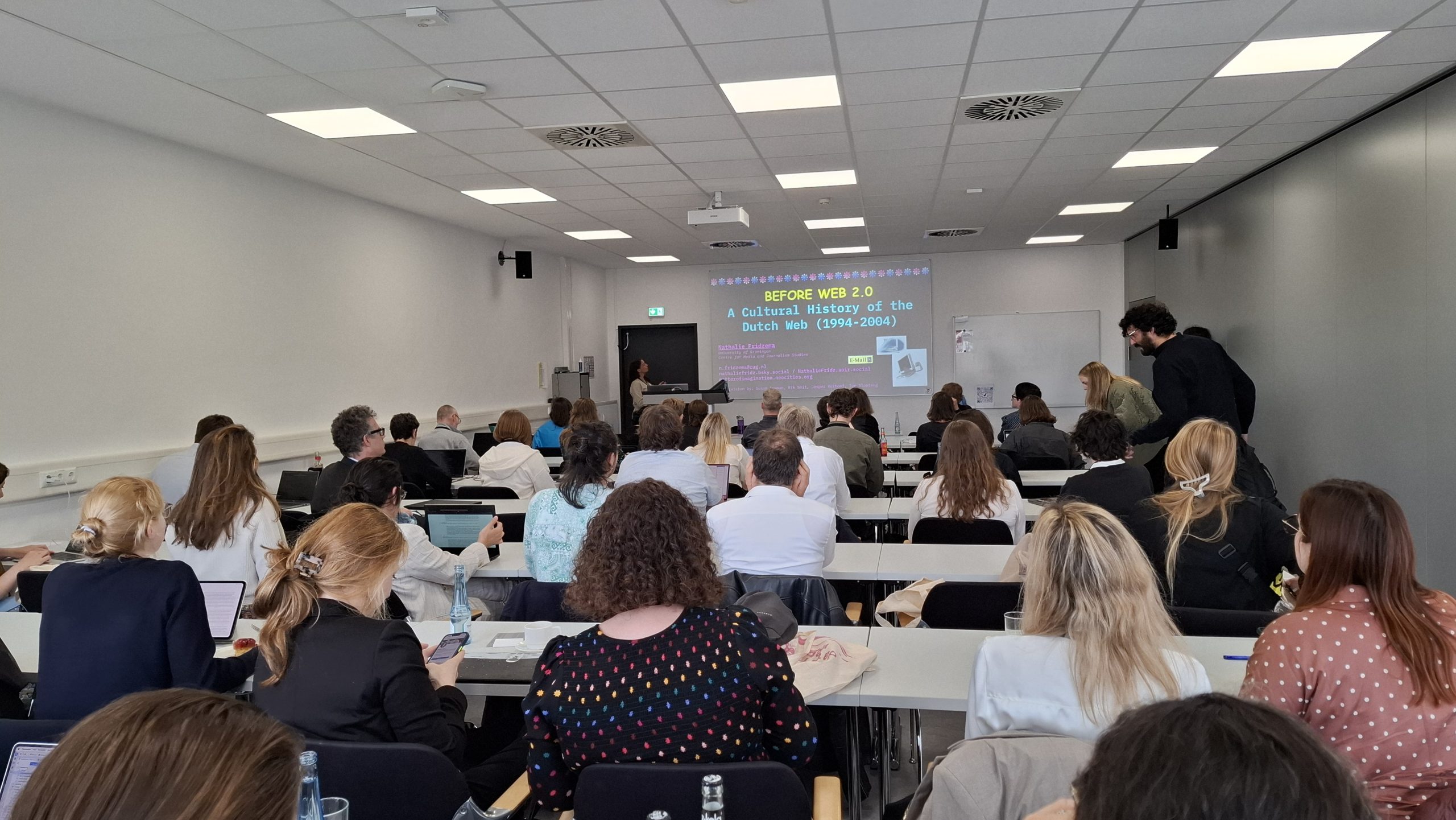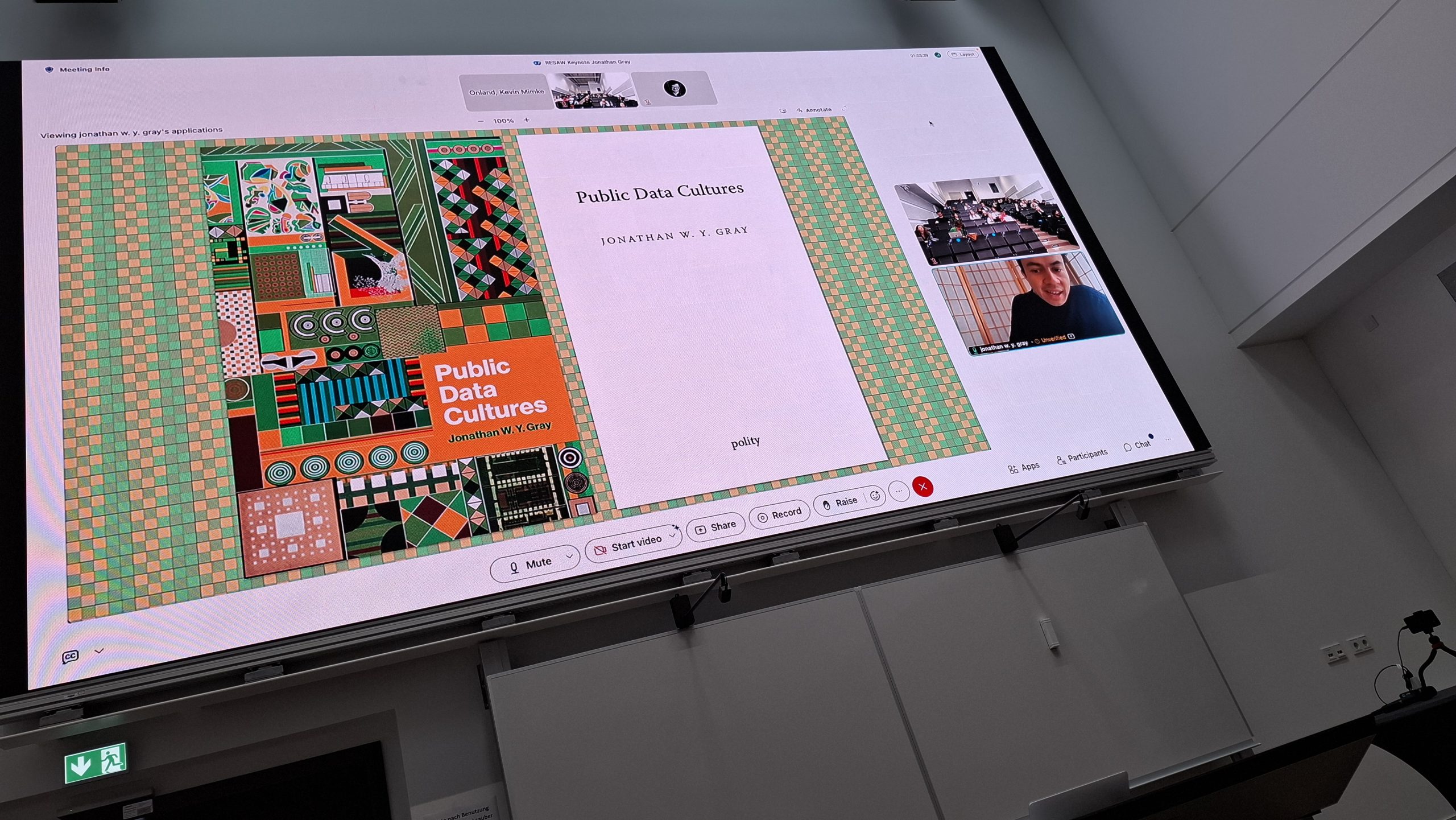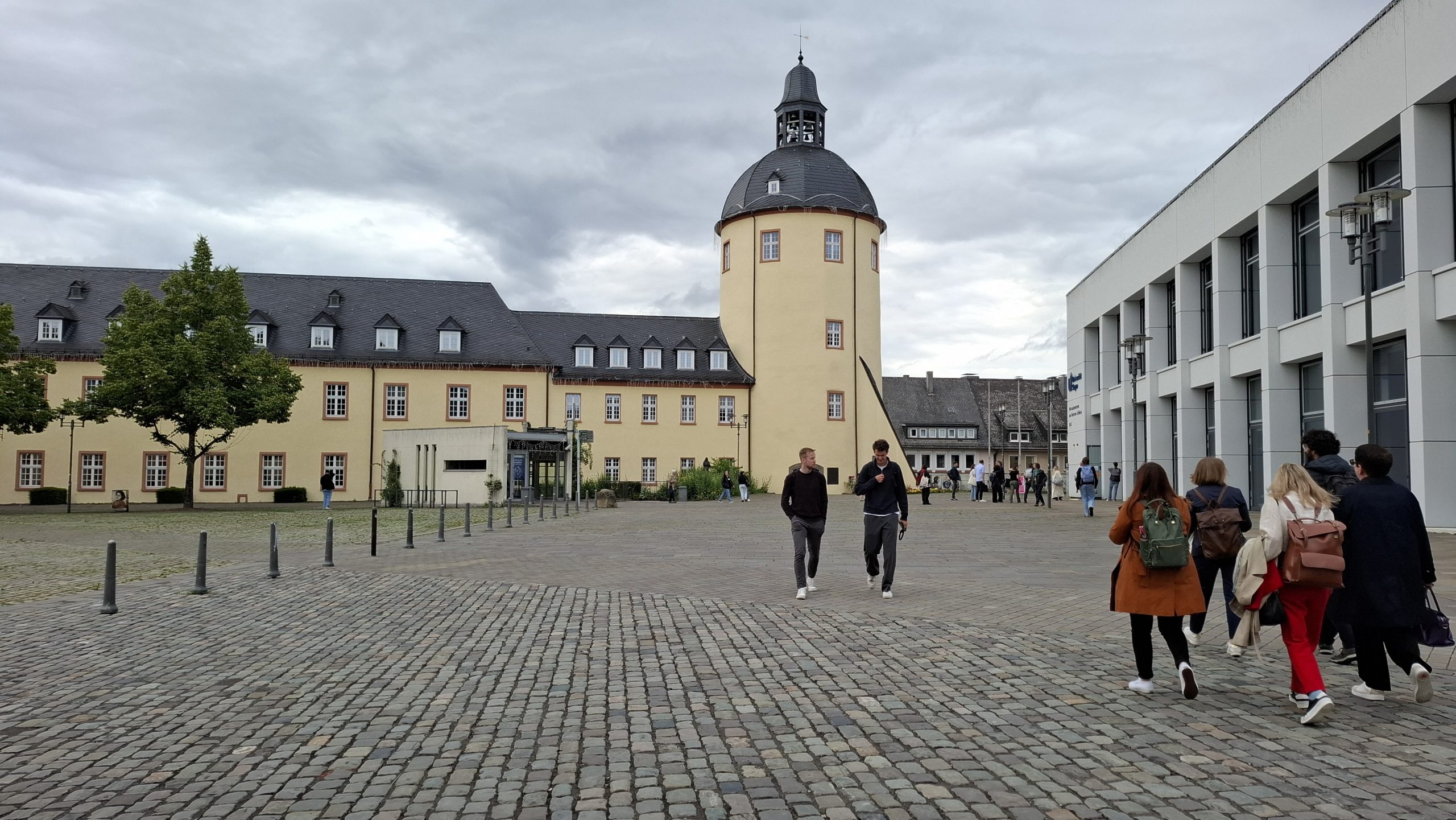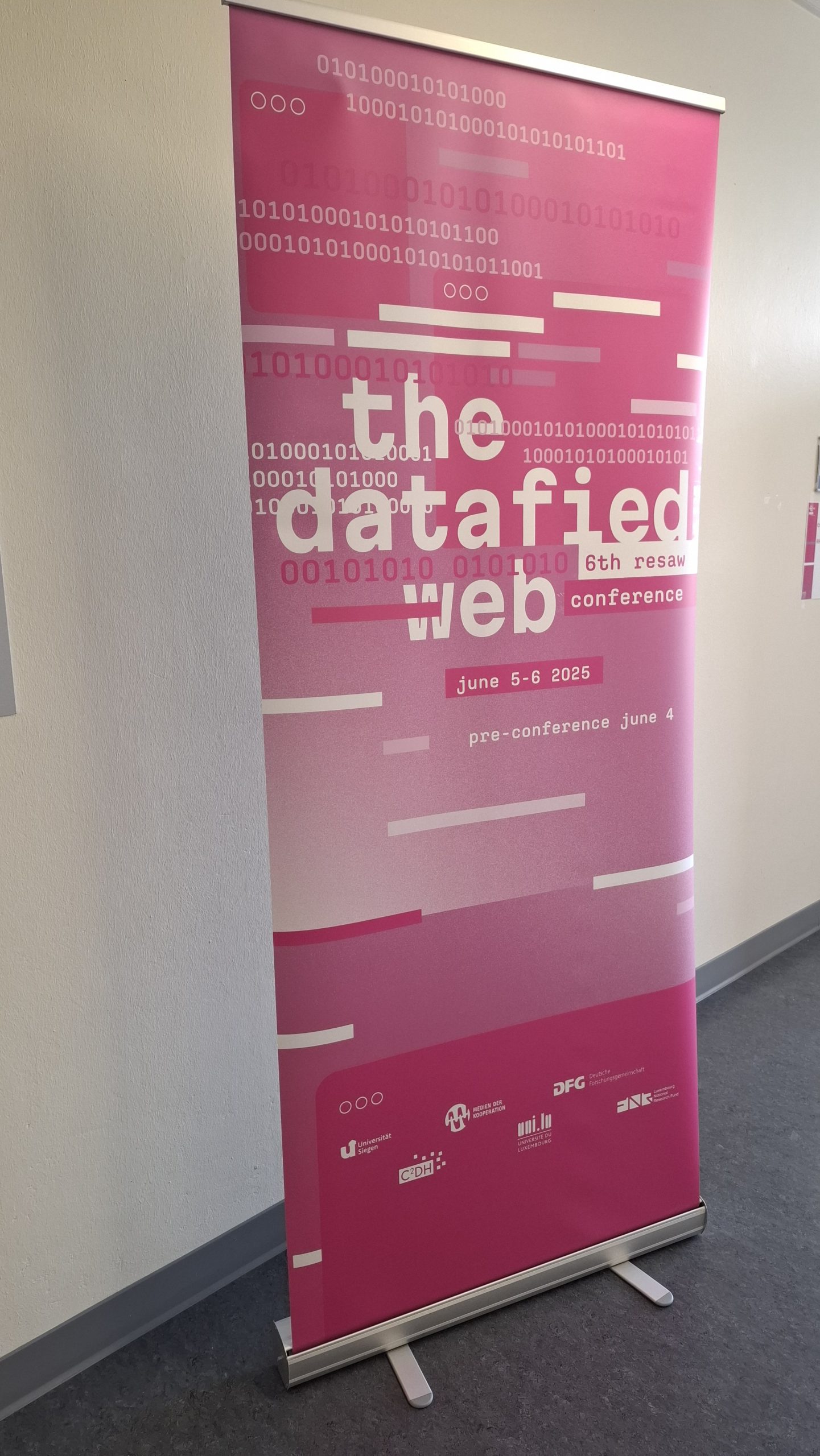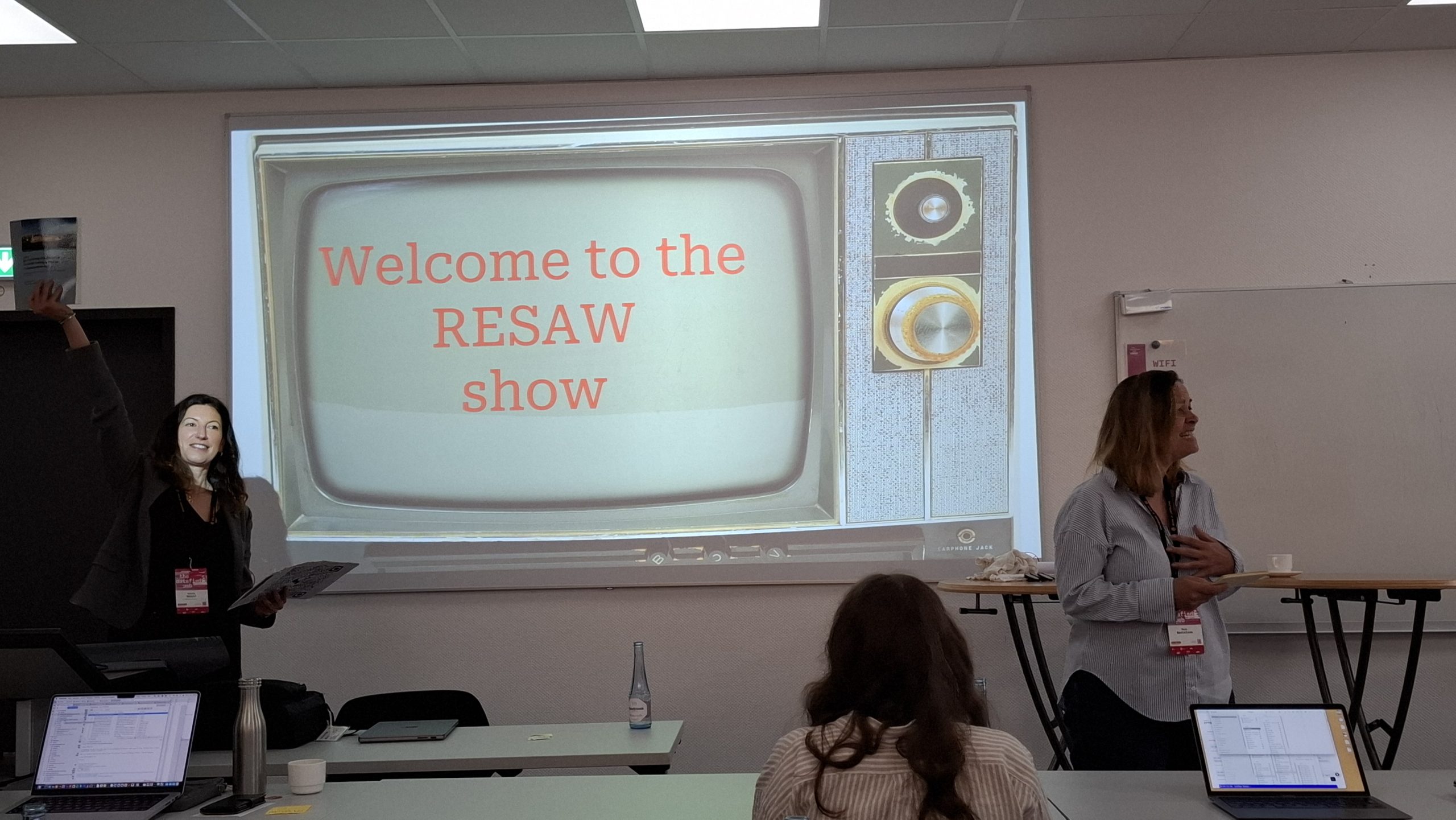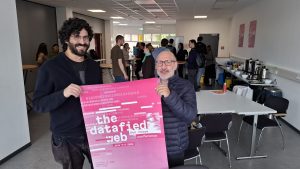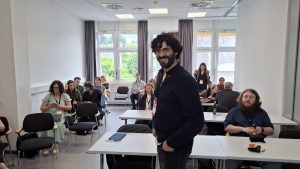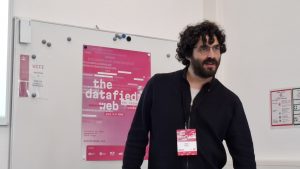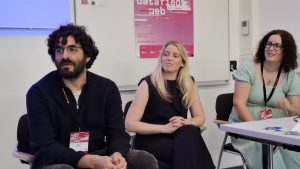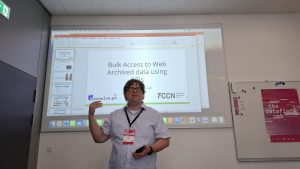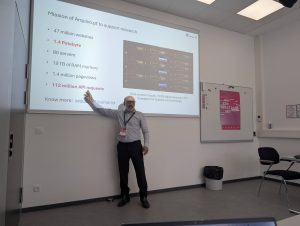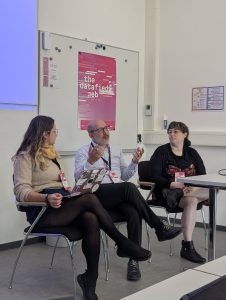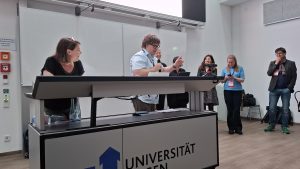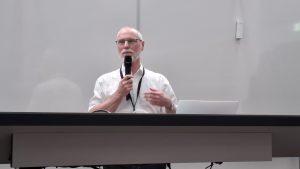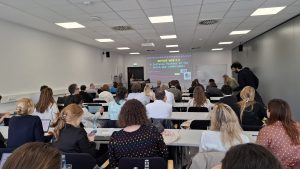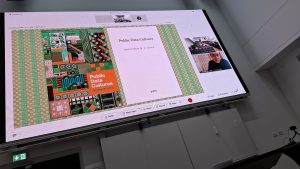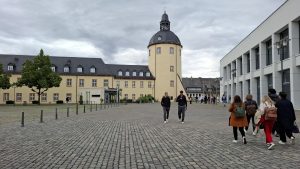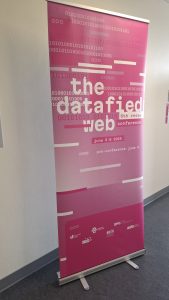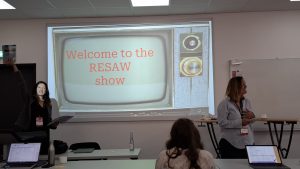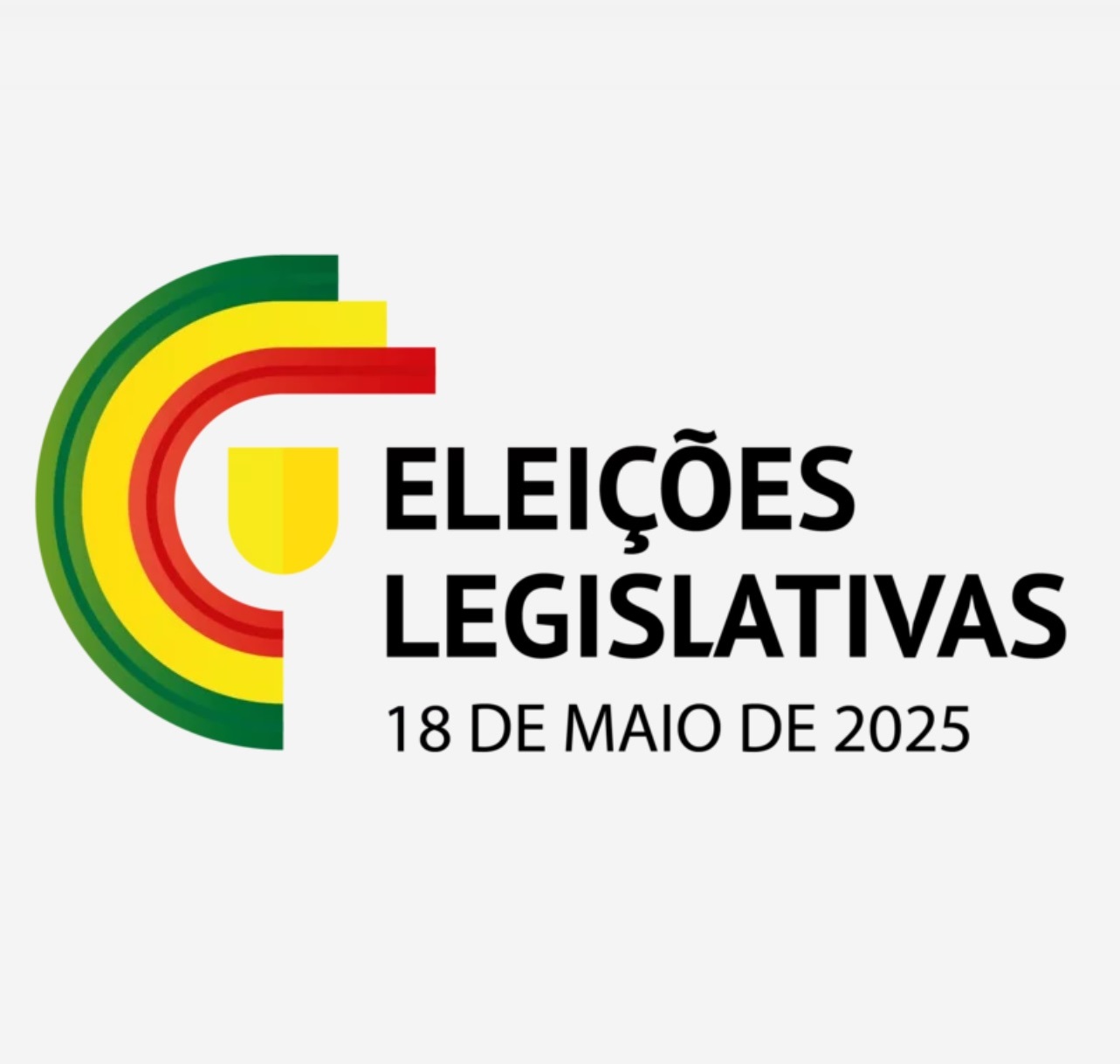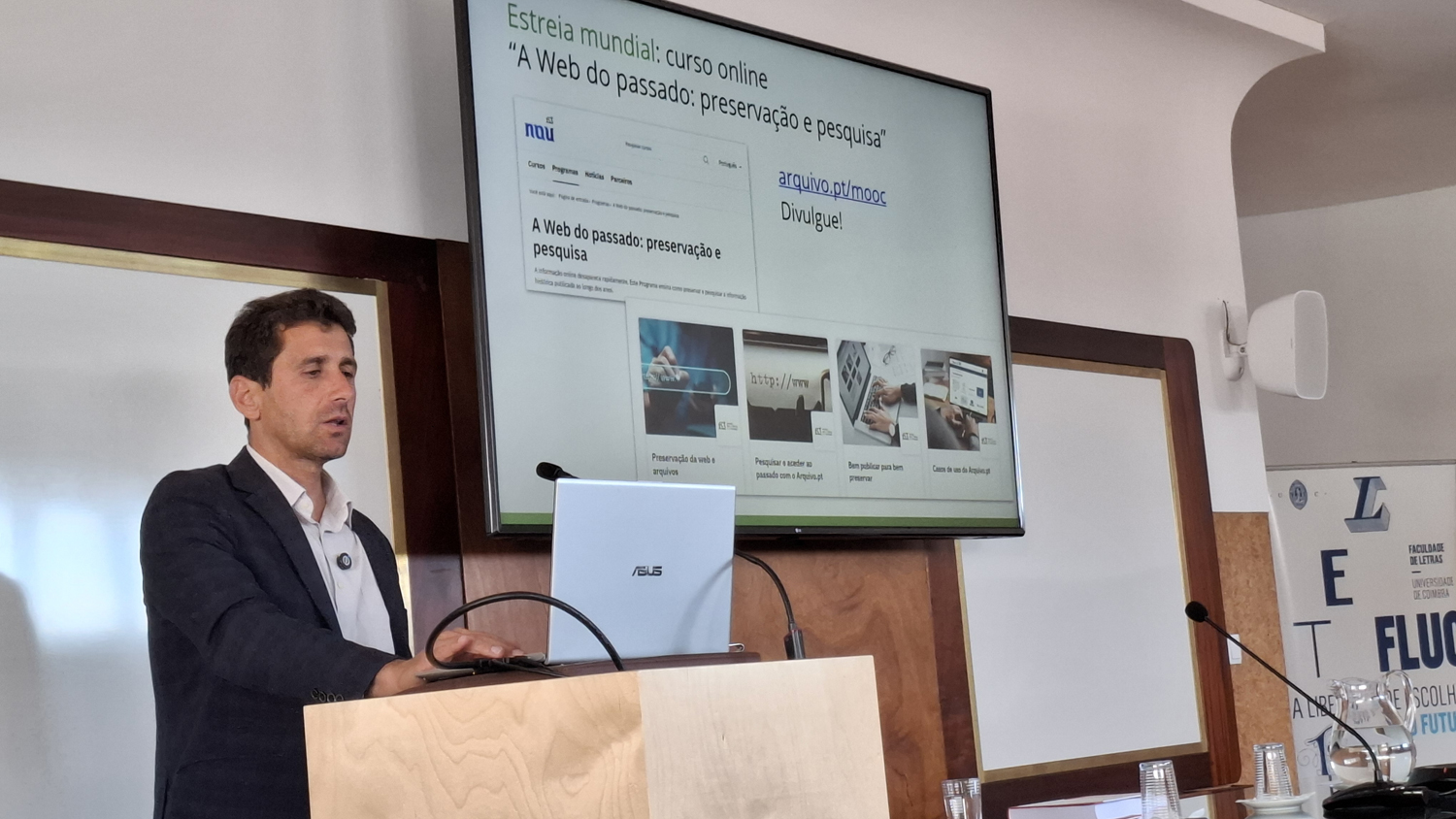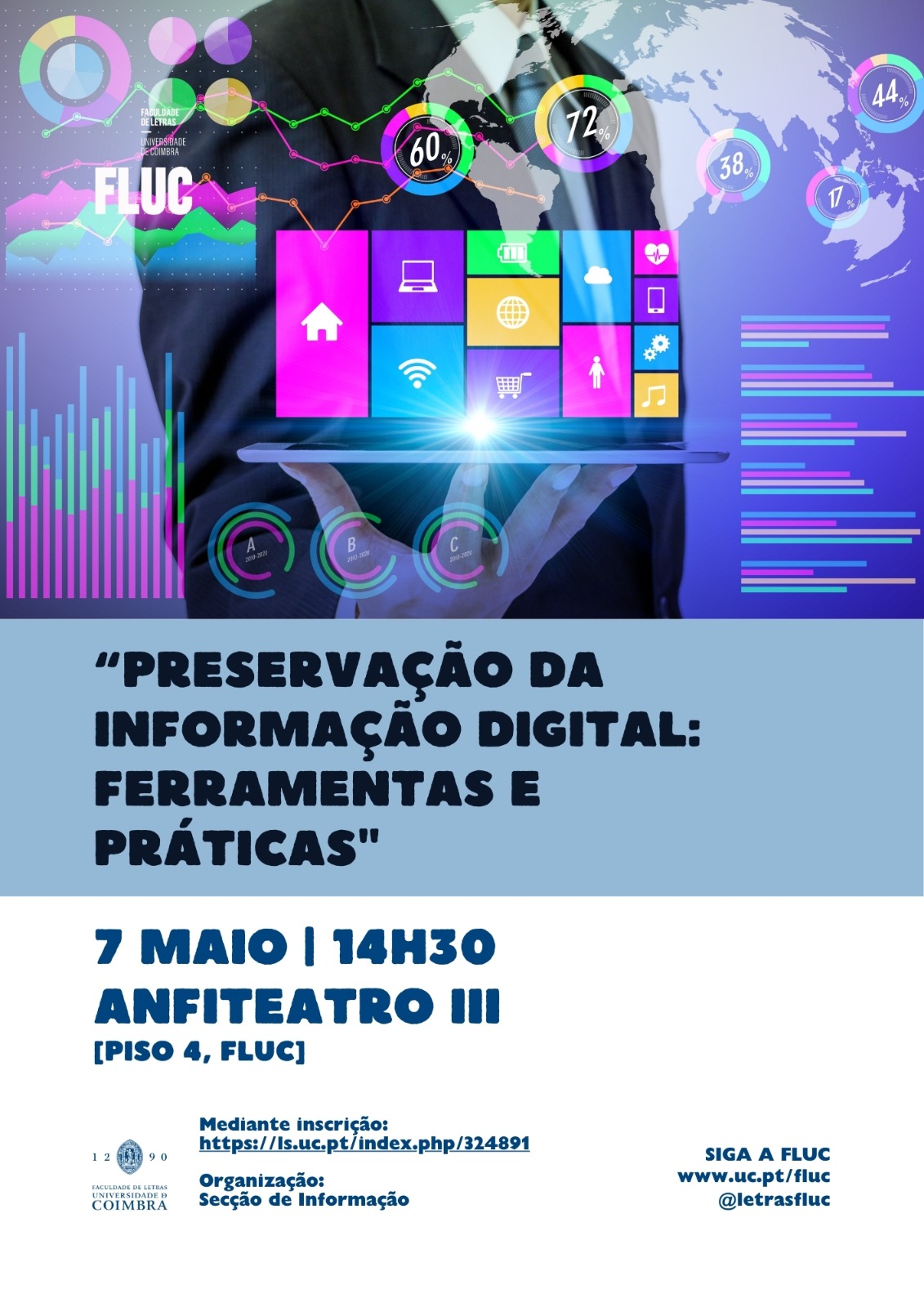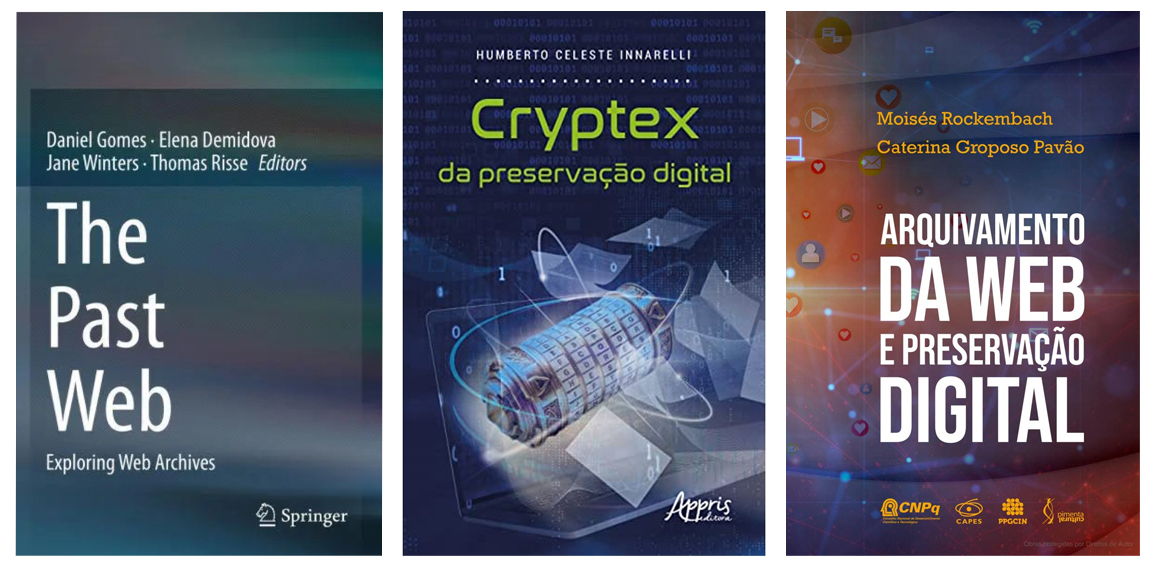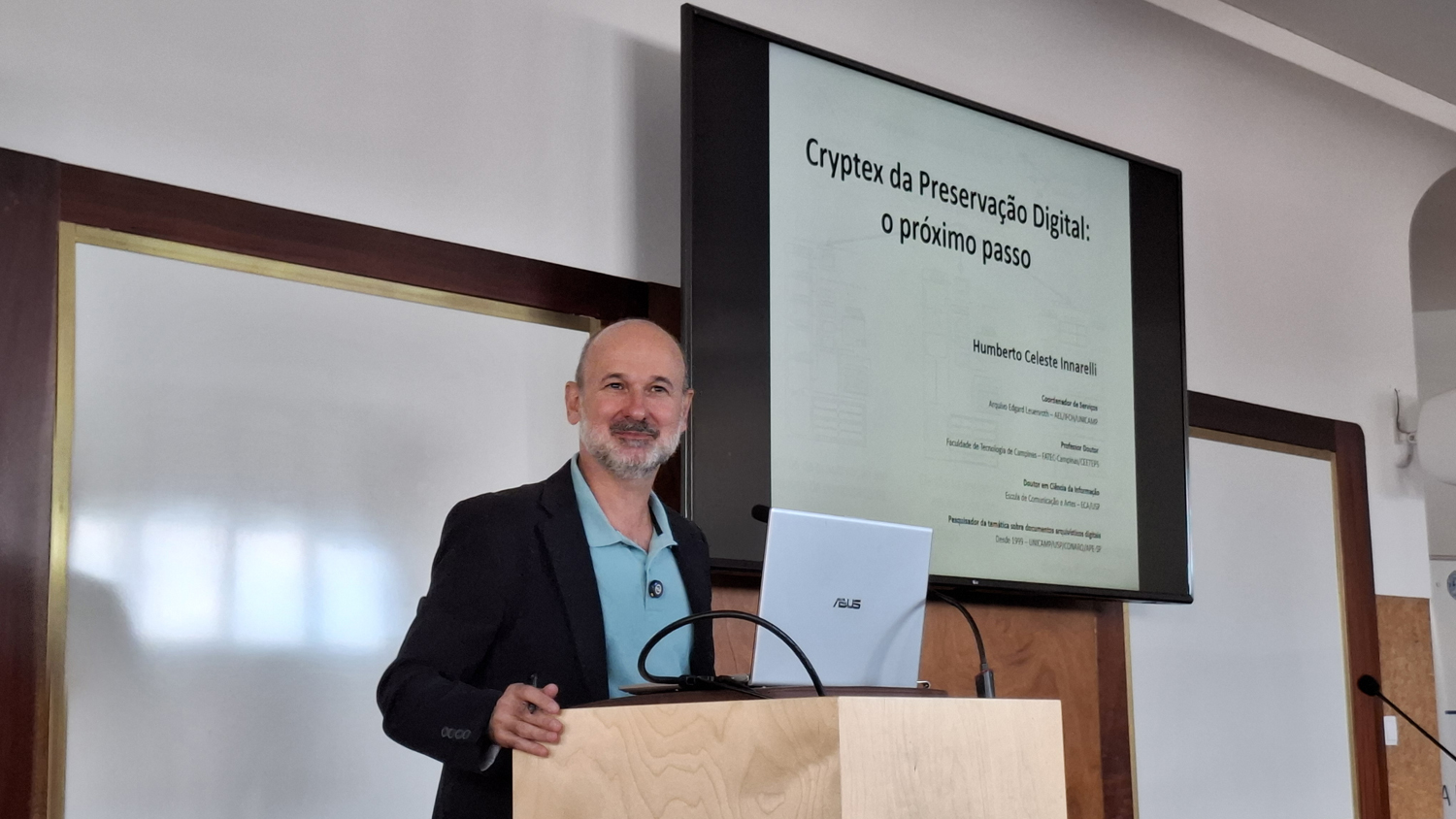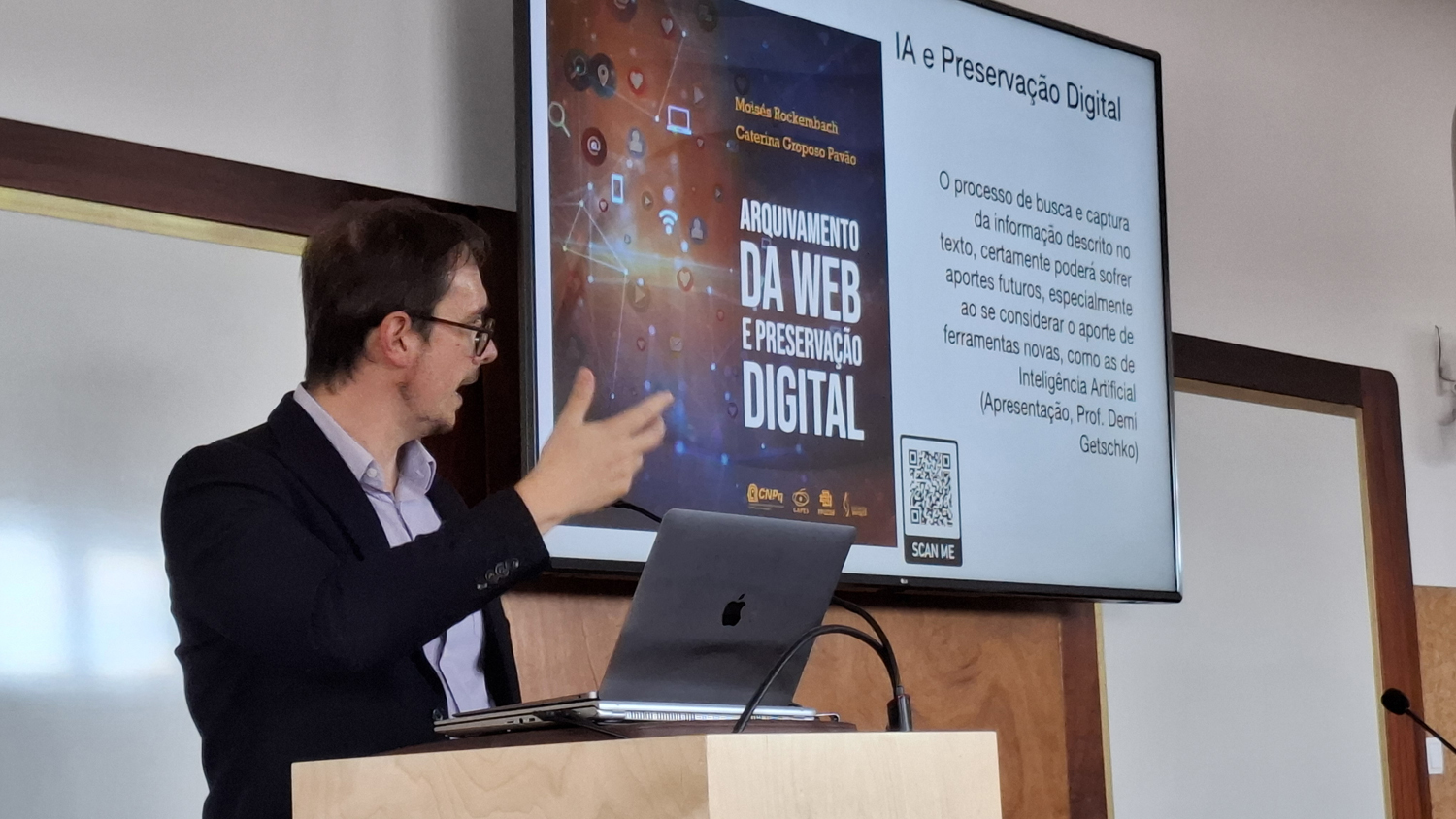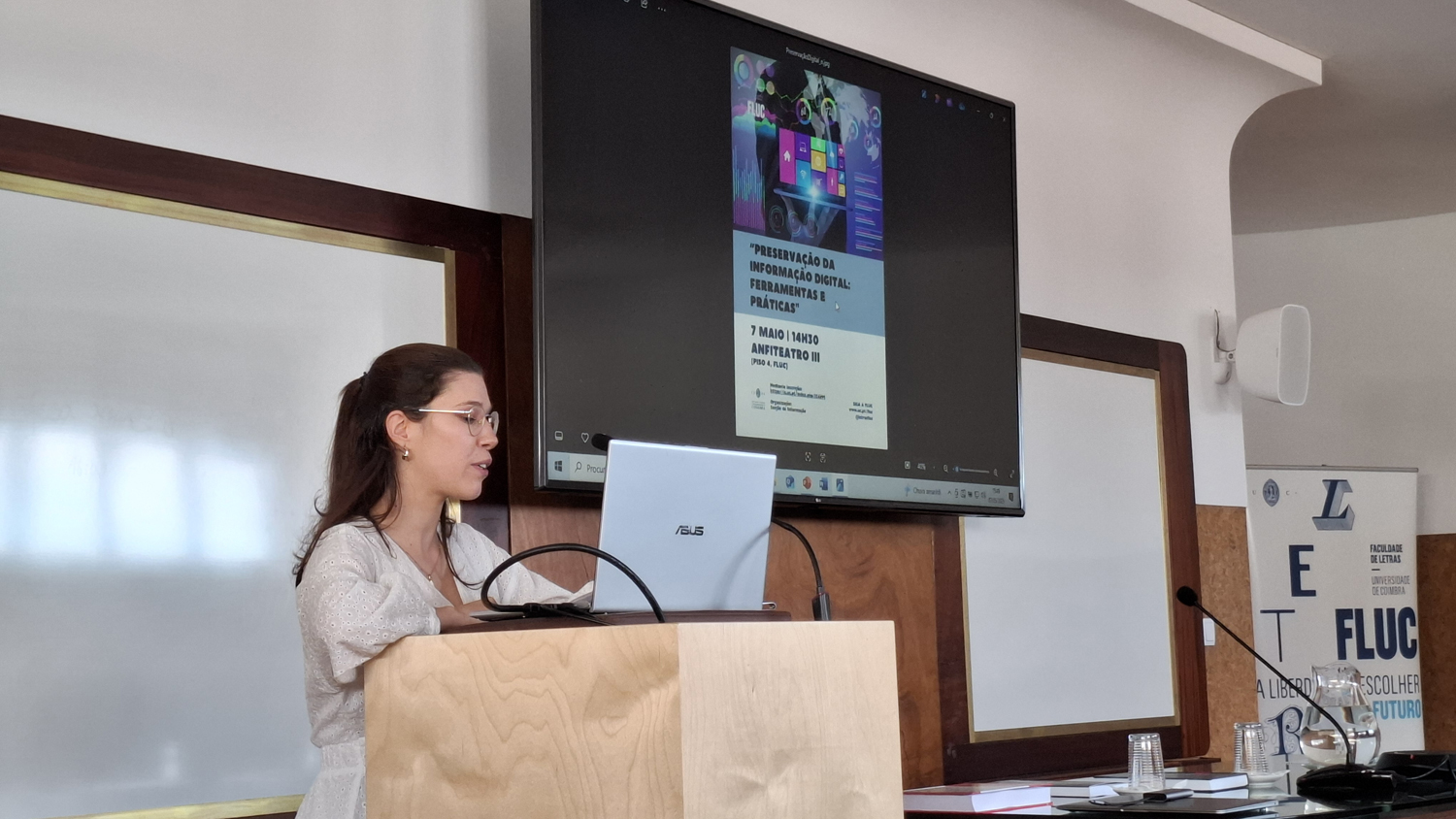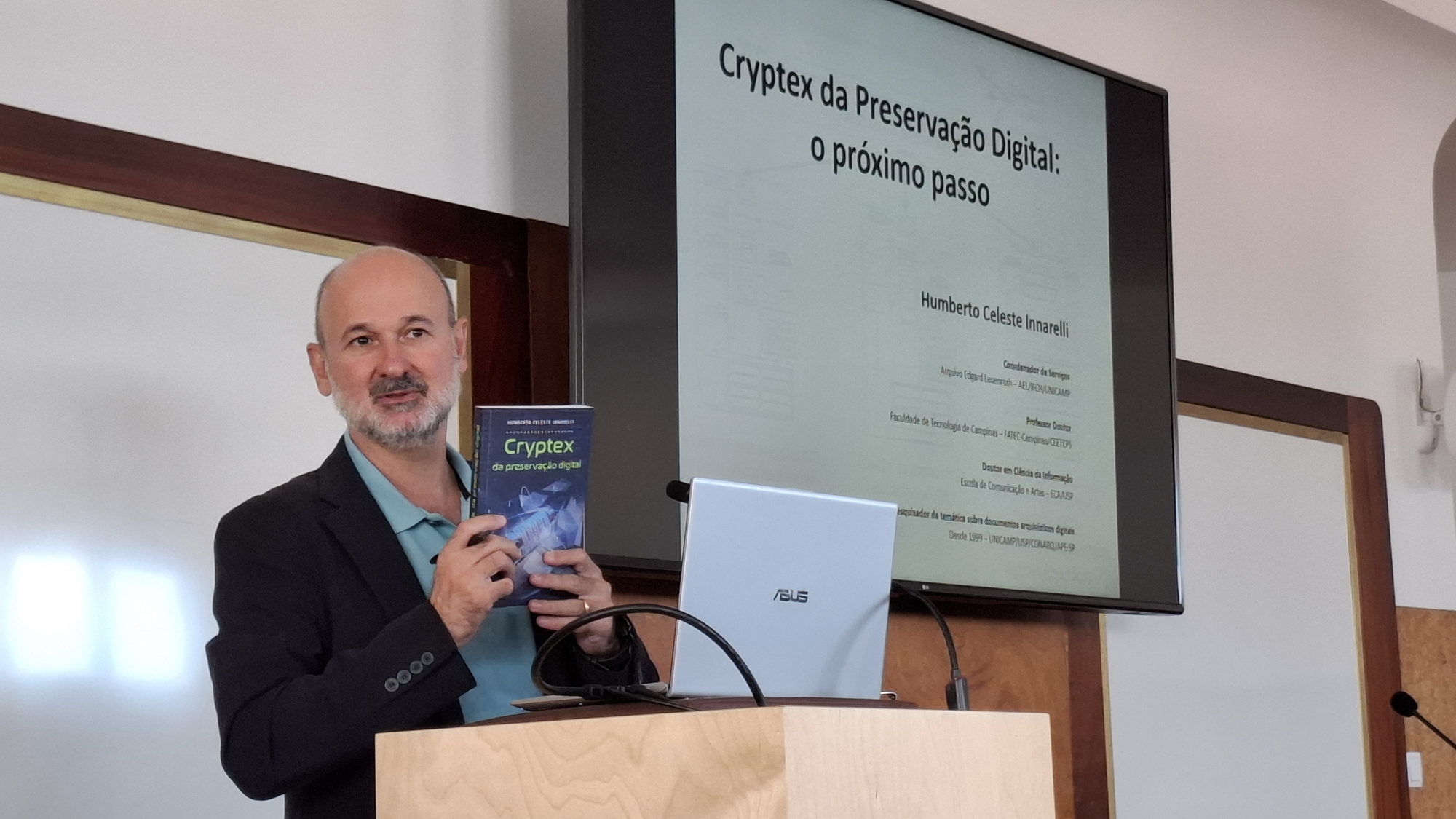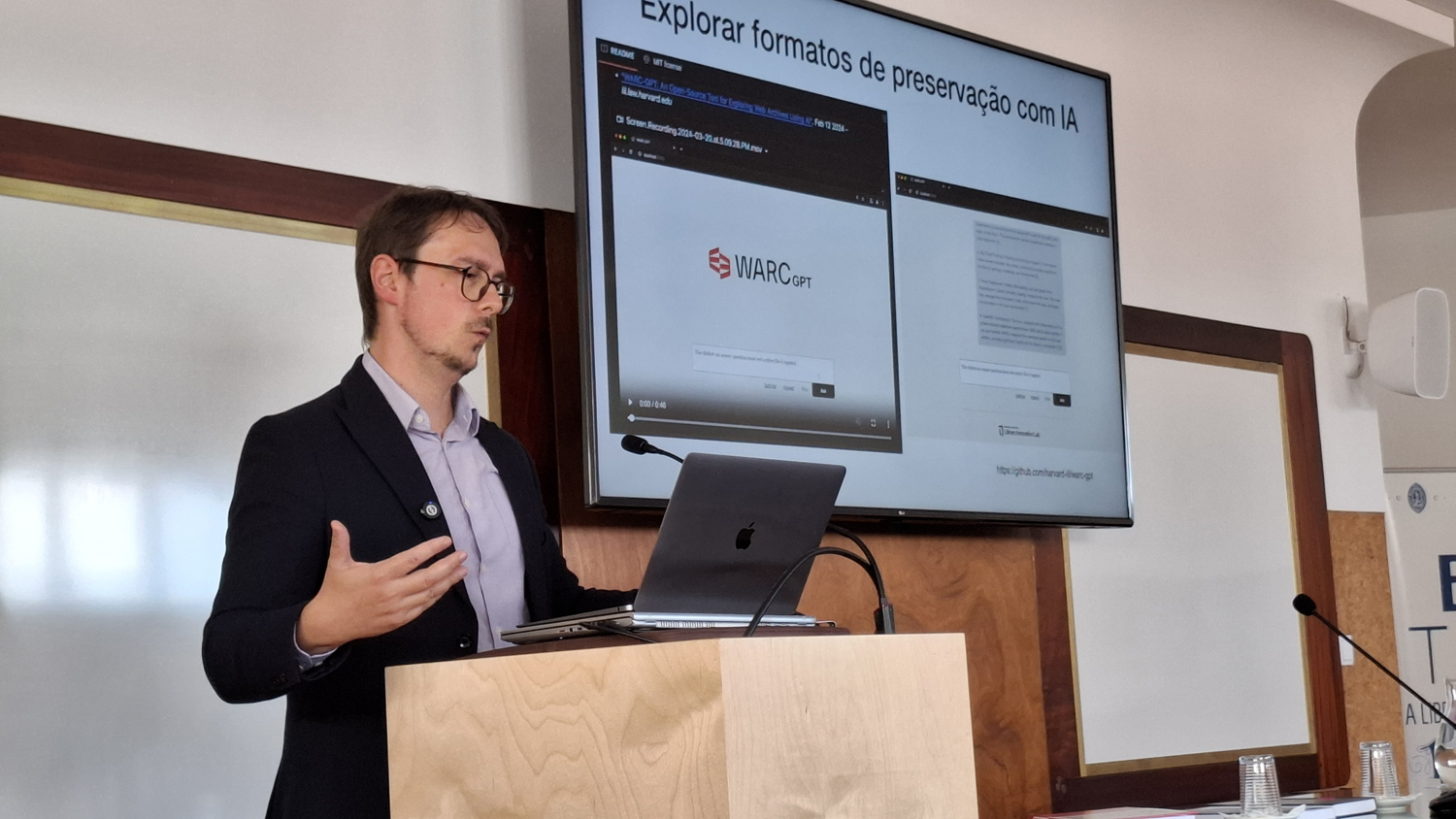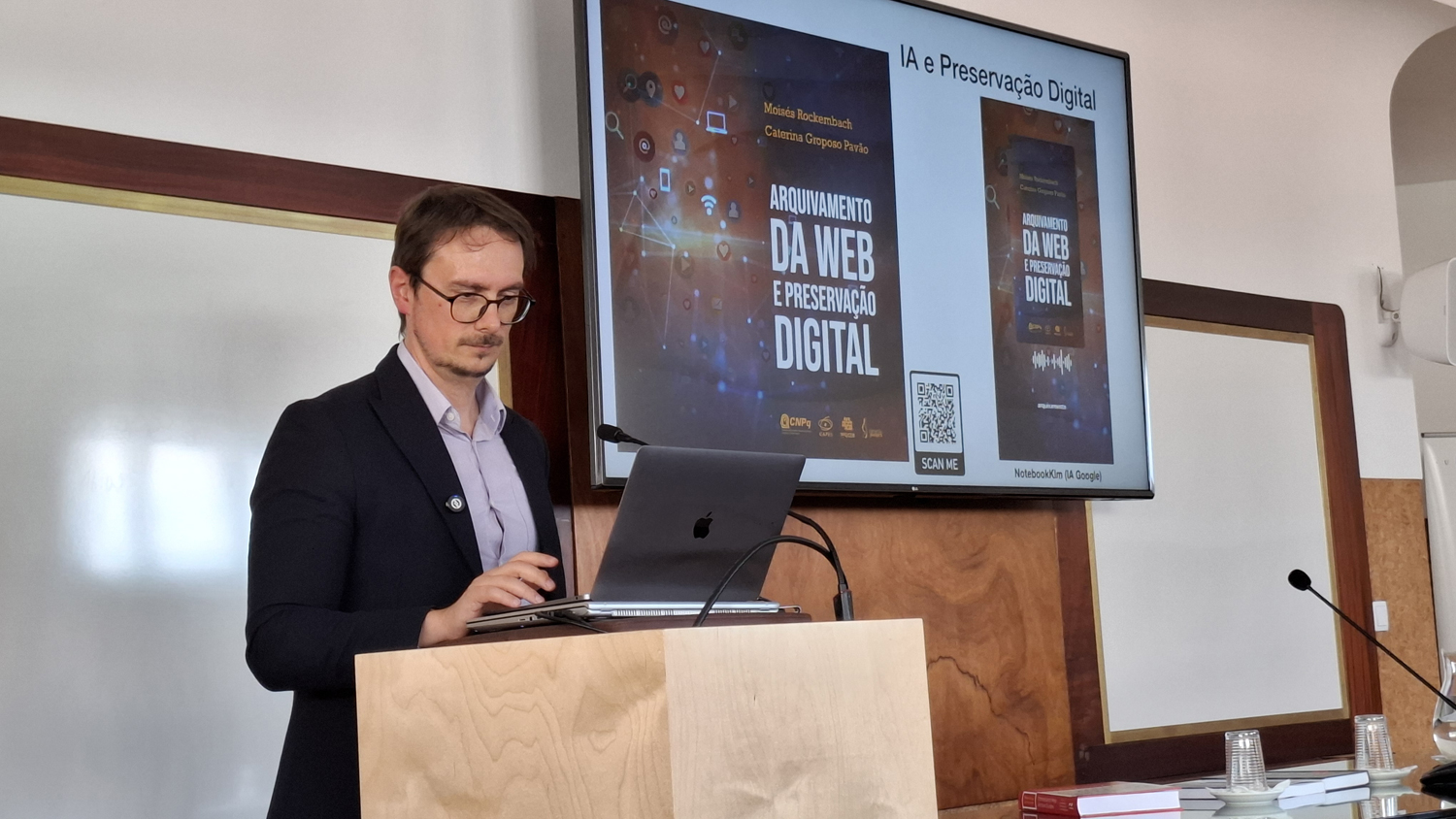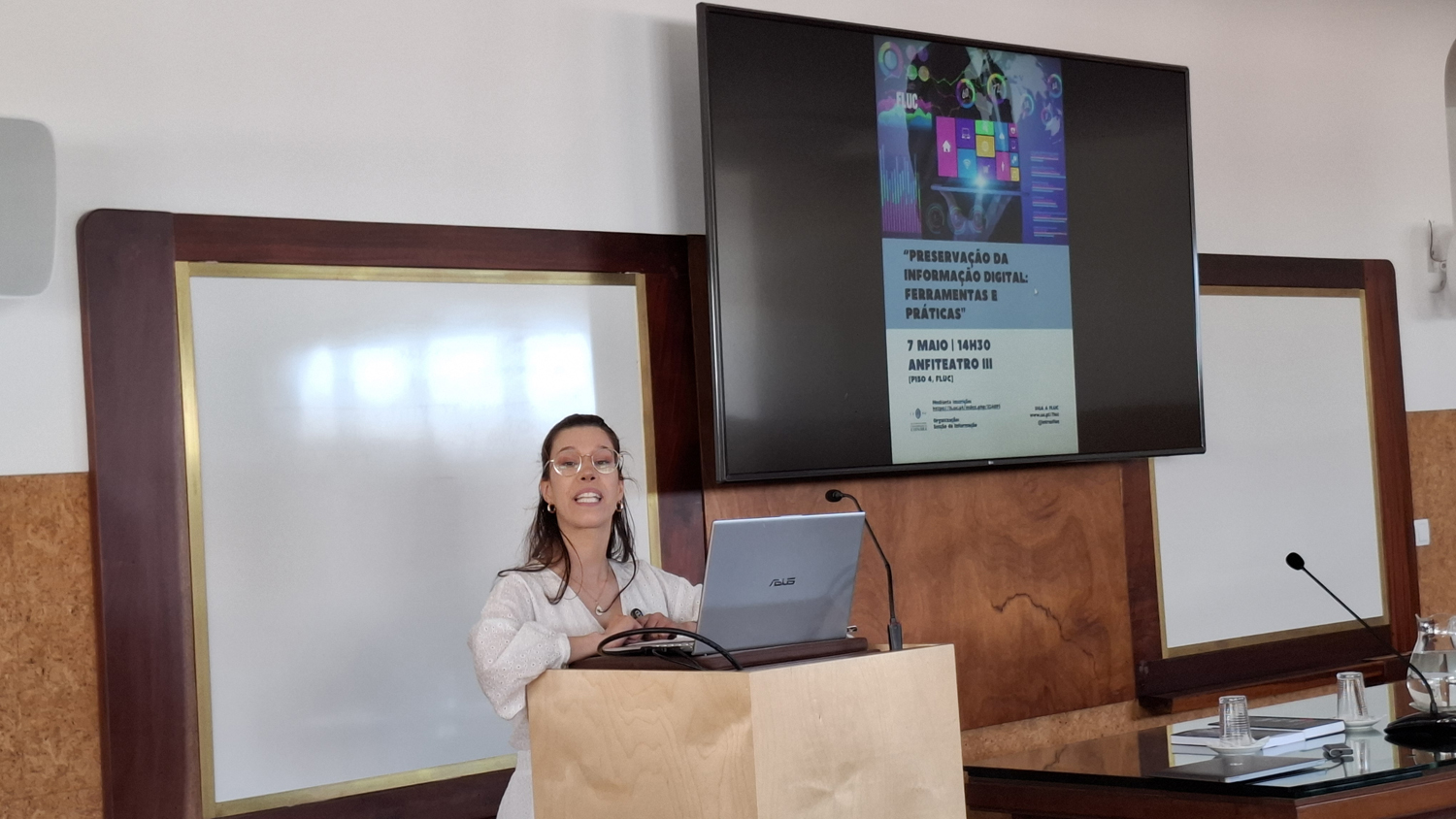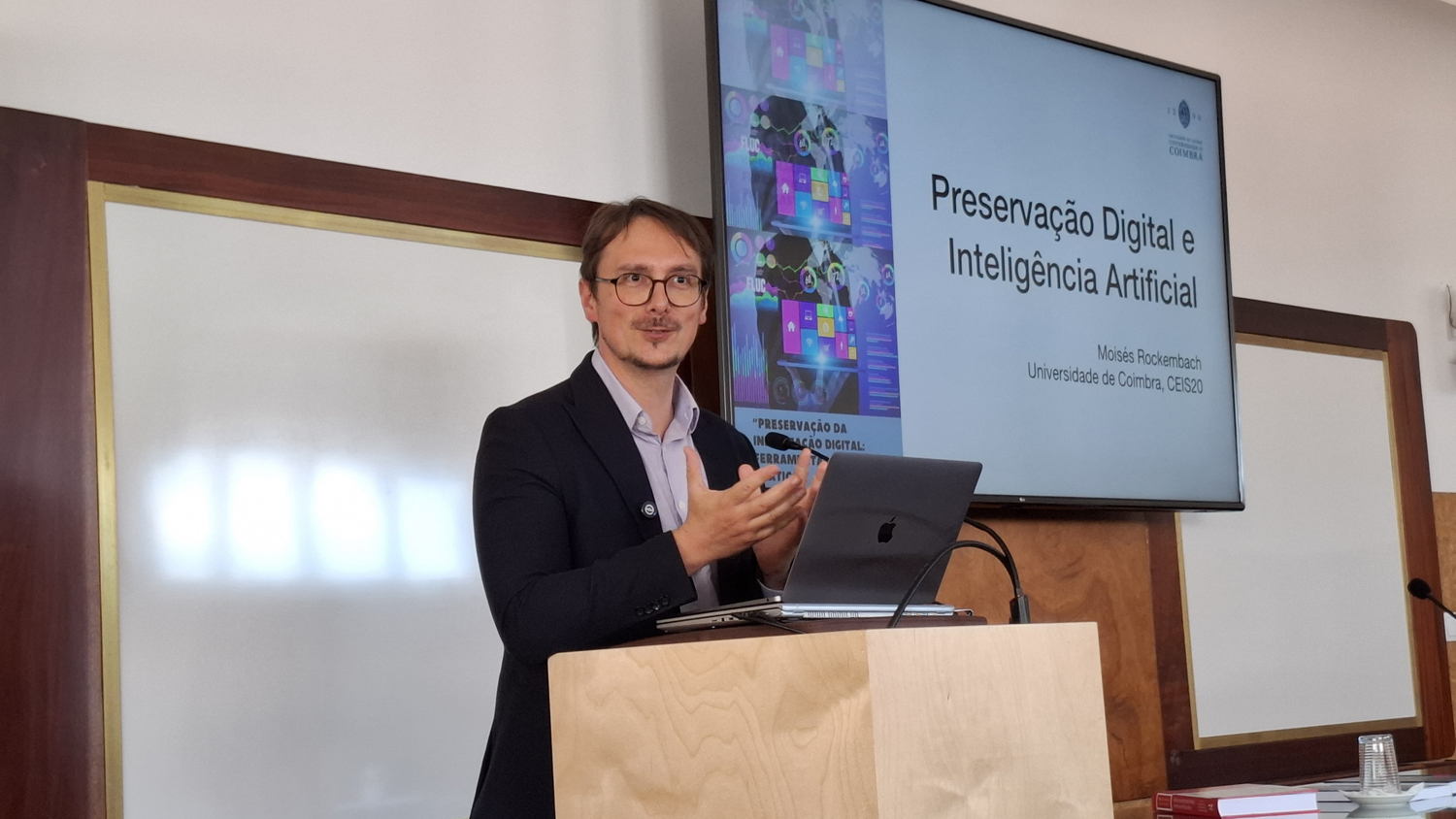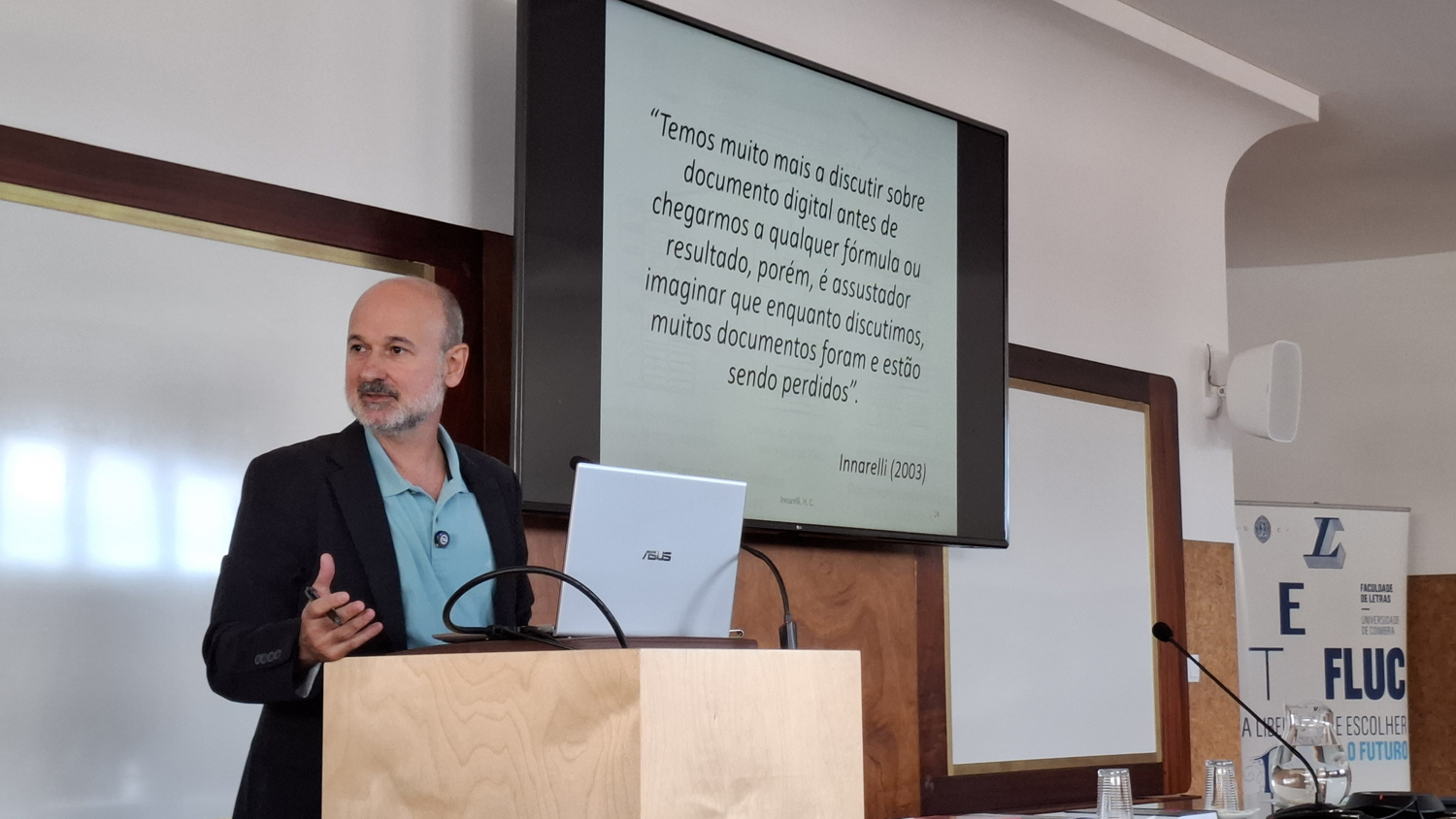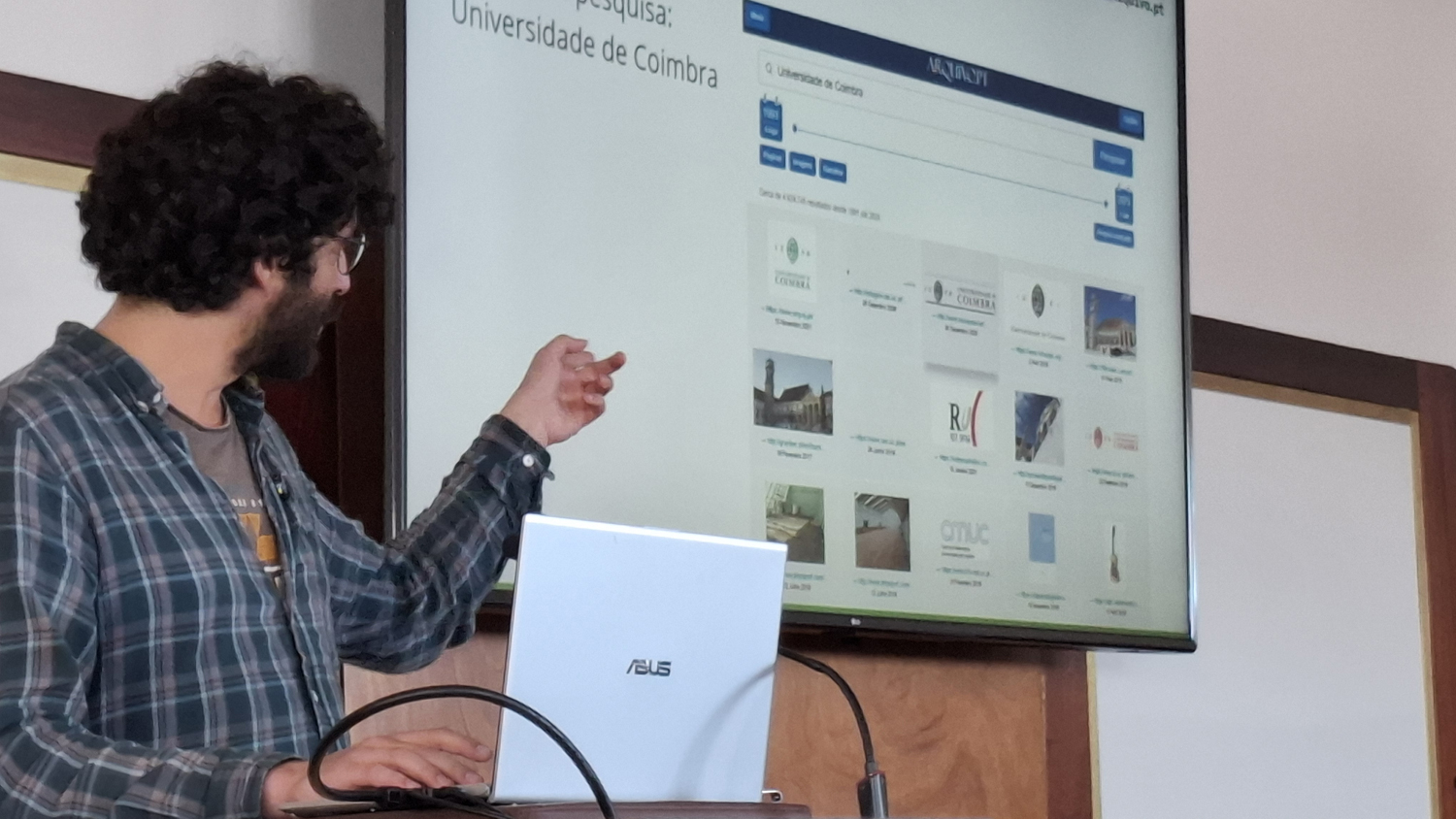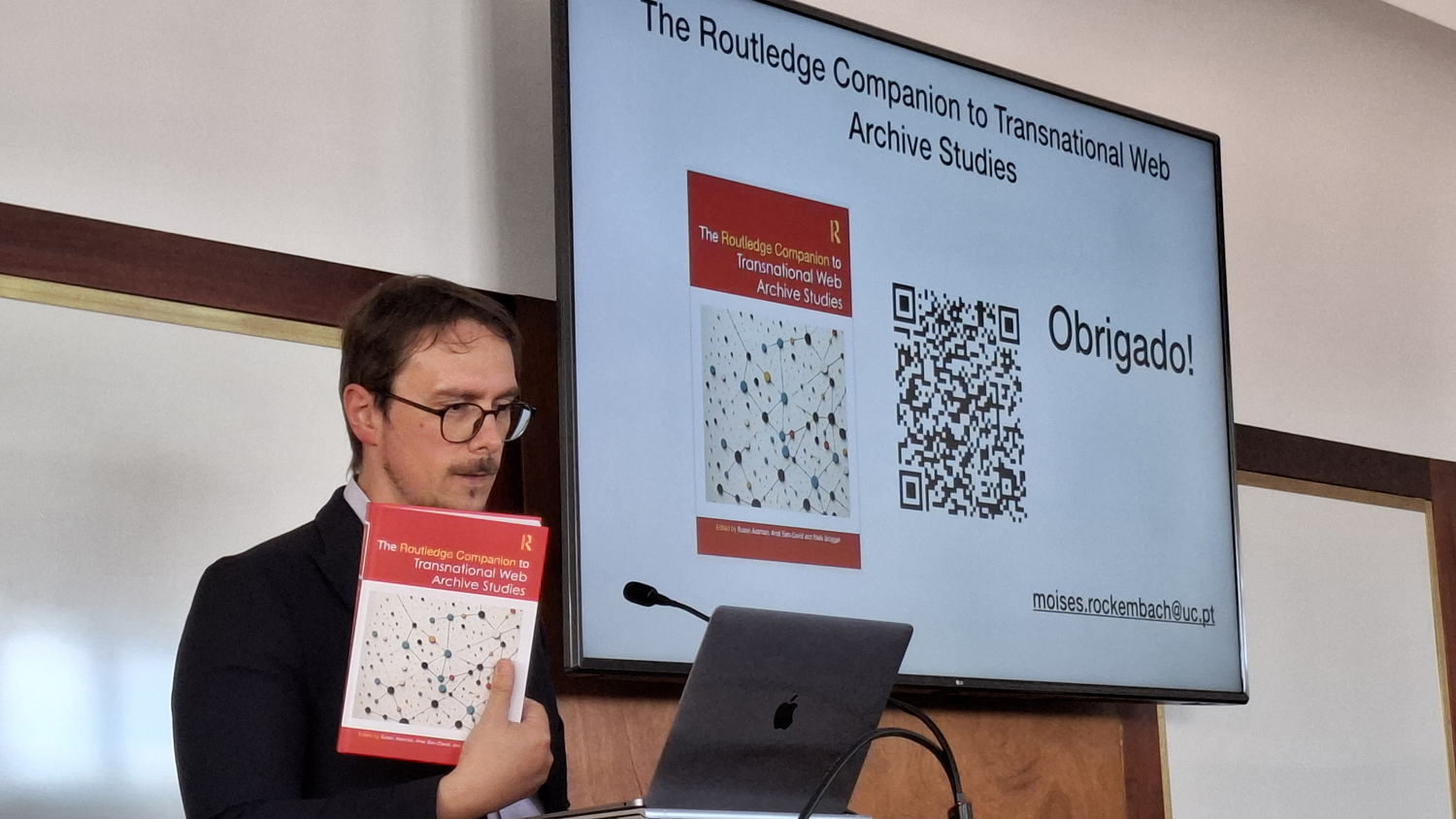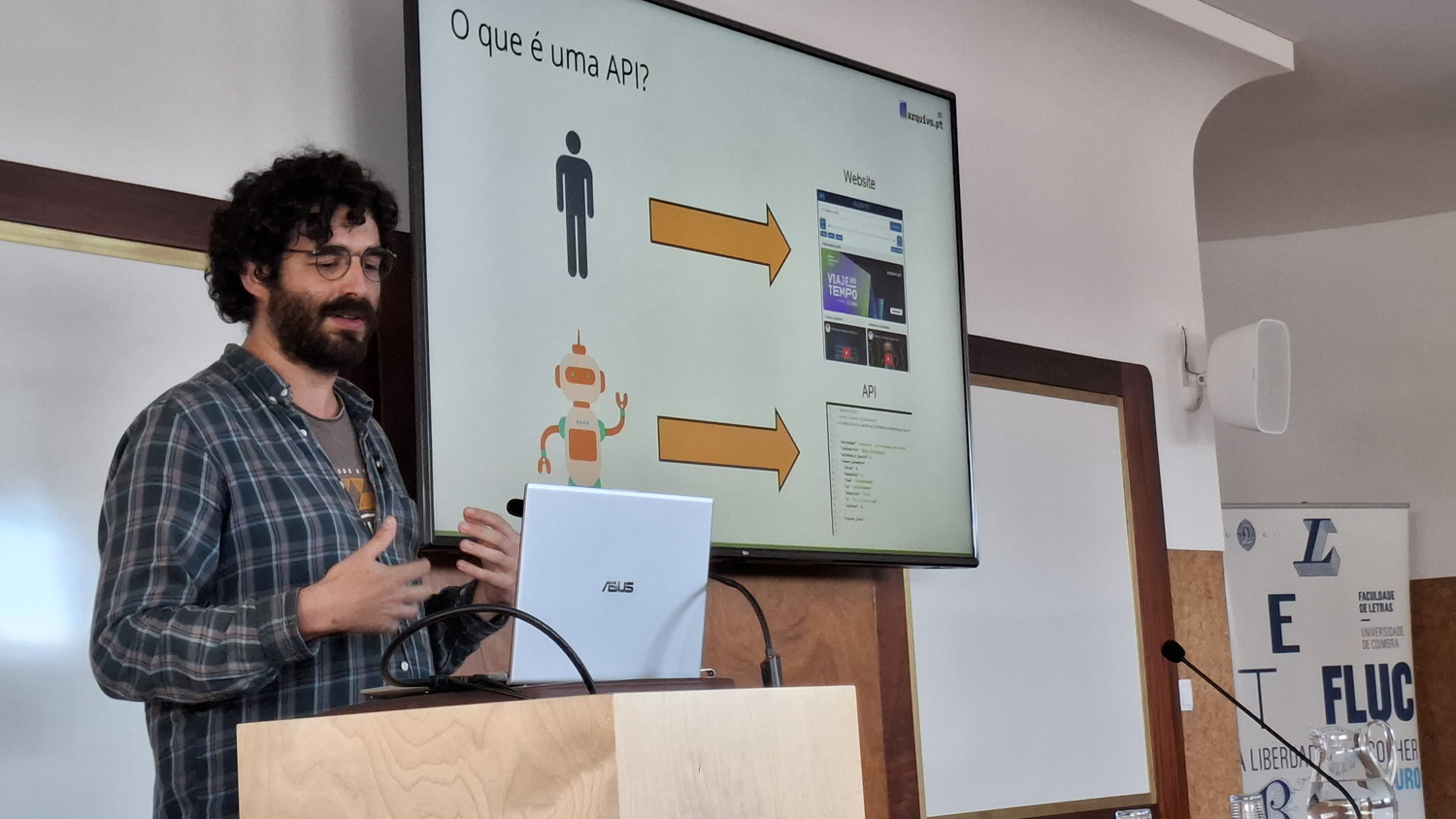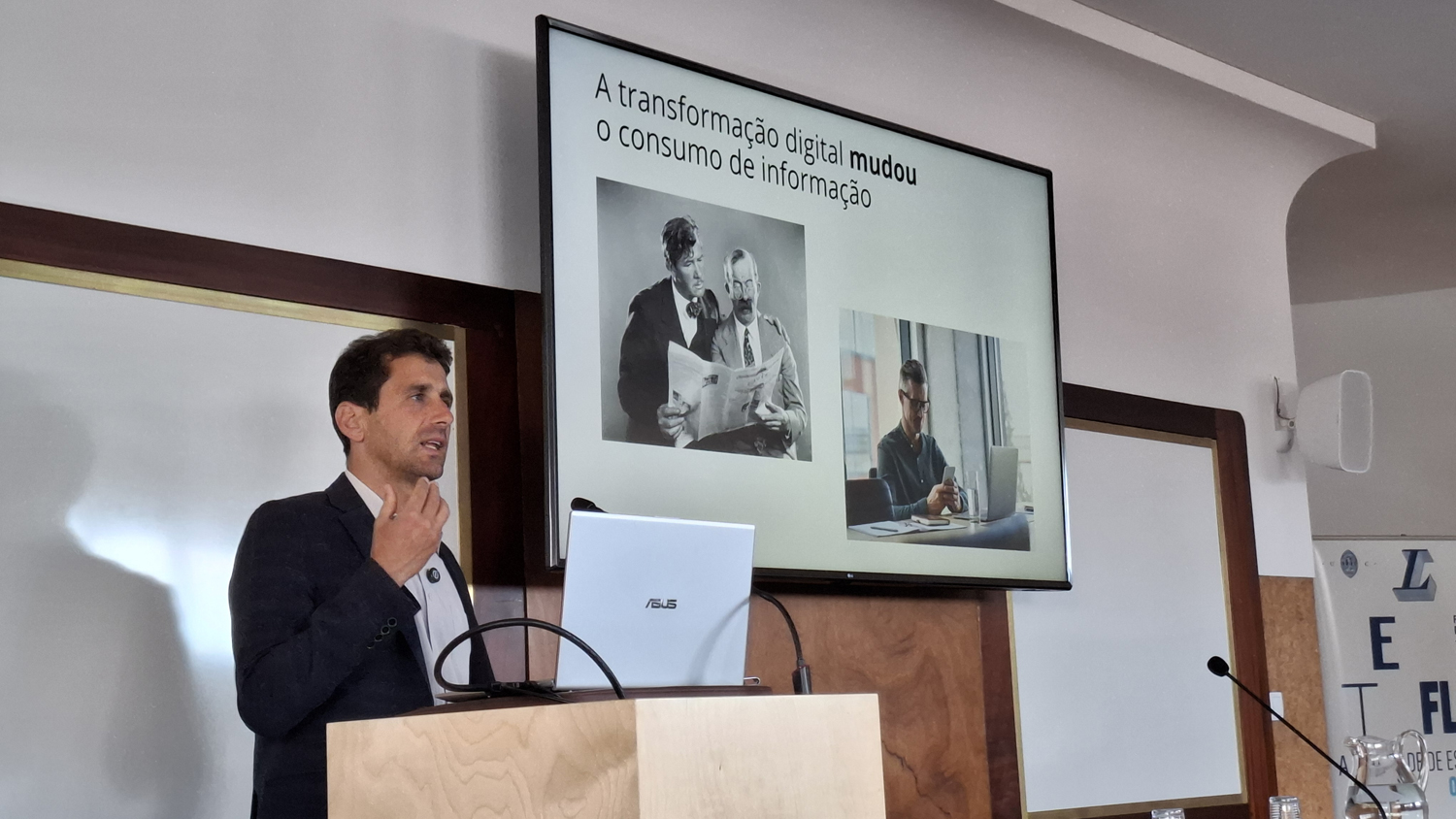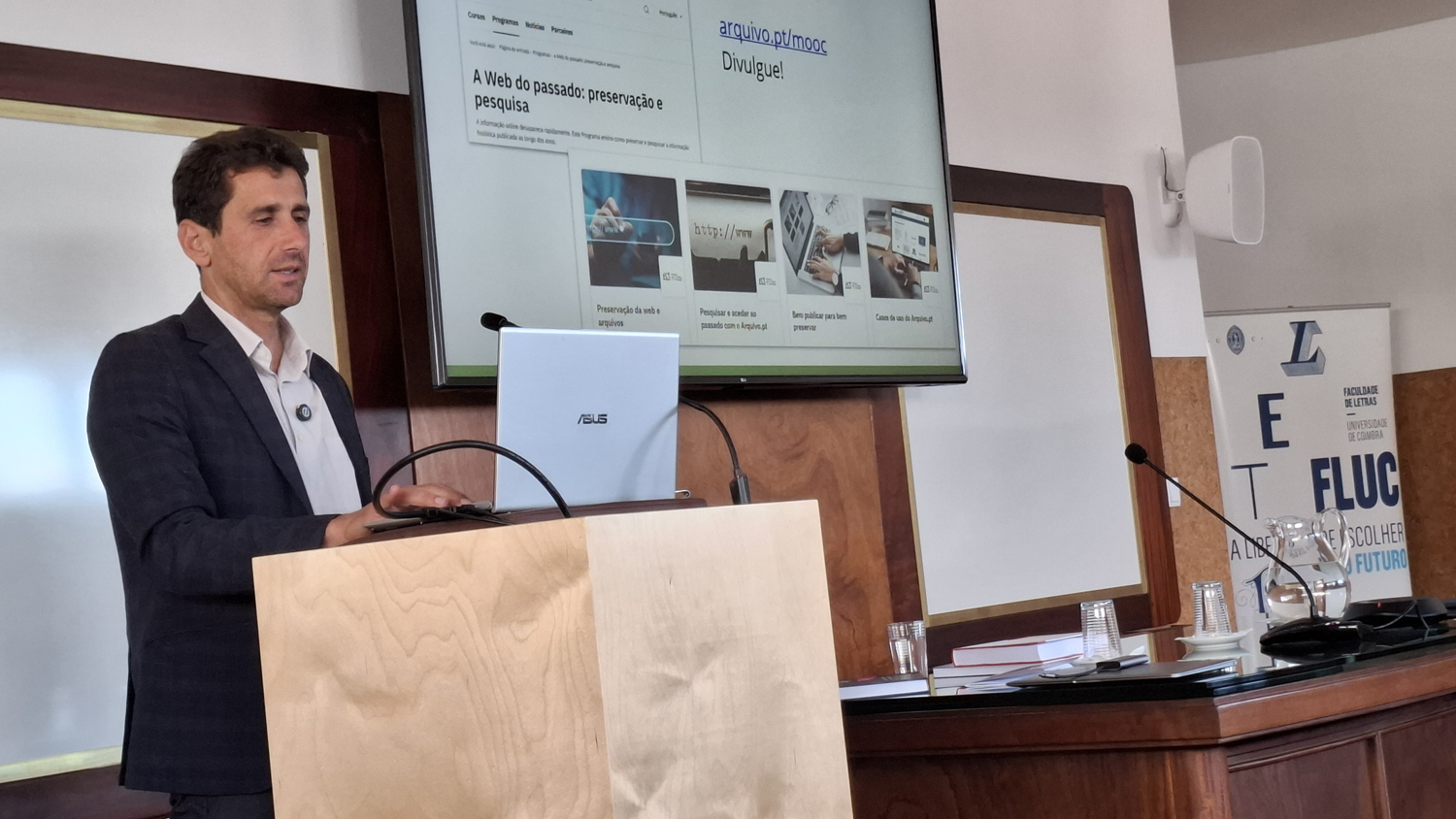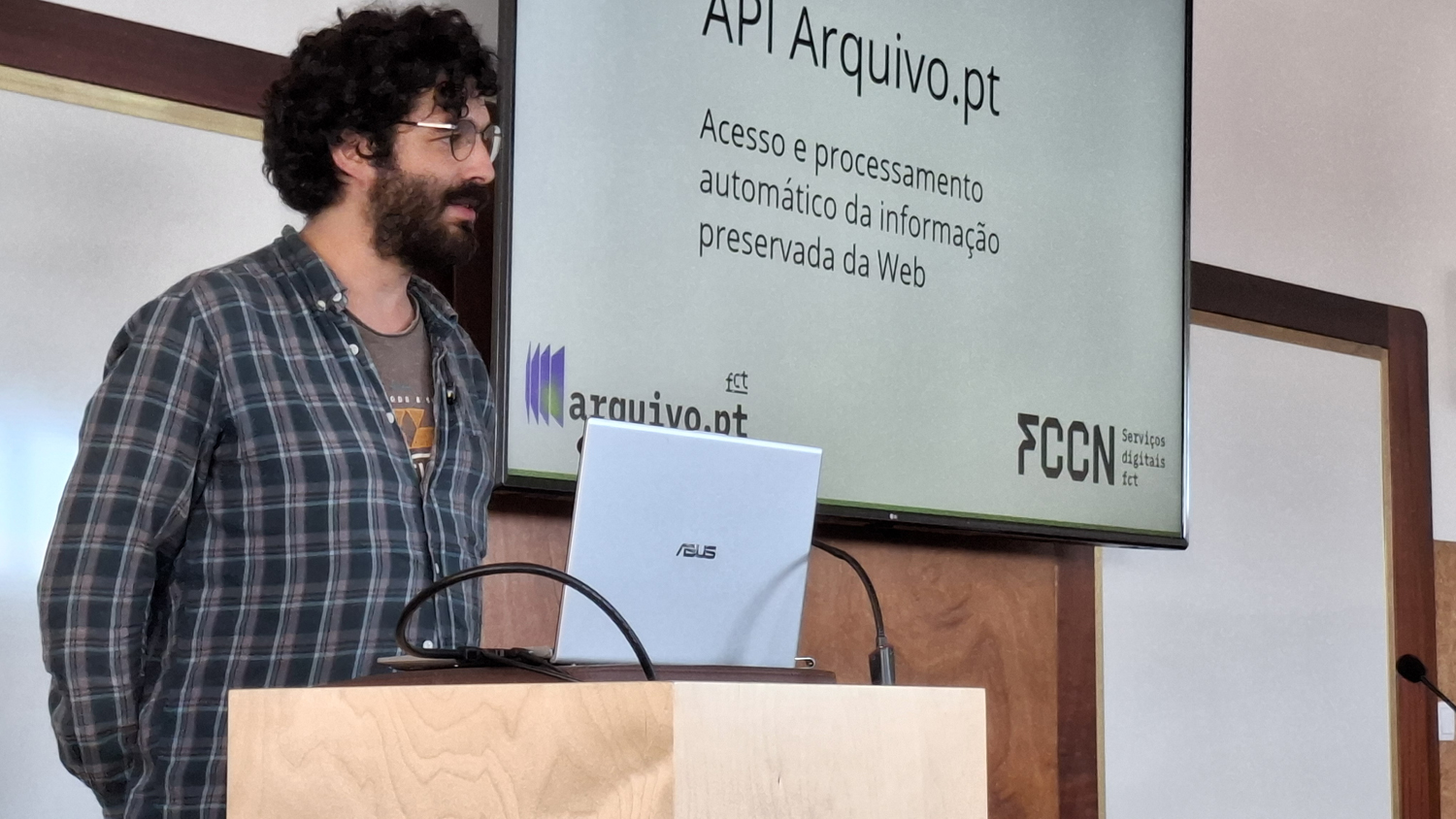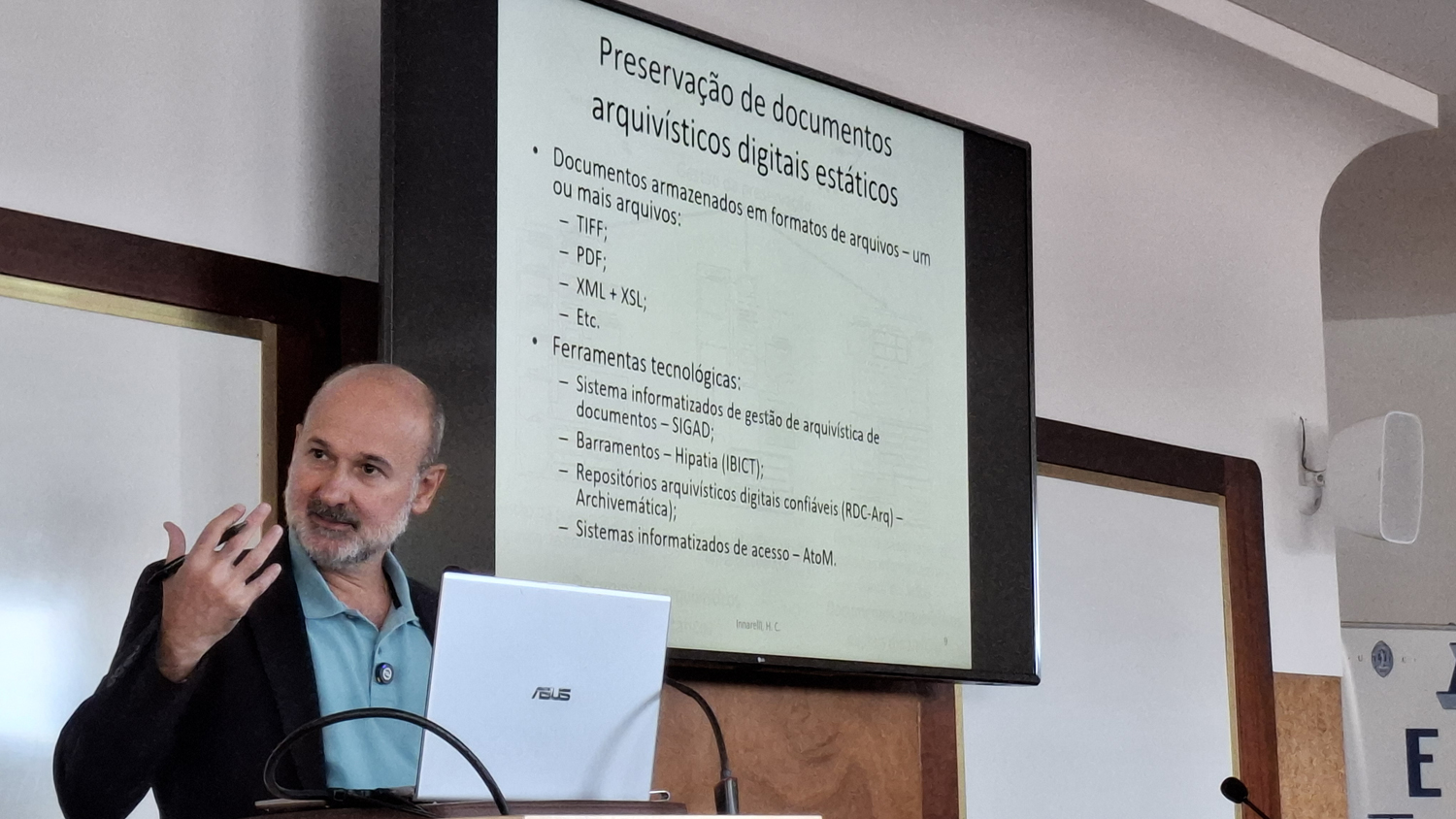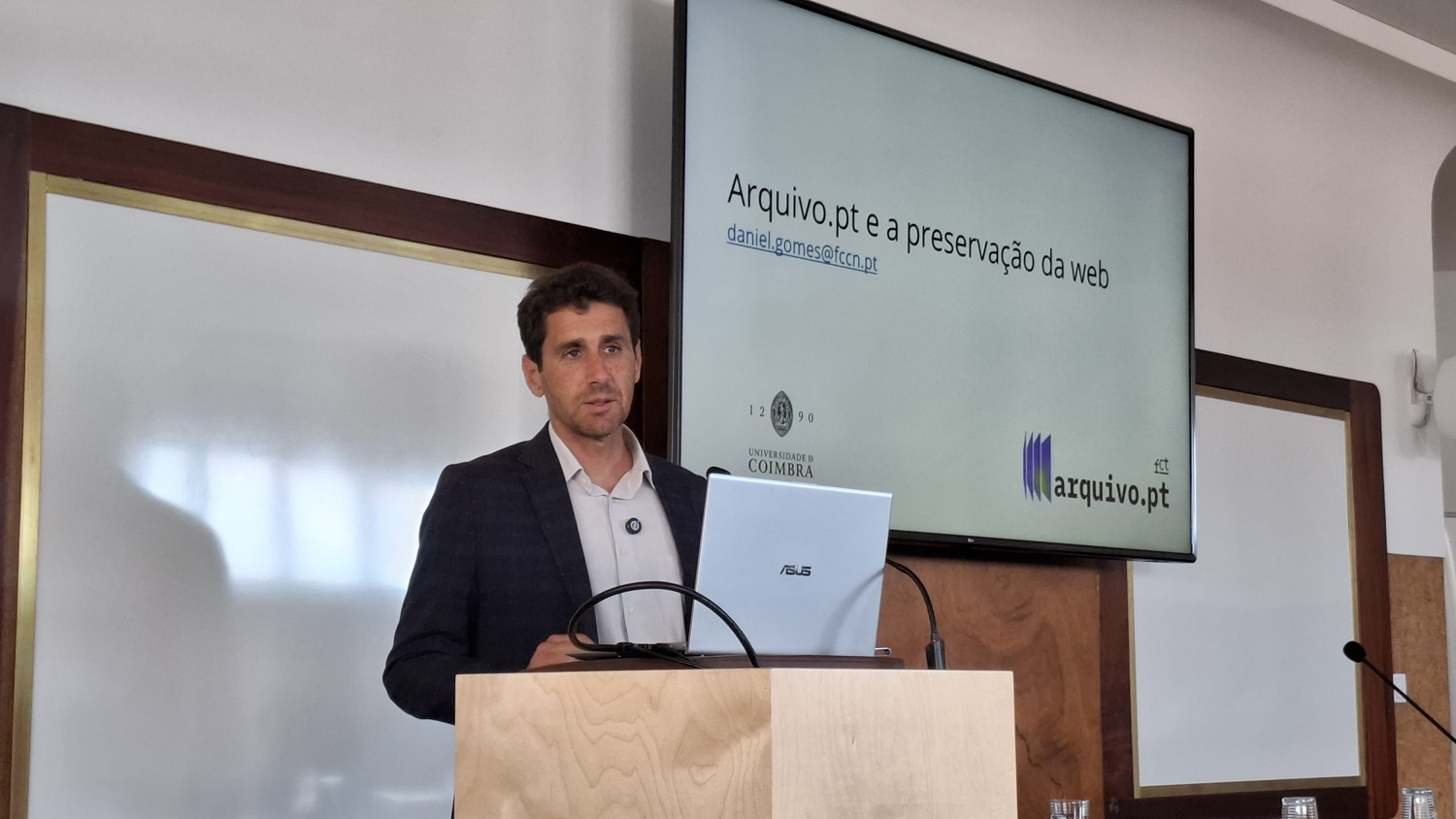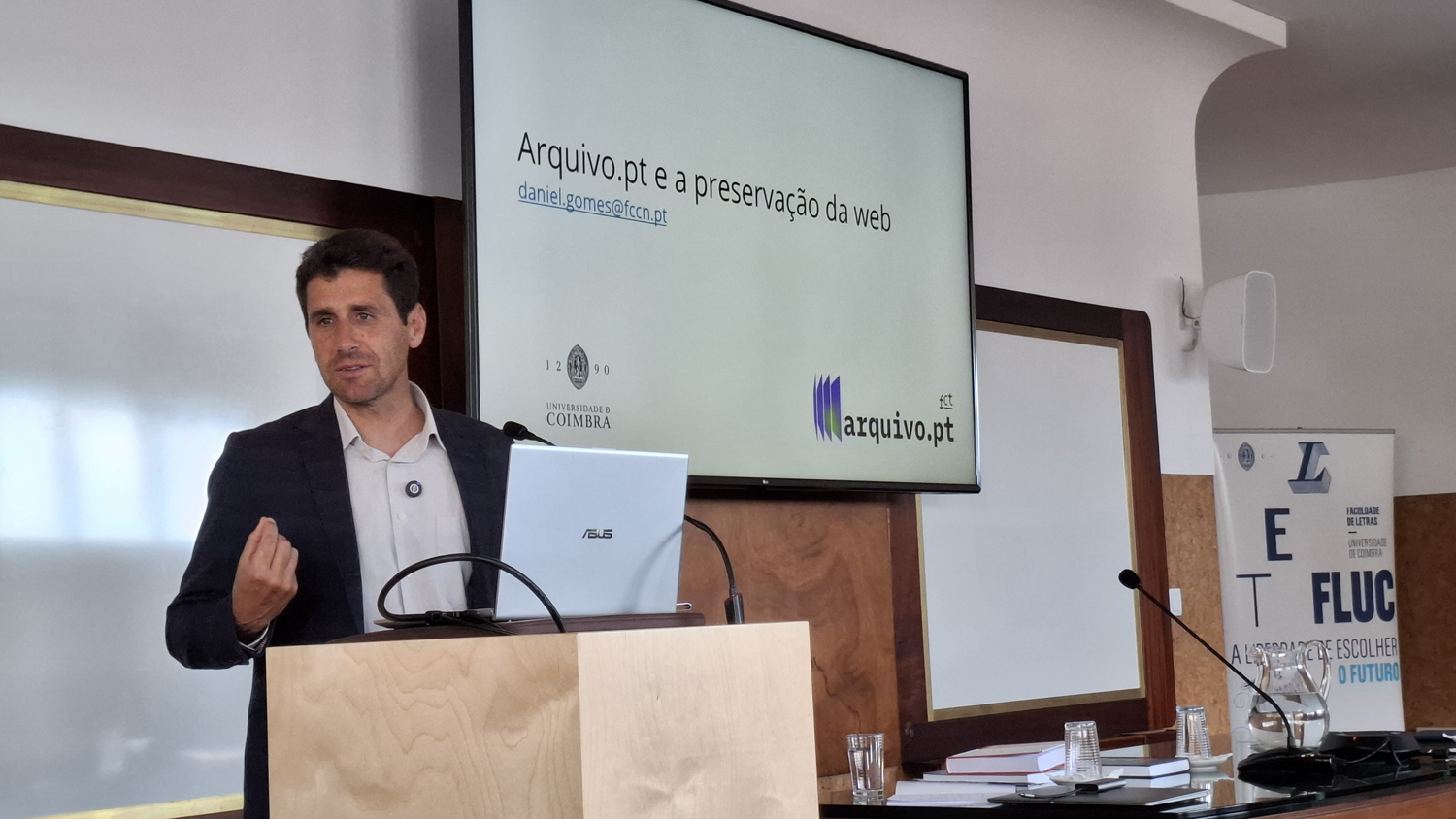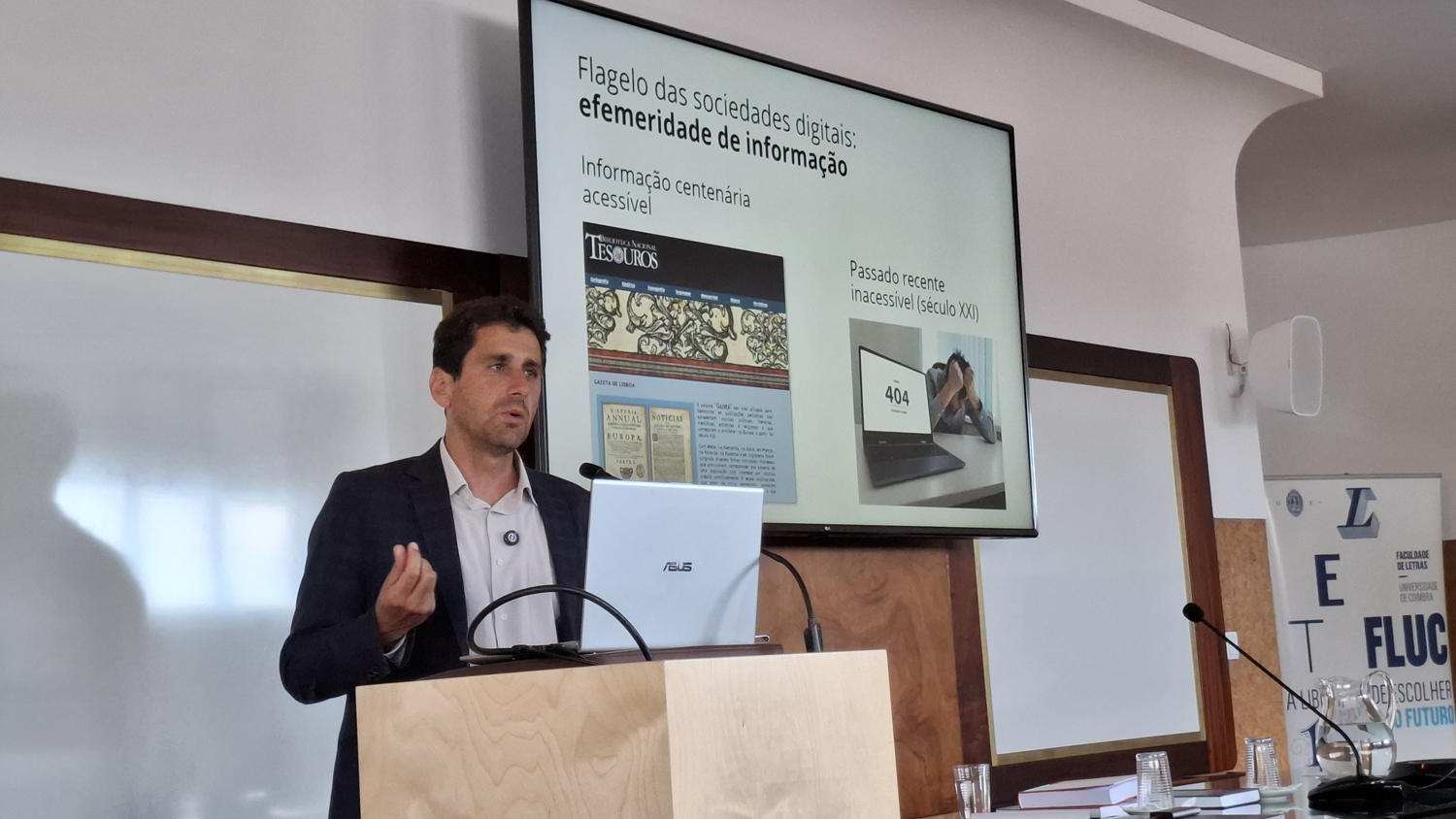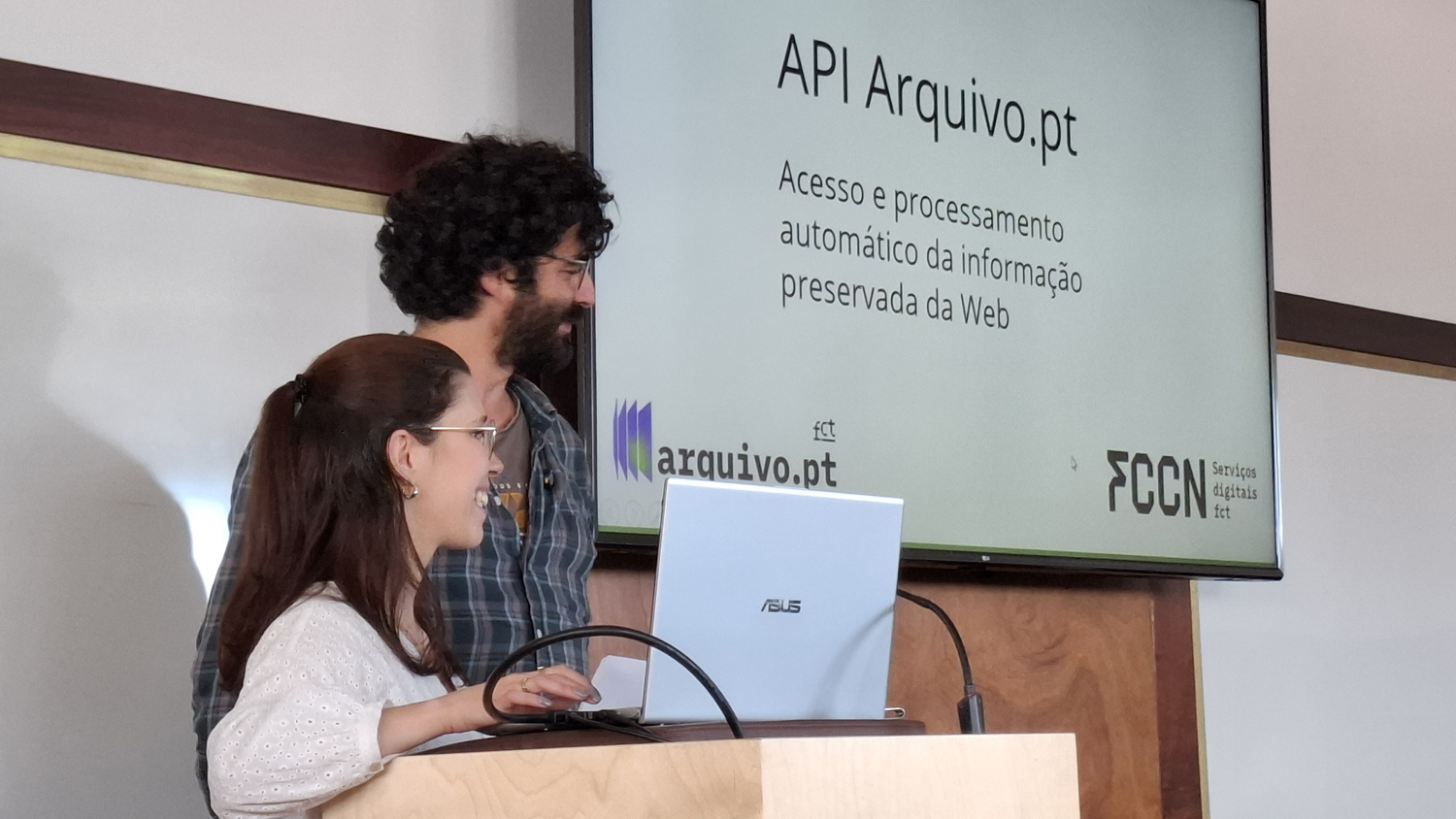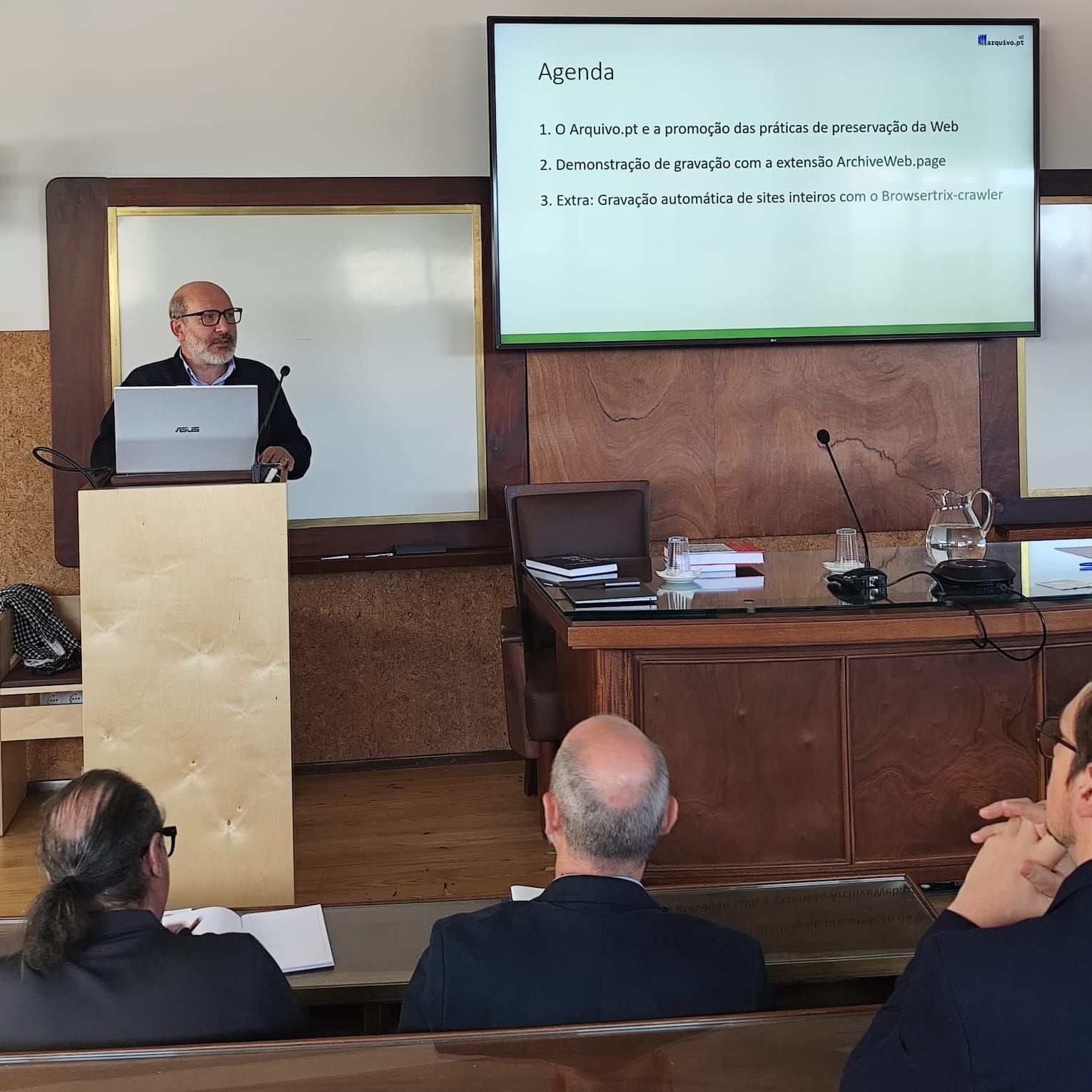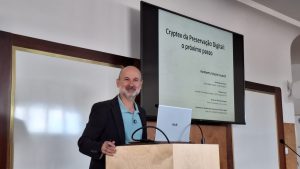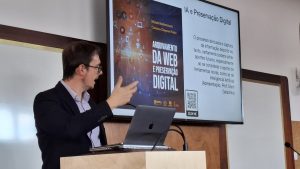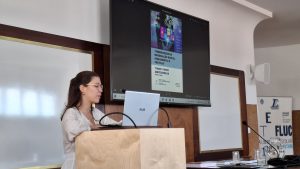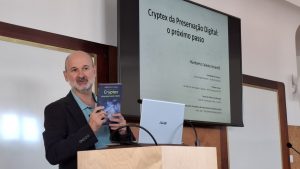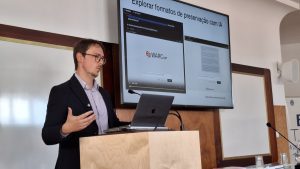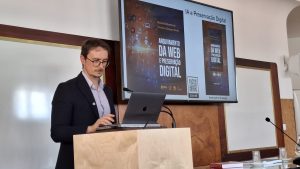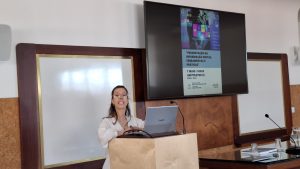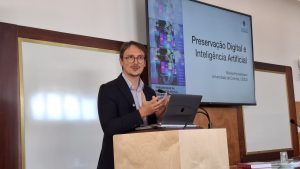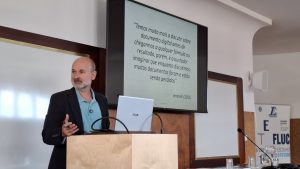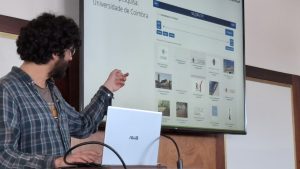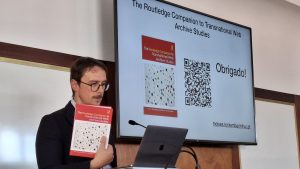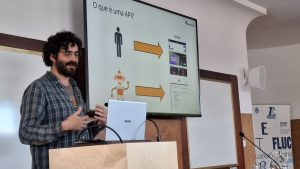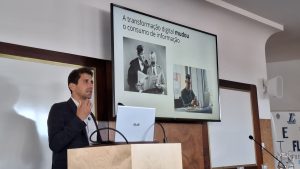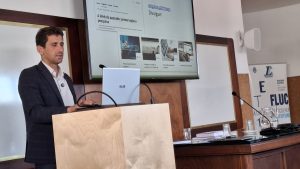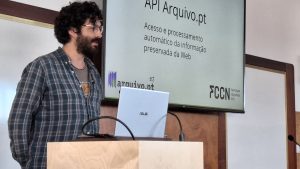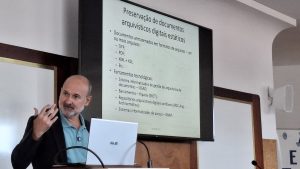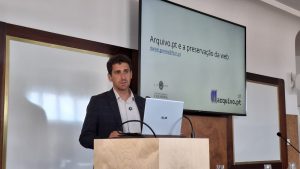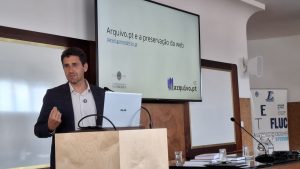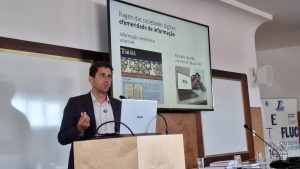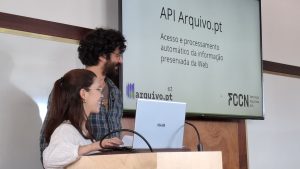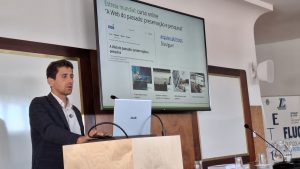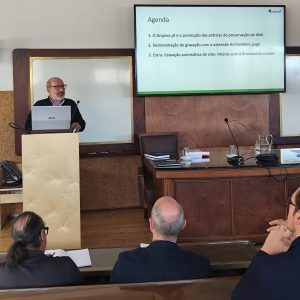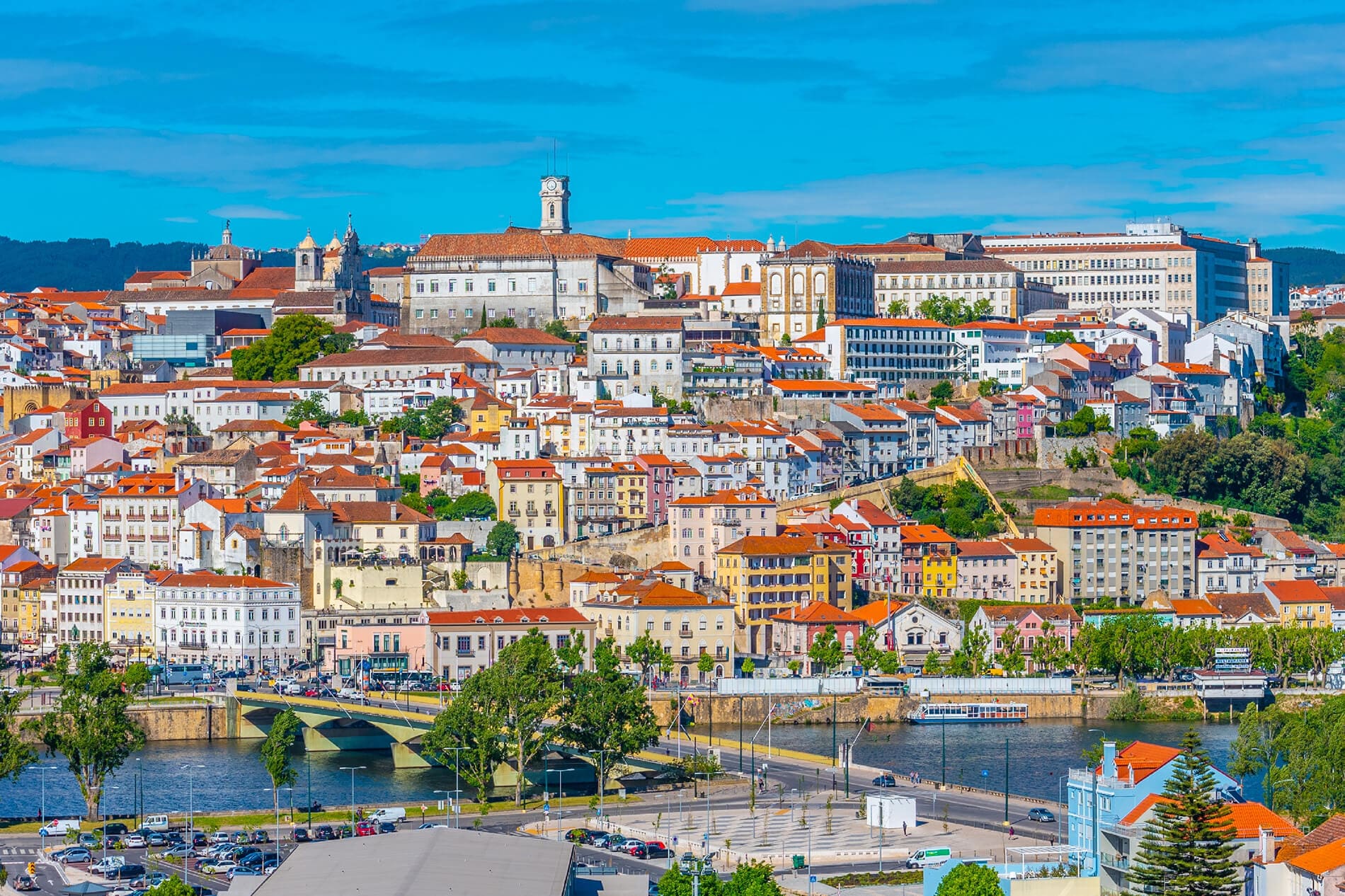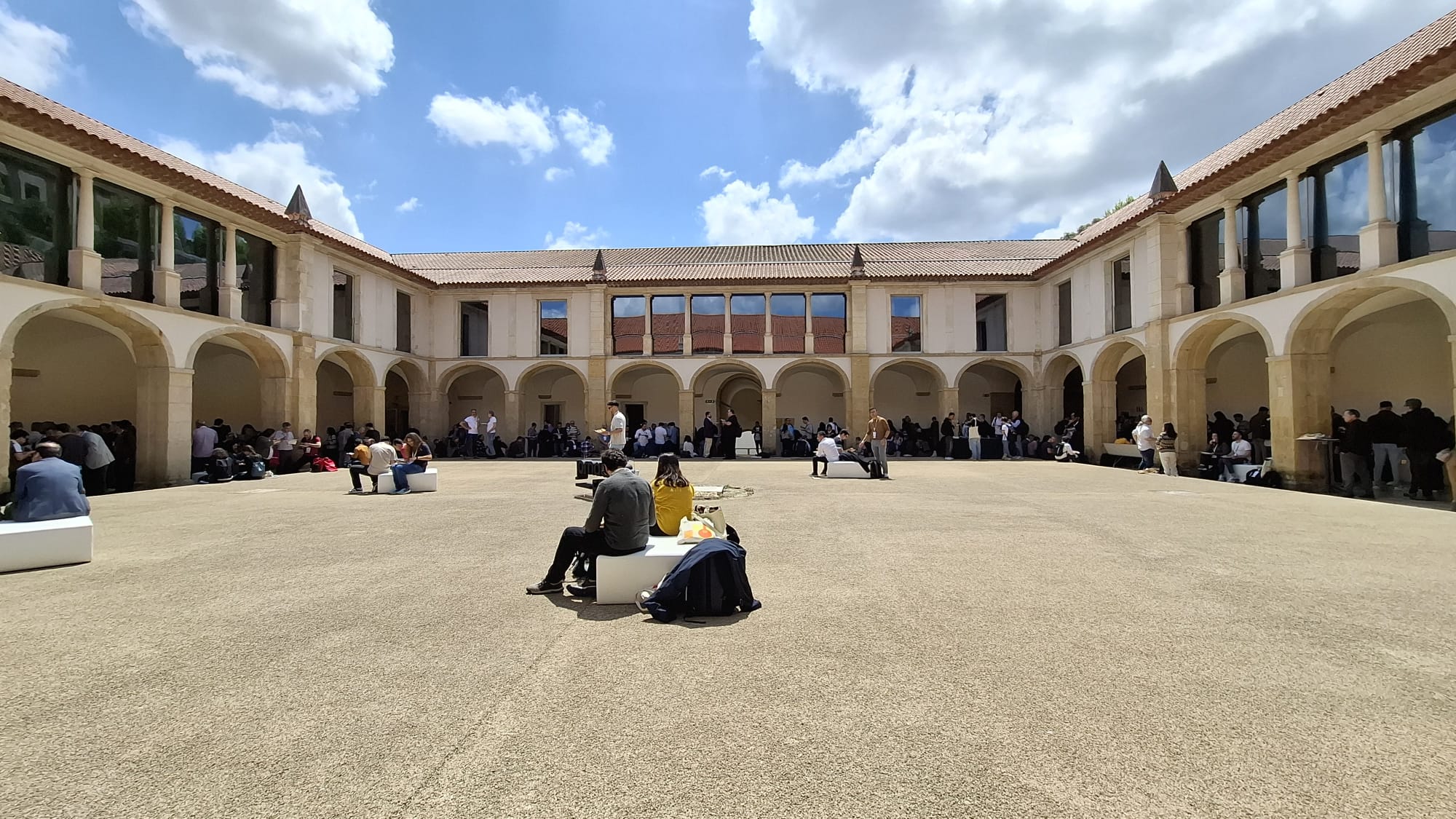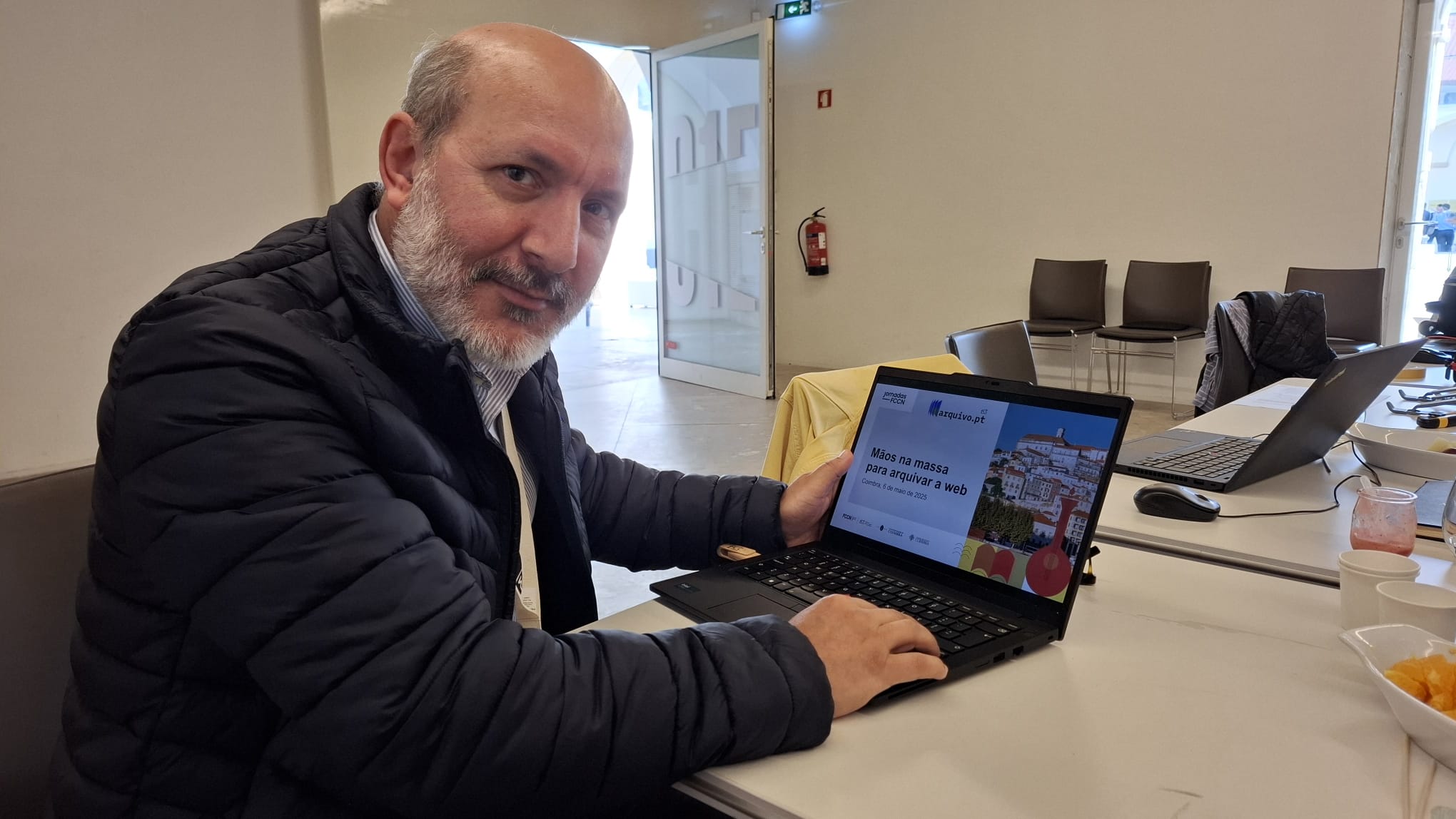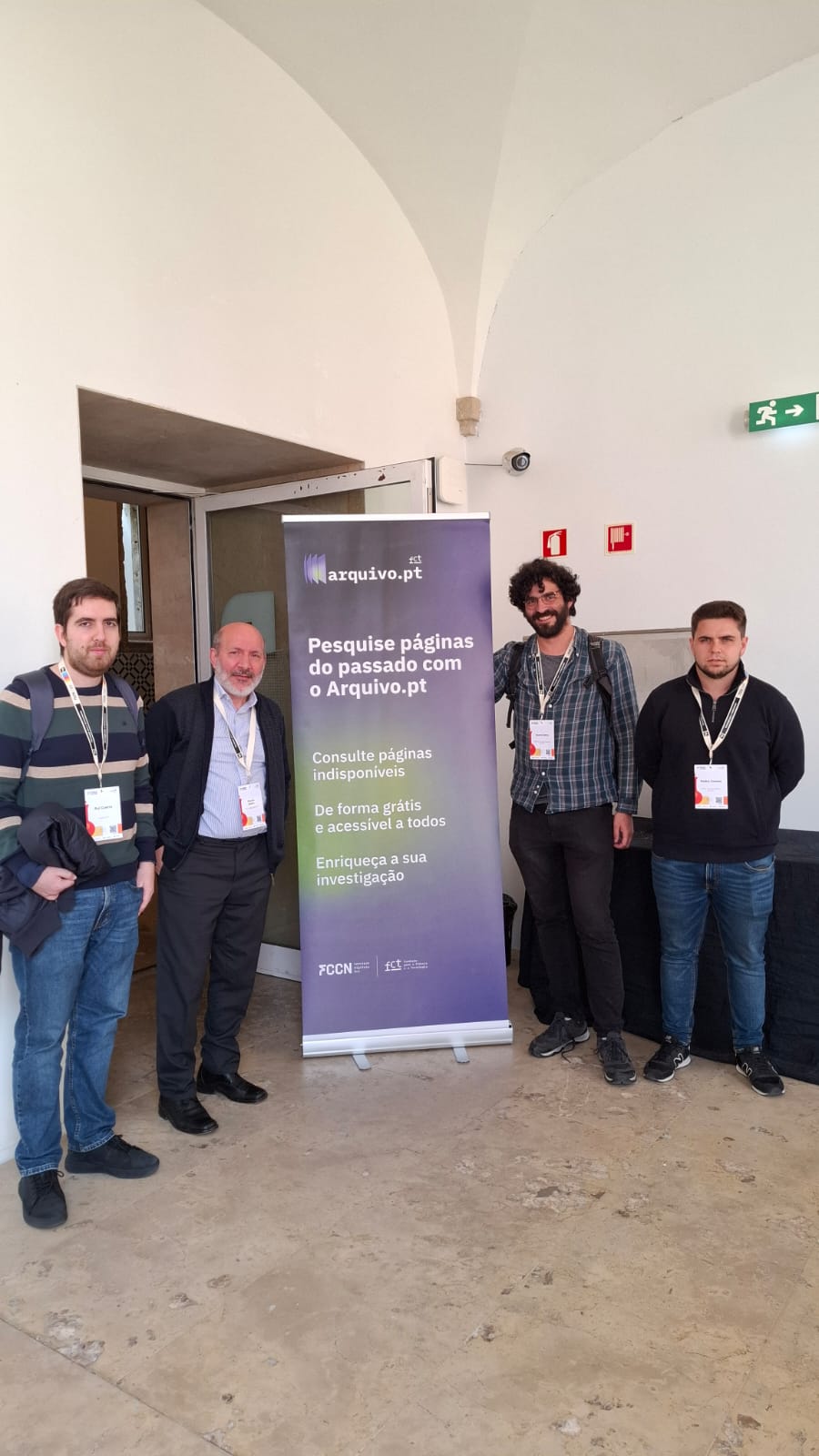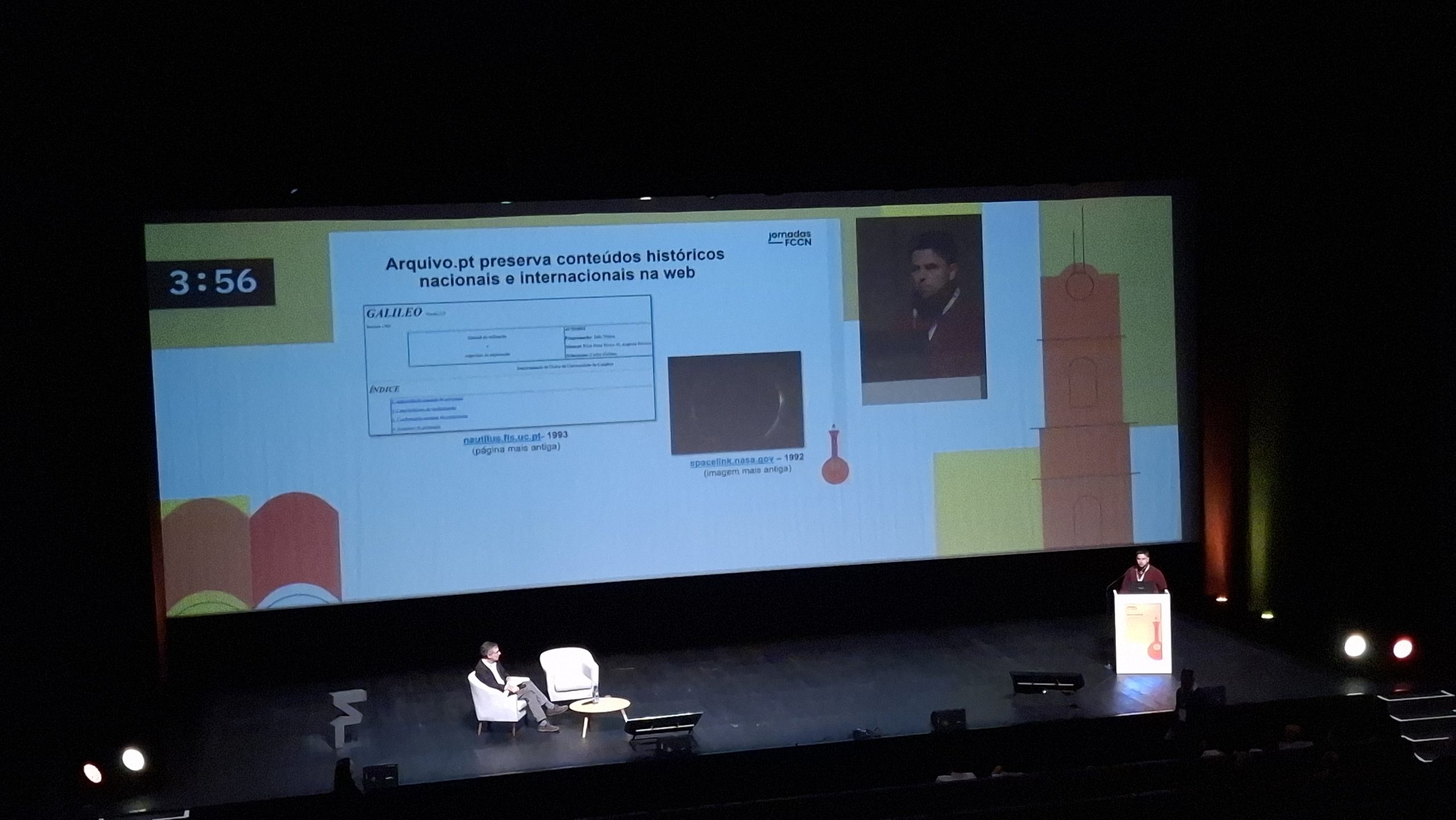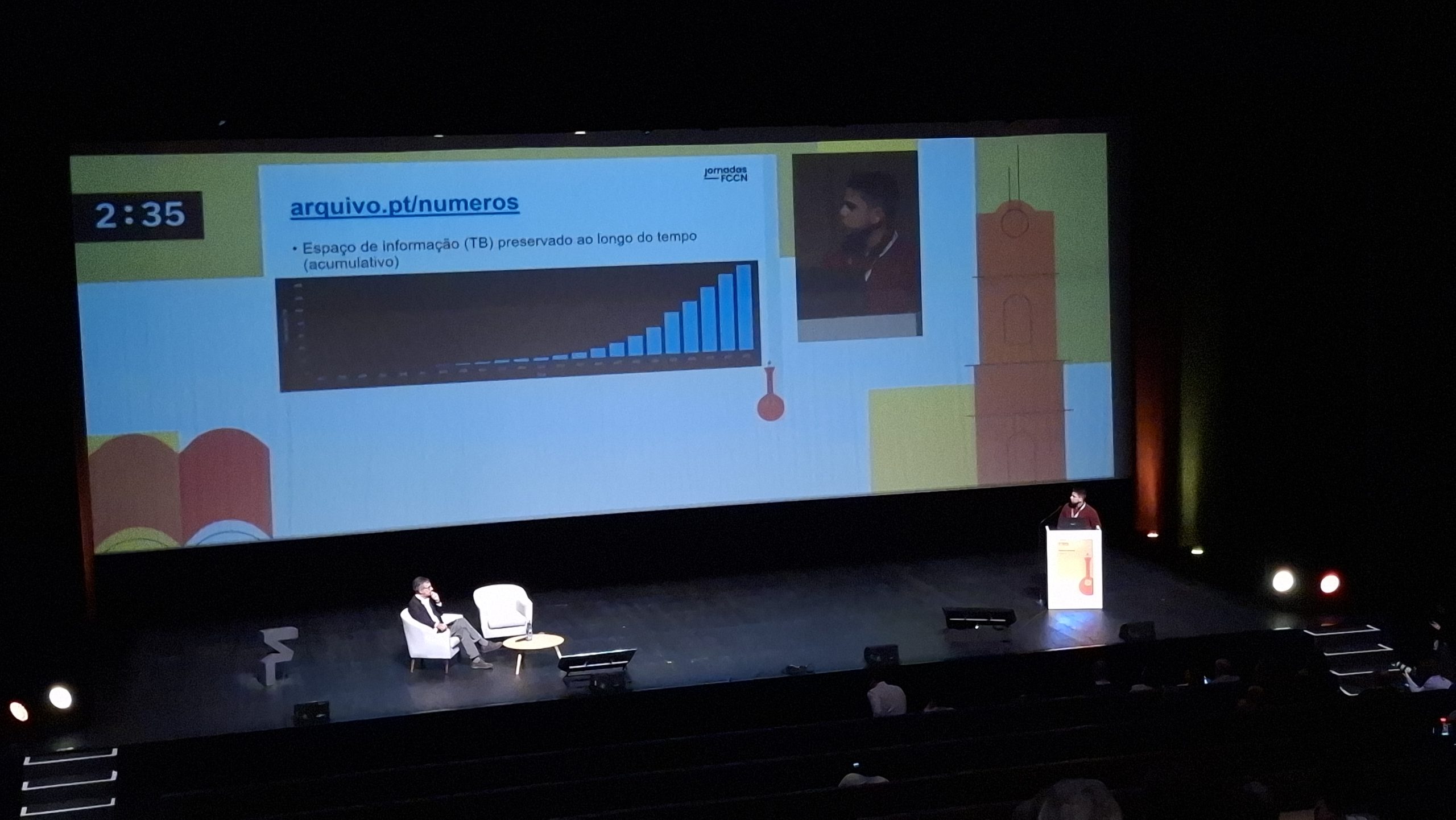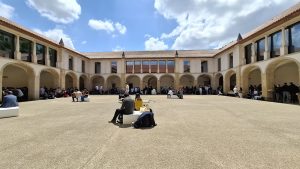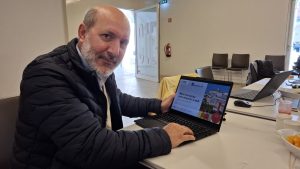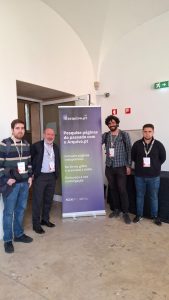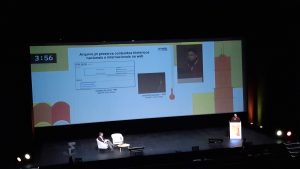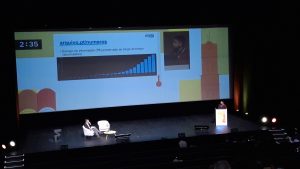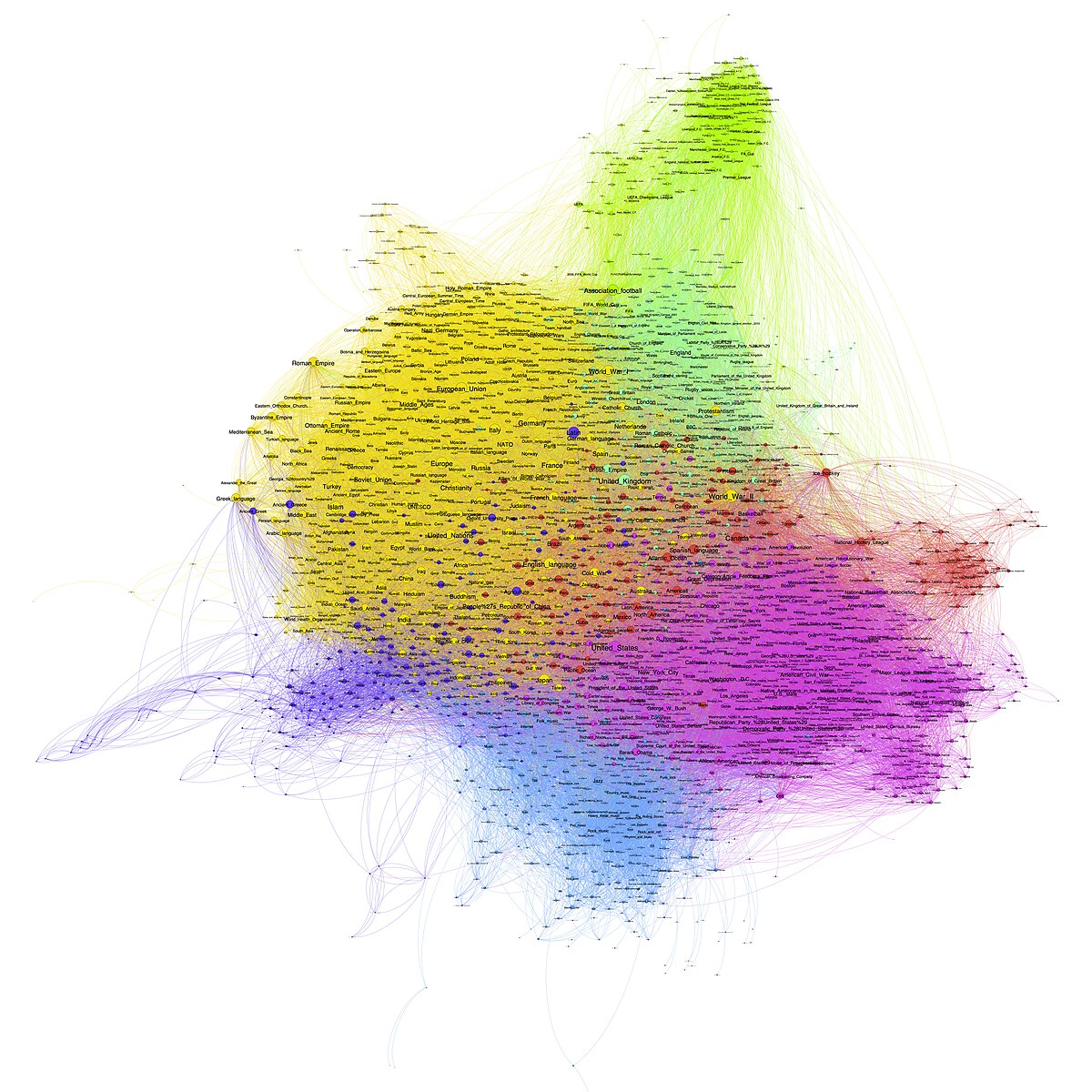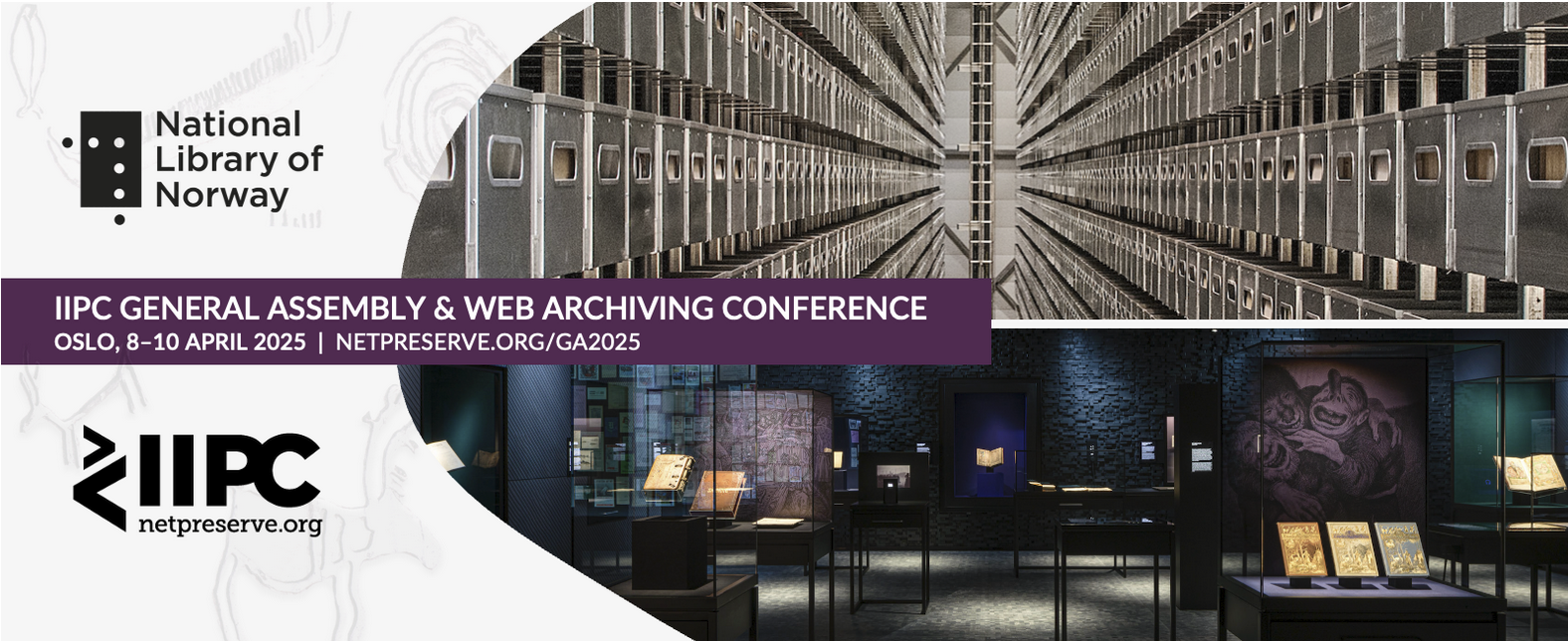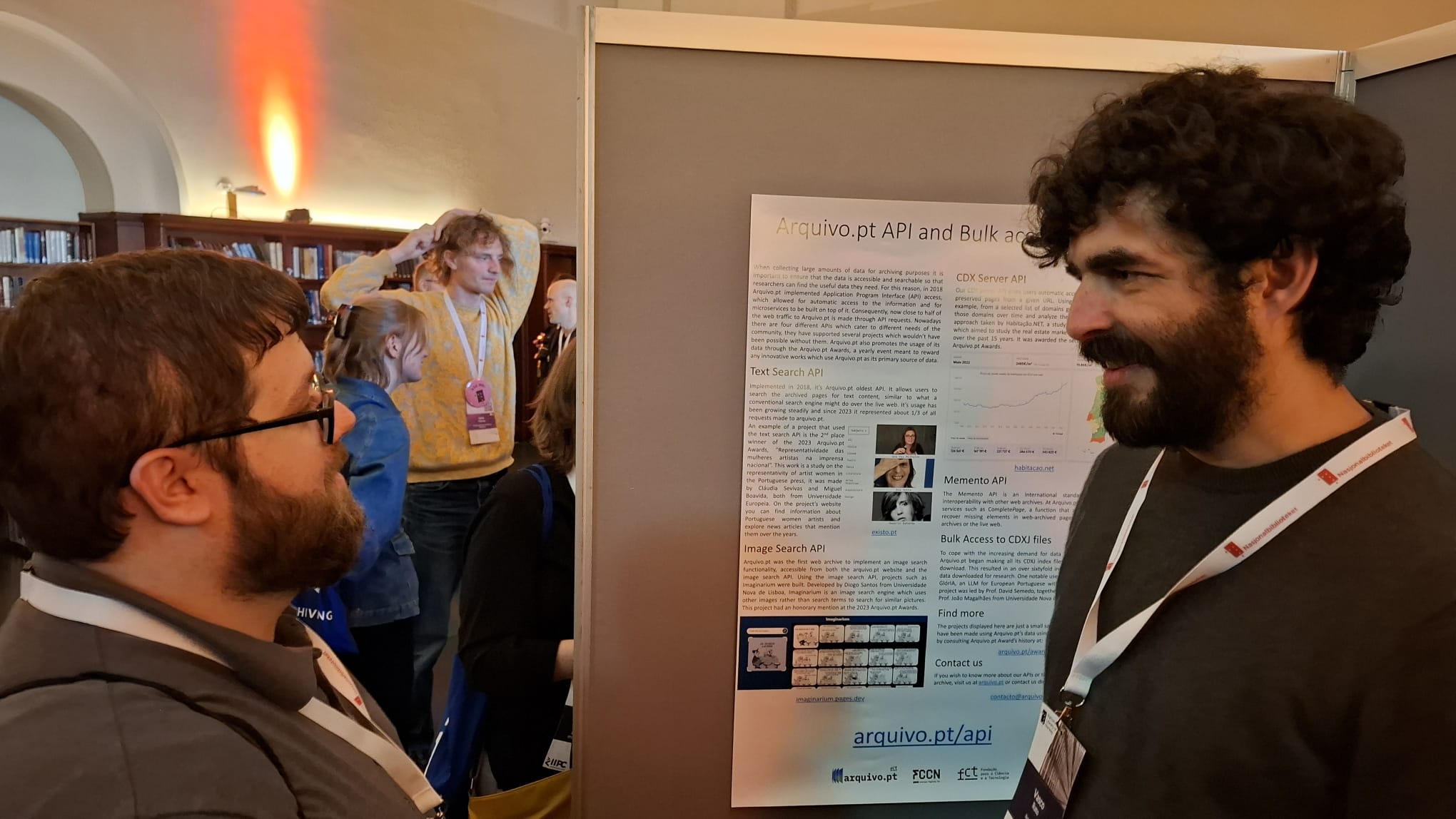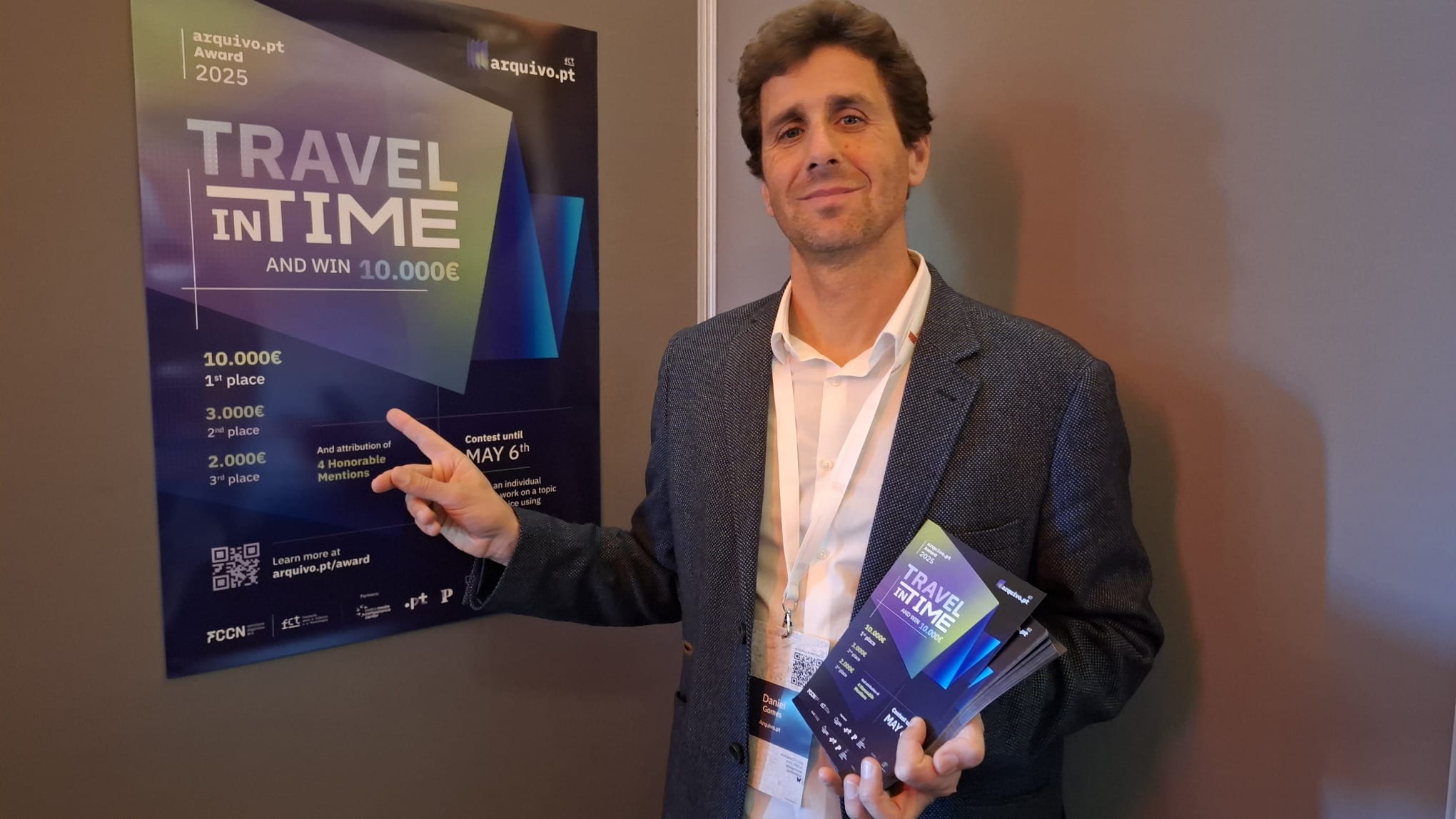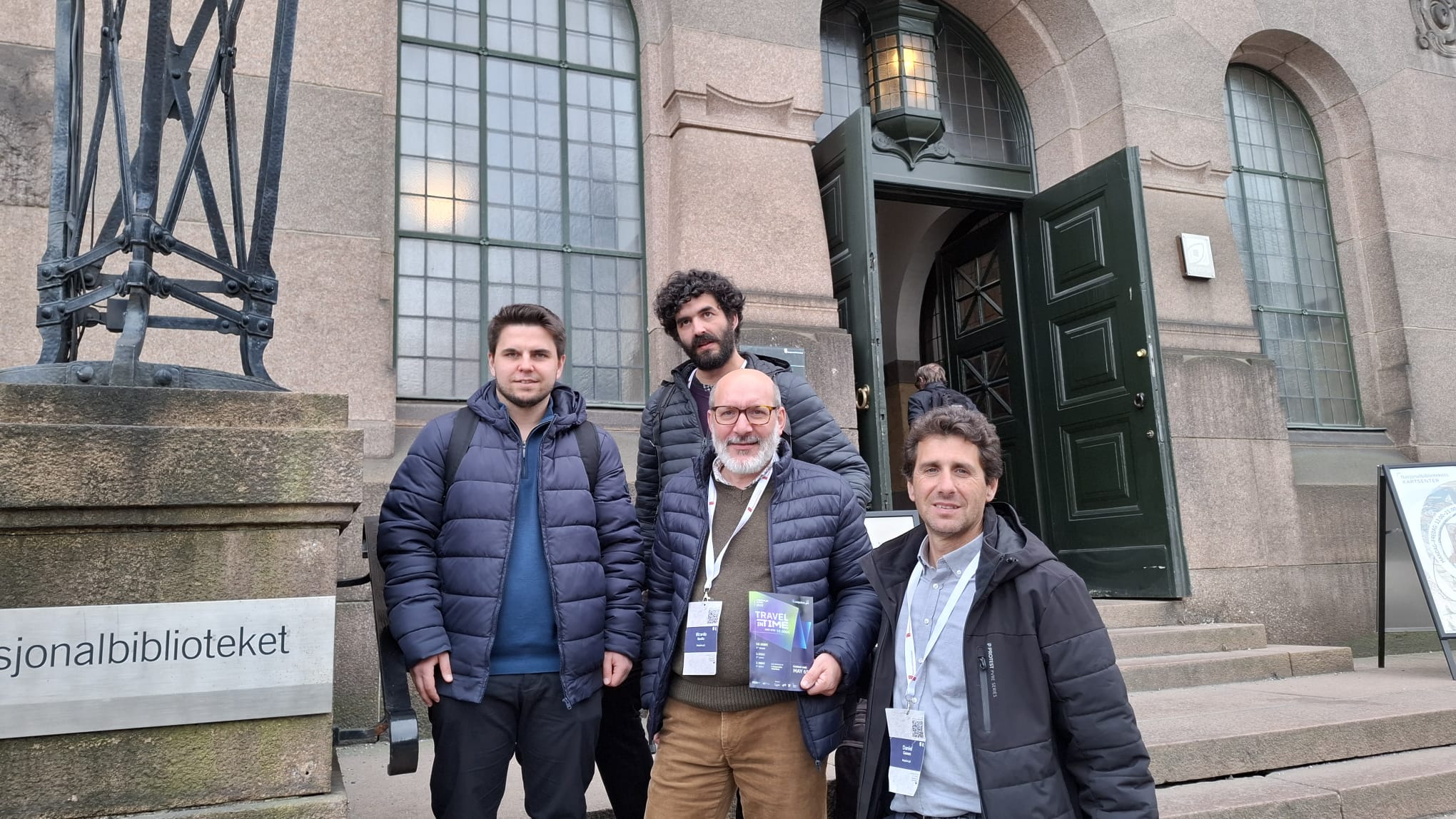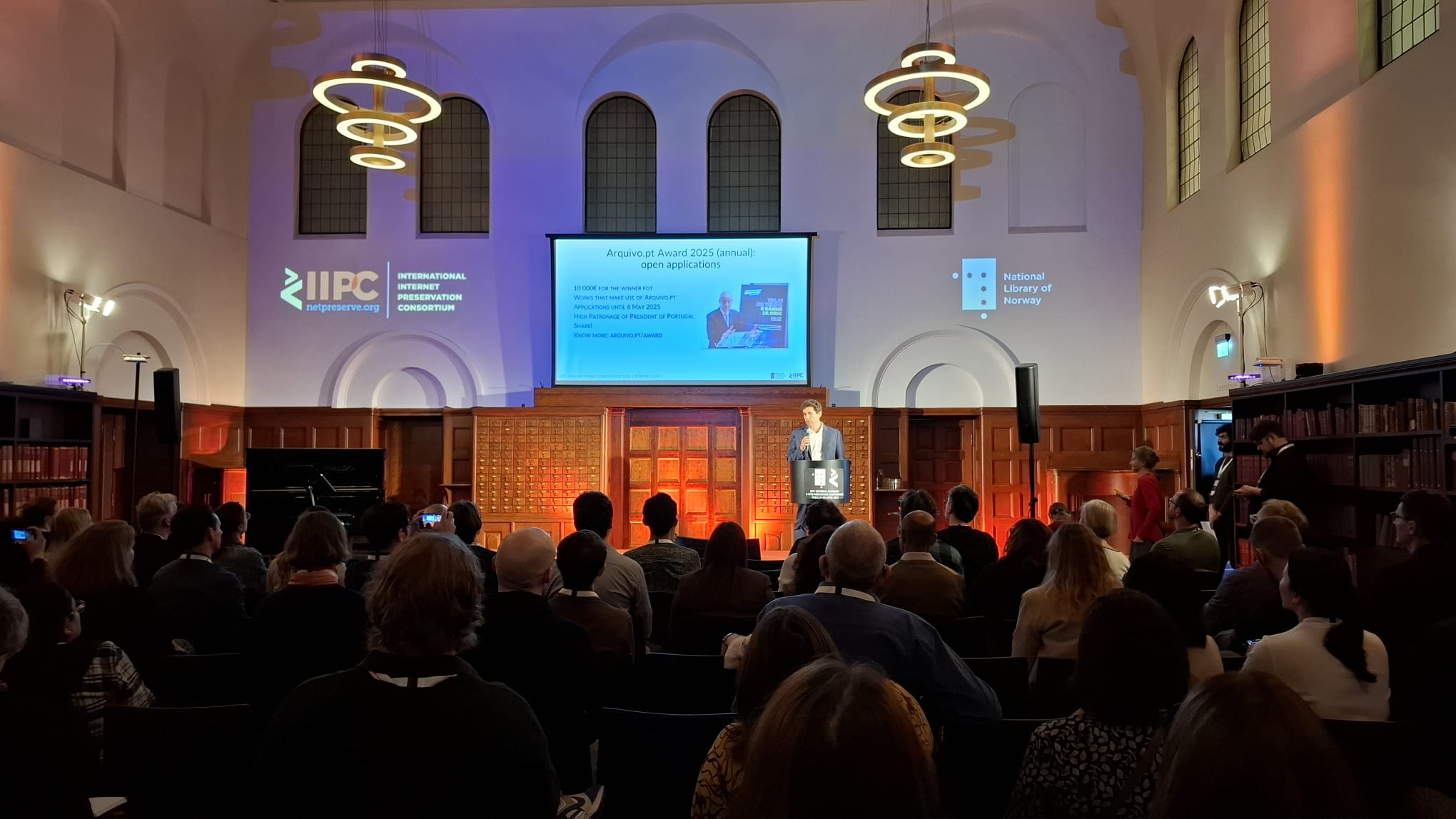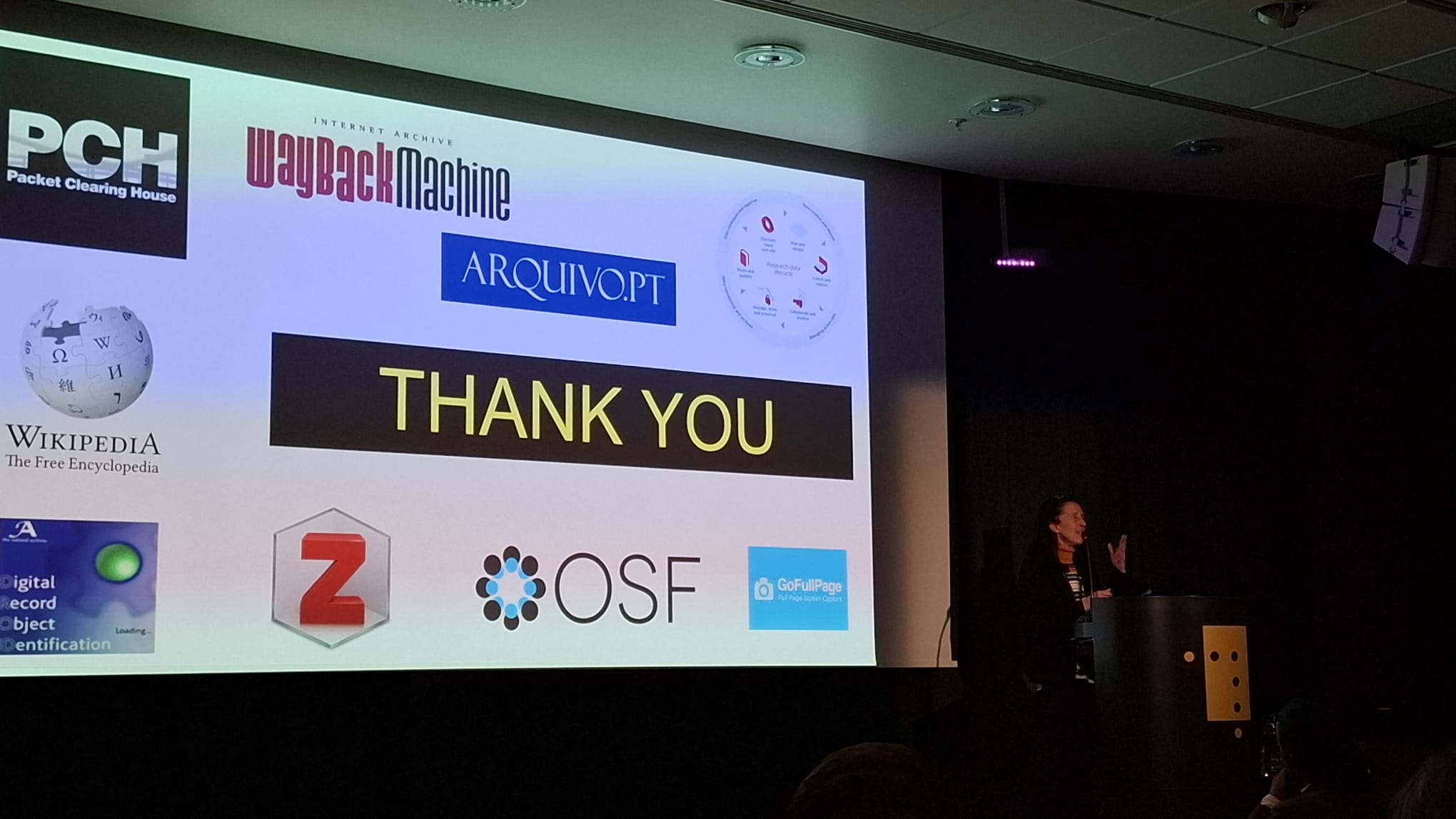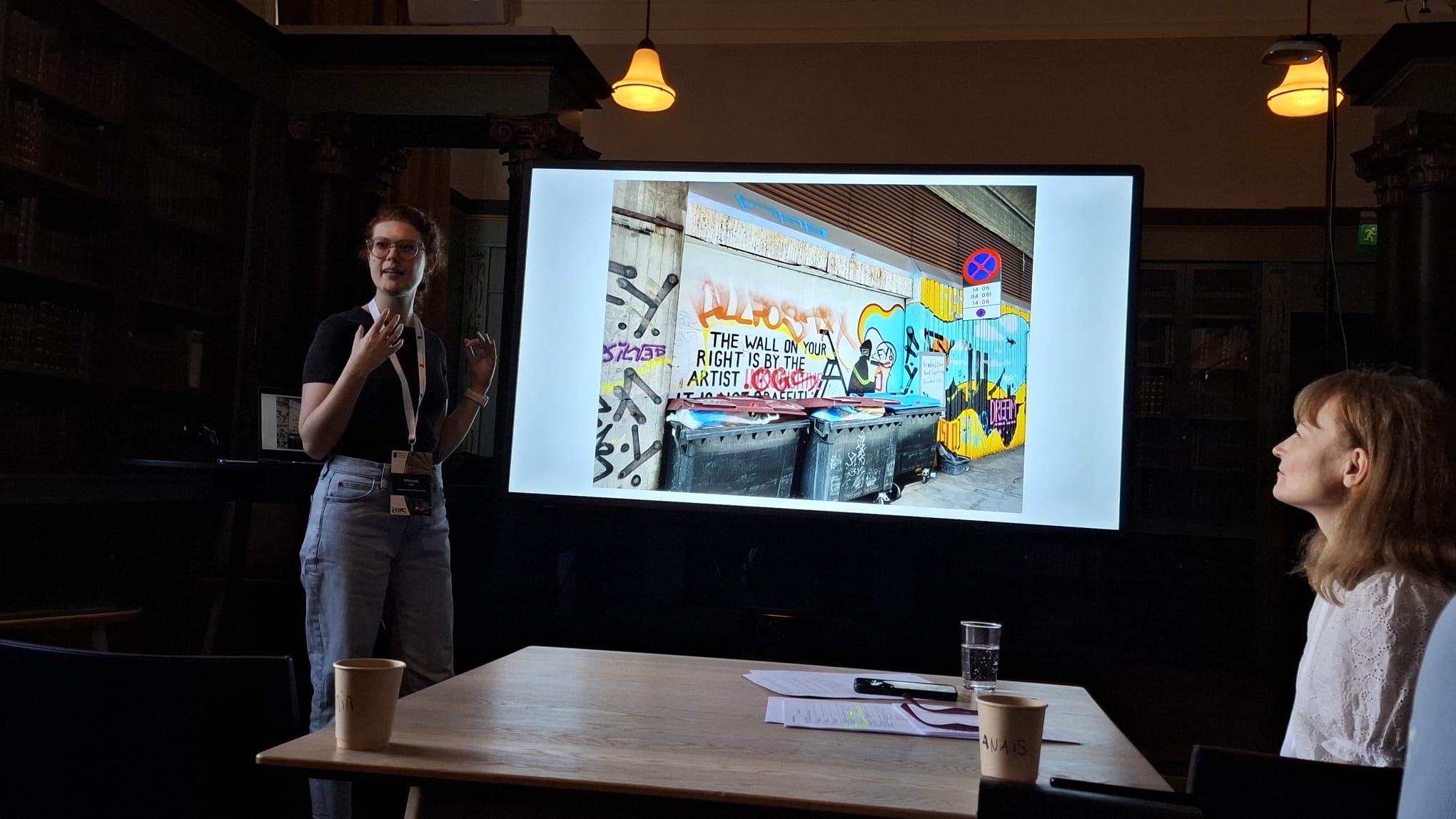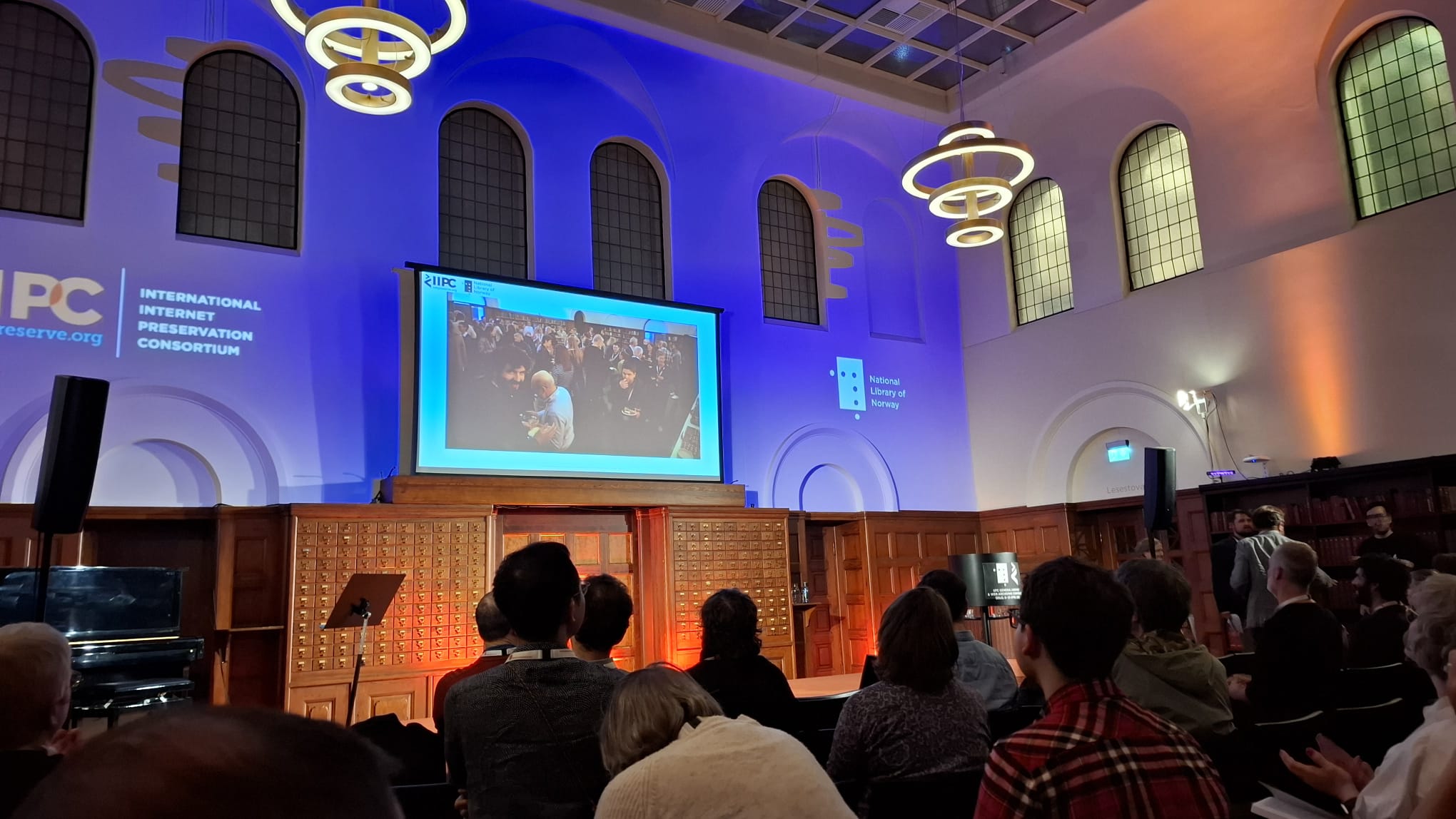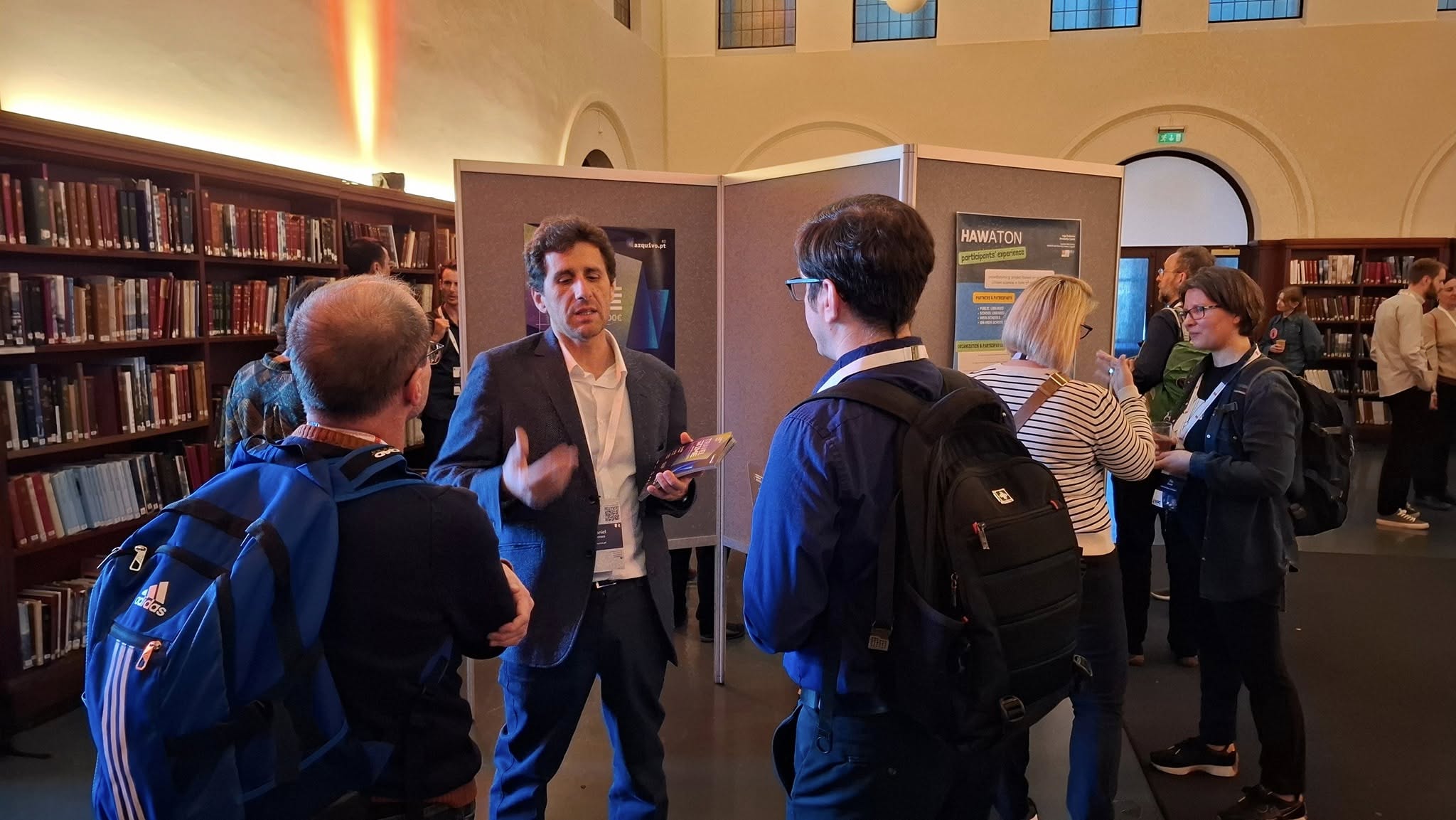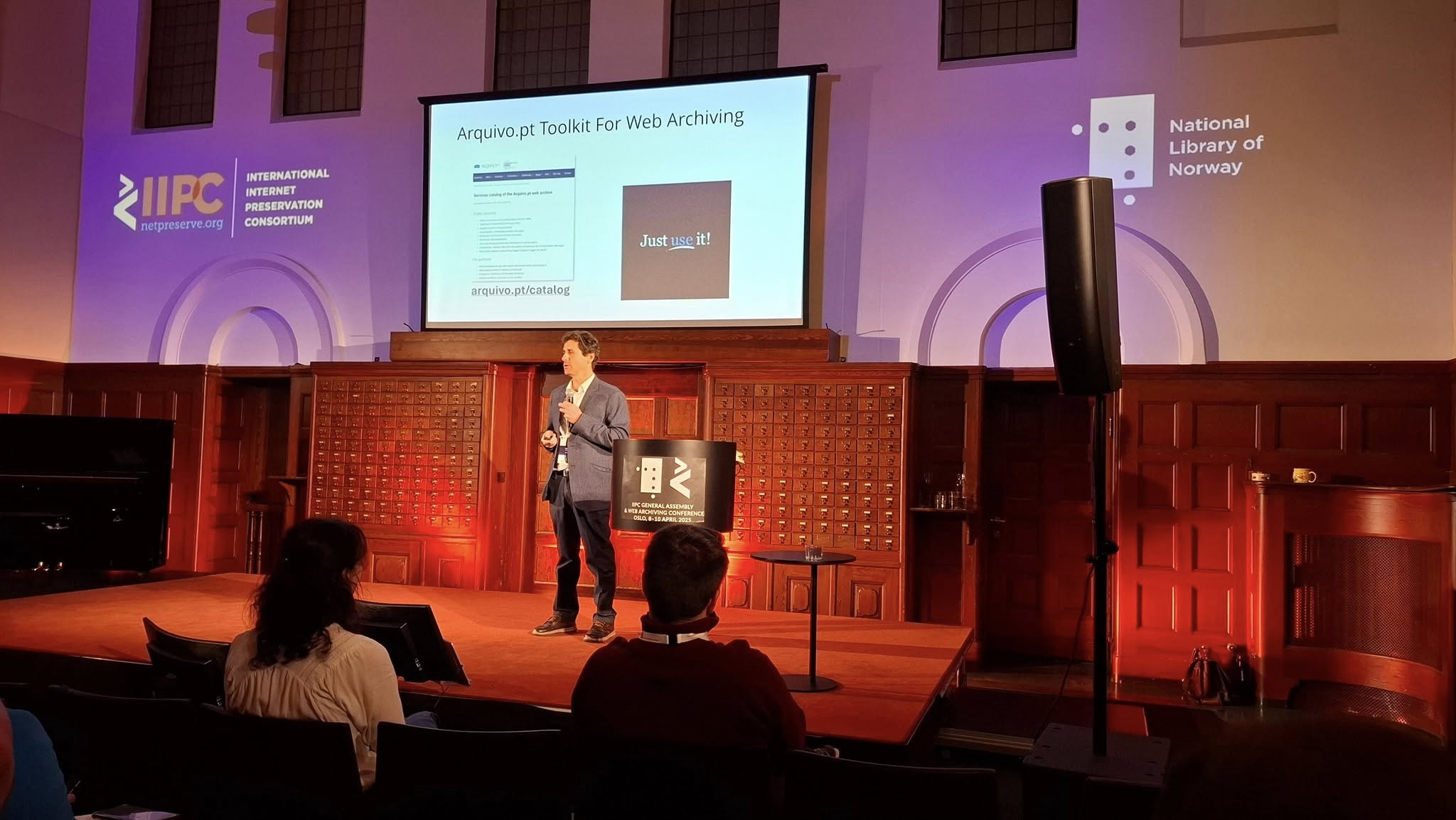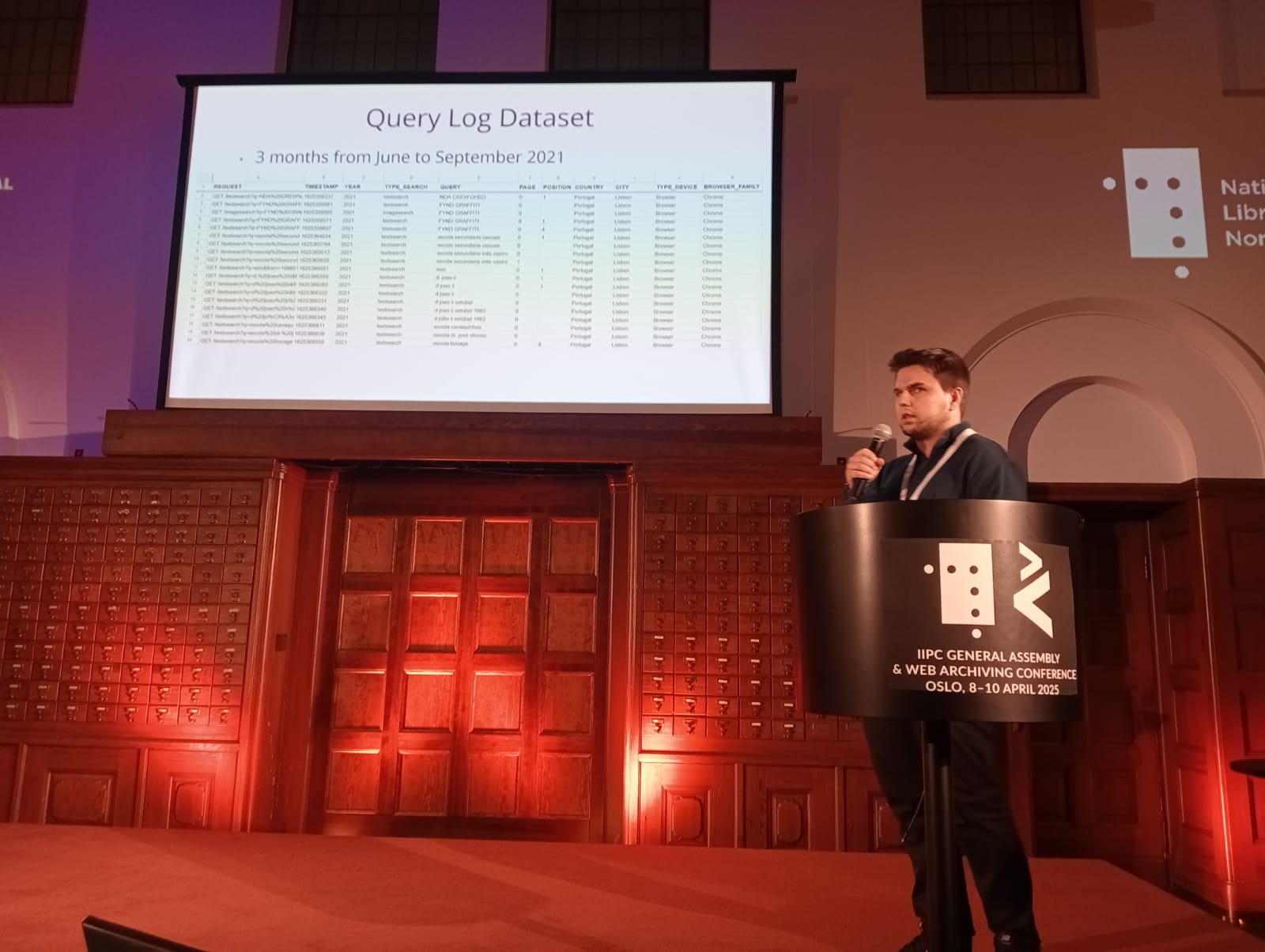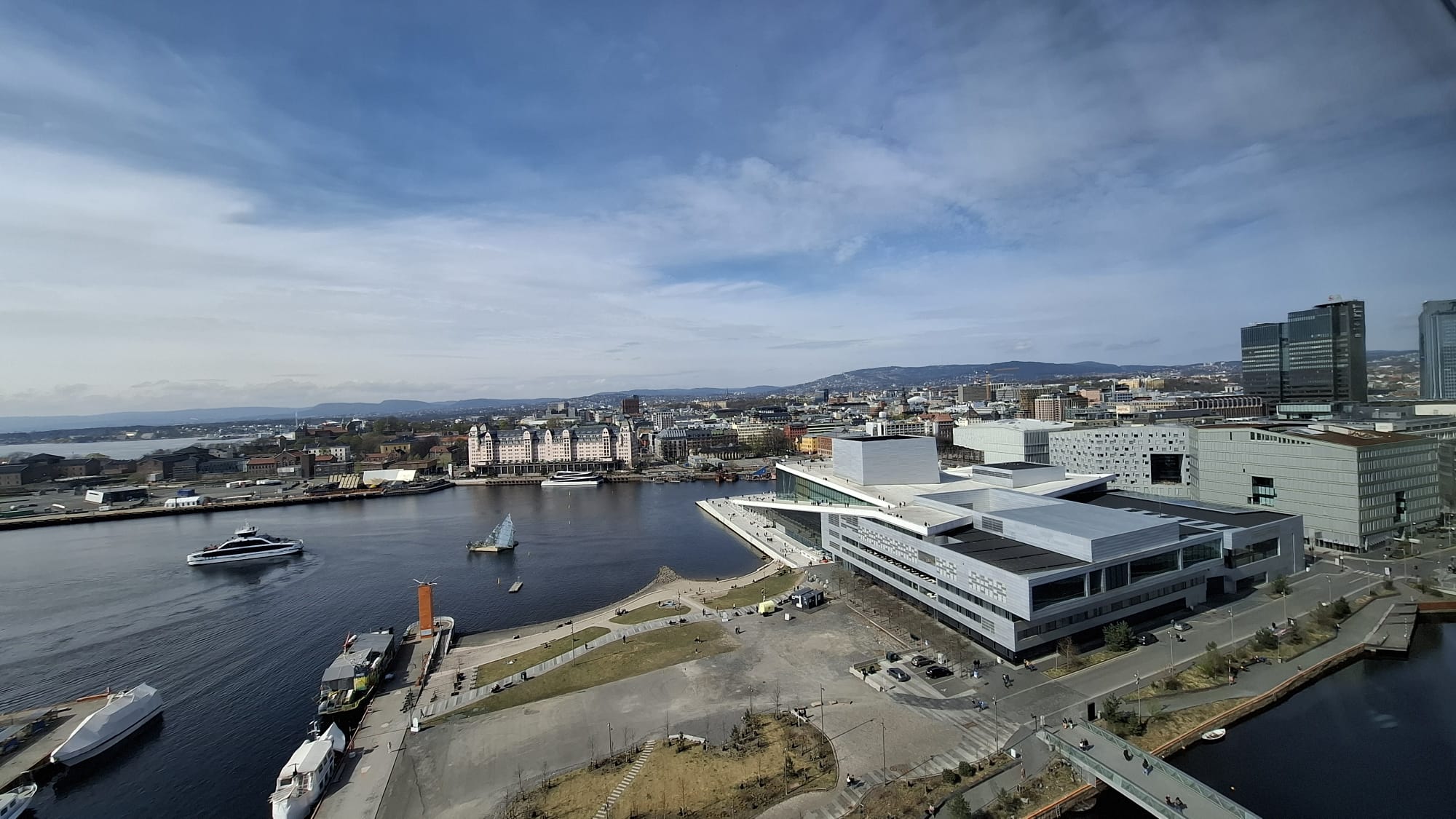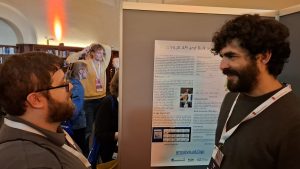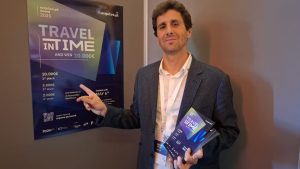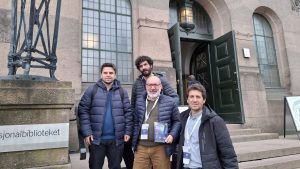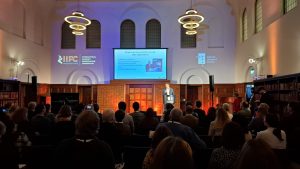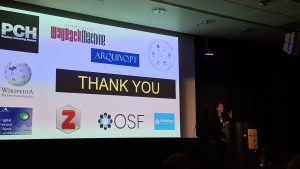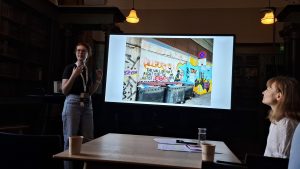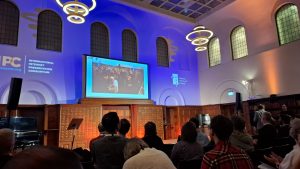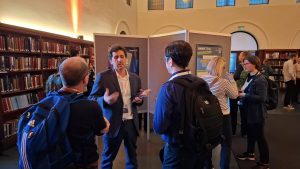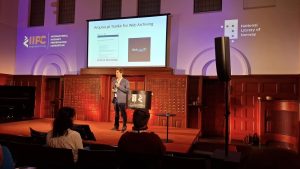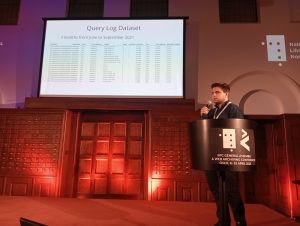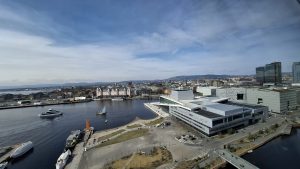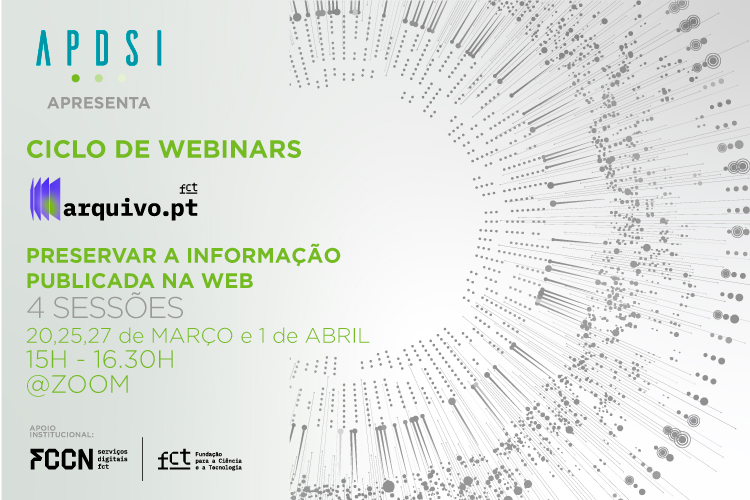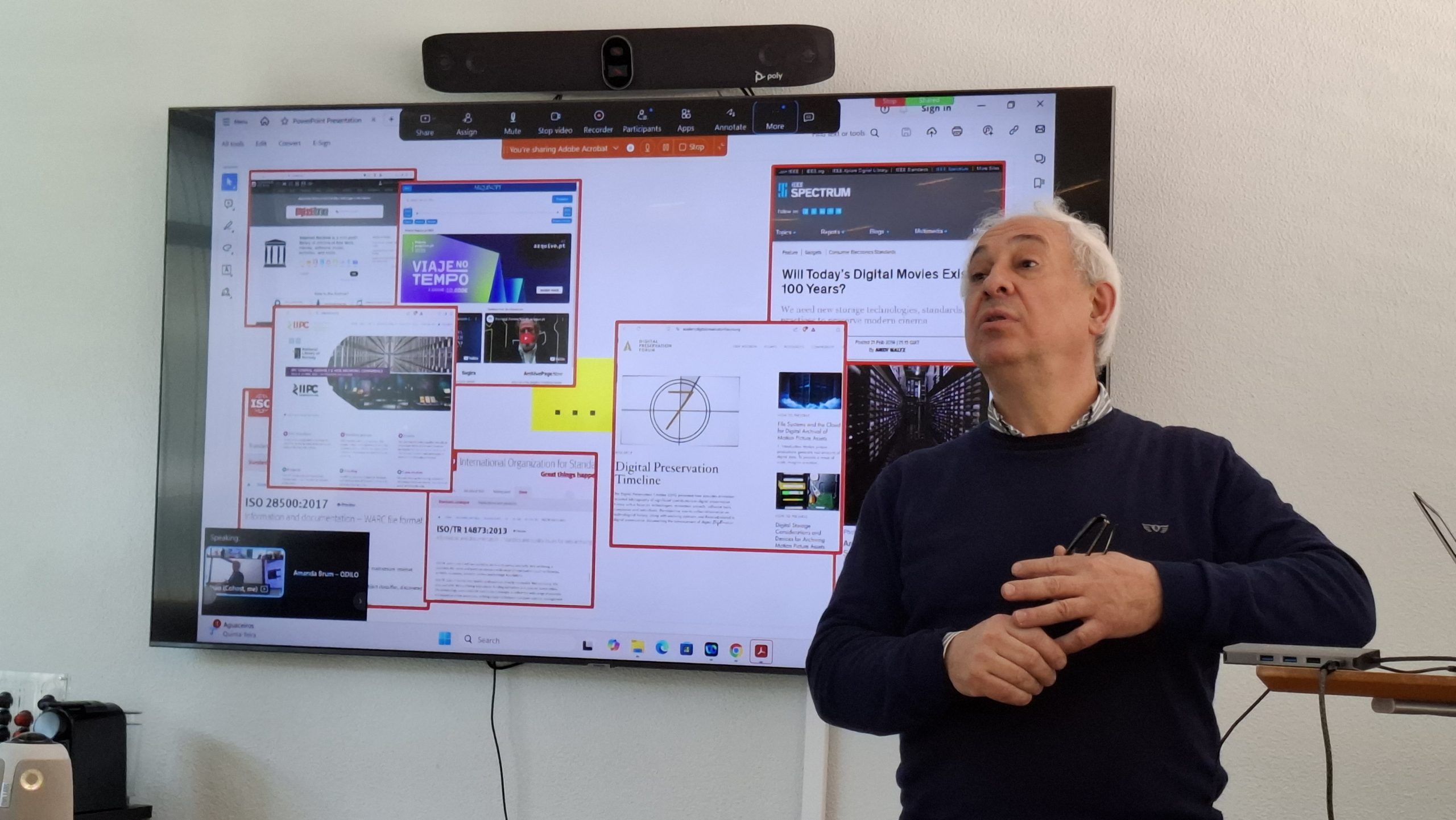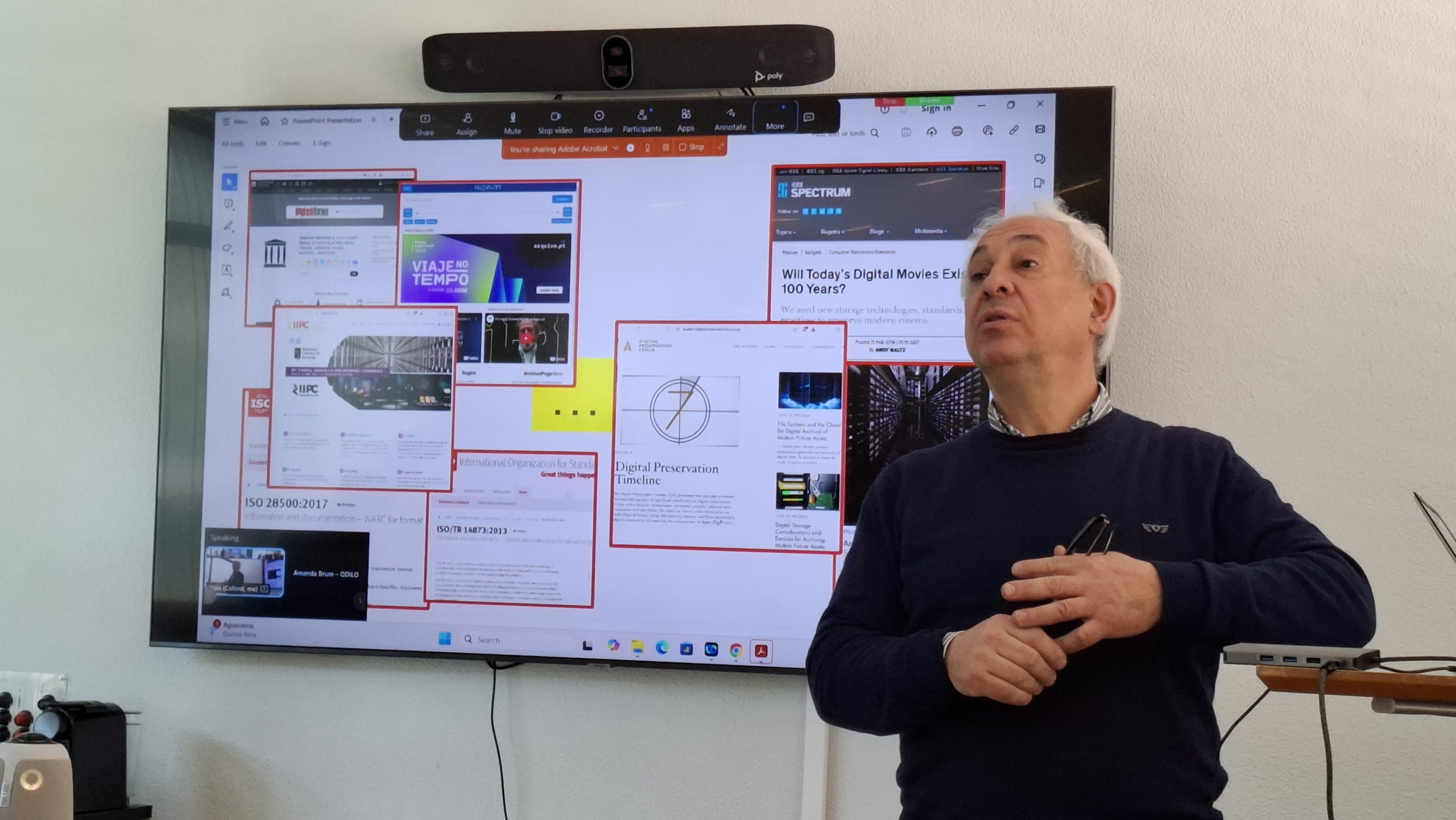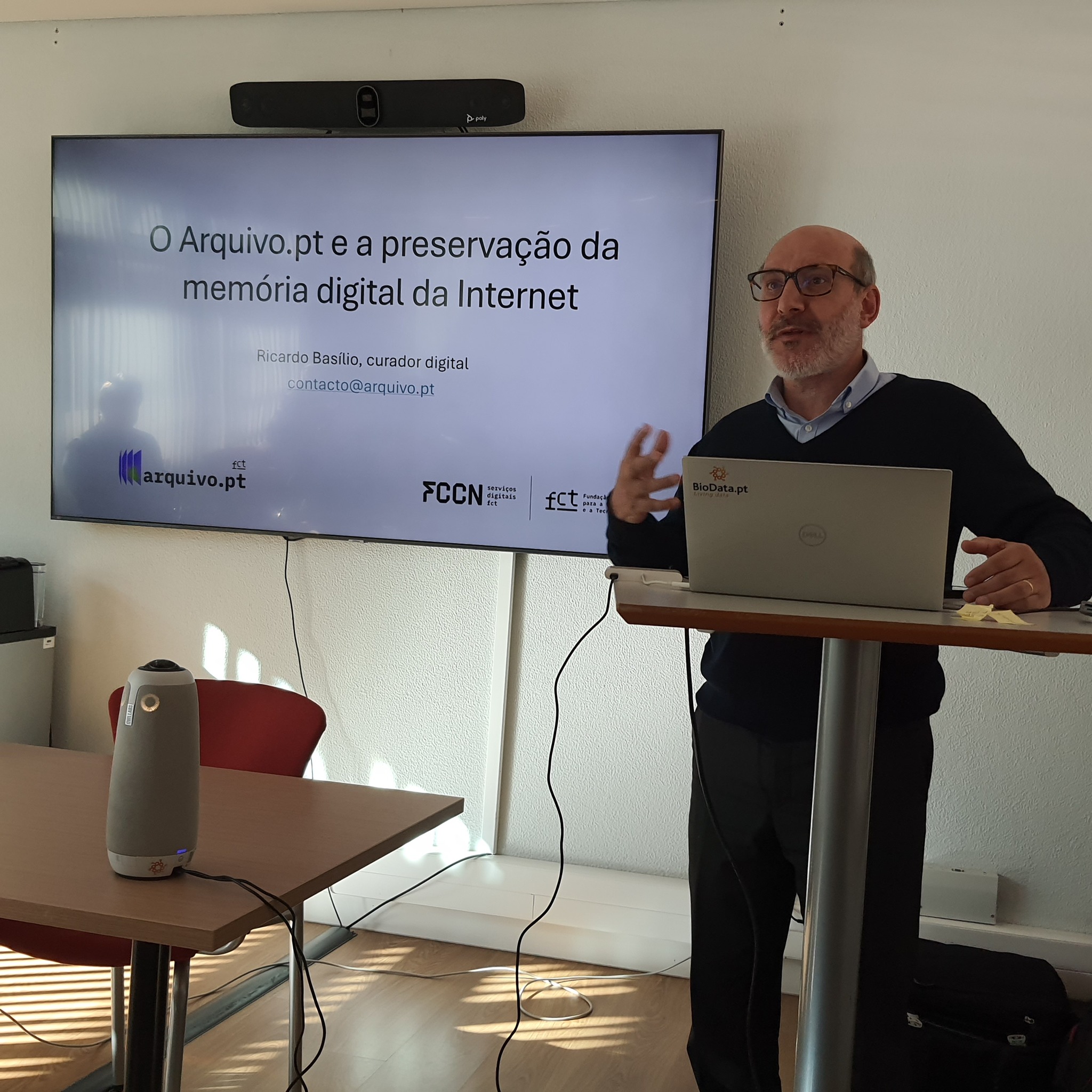Last updated on July 1st, 2025 at 09:58 am
The winners of the Arquivo.pt 2025 Award were announced by the Público newspaper, the official media partner, on 28 June 2025.
A total of 36 entries were received and validated.
The award ceremony will take place at the closing session of Encontro Ciência, at the NOVA SBE Campus in Carcavelos on 11 July.
1º place – “Minha Região – O Teu Portal Autárquico”
The winner of the 10,000 euro prize was the work ‘Minha Região – O Teu Portal Autárquico’ developed by Rúben Almeida, Ricardo Campos and Sérgio Nunes.
The result of this work is a platform available on the web that gathers municipal electoral information between 1976 and 2021. Through the minharegiao.pt website, anyone can find information by district, municipality and parish.
For example, a search for the Braga district shows the rise in the number of voters over time. It also shows that 2013 was the year with the highest abstention rate.
- Work website
- Work description
- Application submission video
- Video presentation of the work to the jury
- Slides of the presentation to the jury
2nd place – “Memor.pt – Explore a Memória Digital Portuguesa”
The 2nd prize of 3,000 euros was awarded to the work ‘Memor.pt – Explore Portugal’s Digital Memory’, by Joaquim Matoso.
Memor.pt is an interactive platform that uses content preserved by Arquivo.pt to make Portugal’s digital memory accessible. Through a conversational AI, a themed quiz and a daily article, users can explore thousands of archived pages on topics such as housing, democracy, culture and the labour market.
For example, if you choose to ‘play’, you’ll have a choice of five topics to test your knowledge with a quiz. So, what year was the new Democratic Constitution approved after 25 April?
- Work website
- Work description
- Application submission video
- Vídeo presentation of the work to the jury
- Video presentation of the work to the jury
3rd place – “Narrative Monitoring”
The third prize of 2,000 euros was awarded to the work ‘Narrative Monitoring: Analysis of conspiracy theories of population replacement’, developed by Erik Bran Marino, Rafael Prezado, Ana Sofia Ribeiro, Renata Vieira.
The work ‘Narrative Monitoring’ is a systematic and comprehensive analysis of the emergence and evolution of conspiracy theories of population replacement (PRCT, Comparative analysis of conspiracy theories in Europe), in the Portuguese digital space, between 1996 and 2021. Using Arquivo.pt as a primary source, it develops a methodology that combines web archiving techniques, natural language processing and statistical analysis to identify, classify and analyse 36,621 documents related to migration and demographic issues.
The website www.narrativemonitor.uevora.pt presents the results through interactive visualisations, a dynamic timeline and an educational quiz on the keywords most associated with conspiratorial discourse. For example, ‘Multicultural’, ‘Kalergi Plan’, ‘Refugee’. Which of these keywords is most associated with conspiratorial population content?
- Work website
- Work description
- Application submission video
- Video presentation of the work to the jury
- Slides da apresentação ao Júri
Honorable mention AMCC – Aveiro Media Competence Center: “Estudos Arquivados”
The Aveiro Media Competence Centre (AMCC) has awarded its Honourable Mention to the work ‘Estudos Arquivados’, by Filipe Oliveira João and Paulo Cabrita.
‘Estudos Arquivados’ is a platform that uses Arquivo.pt for pedagogical and teaching purposes. It organises a user’s searches by subject and school year, and users can register and save their own searches for later use. In contexts where schools use technology for teaching, ‘Estudos Arquivados’, being based on a public and open collection, aims to promote study and digital inclusion.
For example, a survey on the ‘25 de Abril’ for 8th grade students (high shcool) in the subject of History returns dated web pages preserved on Arquivo.pt, training students to use this new type of material.
Honorable mention .PT: “ArchiveChain”
The DNS.PT Association has awarded an Honourable Mention to . PT to the Professor who encouraged the submission of ‘ArchiveChain’. This work was developed as part of Bruno Cotrim’s Master’s dissertation in Computer Engineering at the Faculty of Sciences of the University of Lisbon, with scientific guidance from professors Bernardo Ferreira (Faculty of Sciences) and Miguel Matos (Instituto Superior Técnico).
The concept is explained by its authors as follows: ‘ArchiveChain’ is a blockchain that democratises the mission of archiving the Portuguese historical web. In ArchiveChain, all citizens are invited to save pages from Arquivo.pt, and whoever saves the most pages receives the most rewards in the form of cryptocurrencies. At the same time, the pages saved by participants are used as ‘fuel’ in its internal workings, making it possible to implement smart contracts in a sustainable way and avoiding the massive energy consumption of other blockchains such as Bitcoin.
Start exploring the ArchiveChain platform and contribute to the better preservation of the Portuguese web.
- Work website
- Work description
- Application submission video
- Video presentation of the work to the jury
- Slides presentation to the jury
- Draft report
- Project repositories on GitHub:
Honorable mention 25 de Abril e a Democracia: “Arquivo 25 de Abril”
The Comissão Comemorativa 50 anos 25 de Abril (Commemorative Commission for the 50th anniversary of 25 de Abril) awarded an Honourable Mention called ‘25 de Abril e a Democracia’ to the work ‘Arquivo 25 de Abril’, developed by Miguel Garcia.
The ‘‘Arquivo 25 de Abril’ website provides an online archive of journalistic articles about various personalities, events and movements that were relevant before and during 25 April 1974. For each of these elements, articles were collected from various leading media organisations, published online, taking this historical context into account.
For example, by choosing ‘artists’ related to 25 April, a user gets the name and a photo of singer Adriano Correia de Oliveira, the first in a list, and then related news published in the media and preserved by Arquivo.pt.

